If you only have one day in Sydney Australia, and want to see the highlights, we’ve created this 1 day itinerary to give you a taste of this very walkable city. We’ll explore Sydney’s history, enjoy waterfront views at the Sydney Opera House, dip into some art and culture and enjoy the relaxing green space of the Botanic Garden.
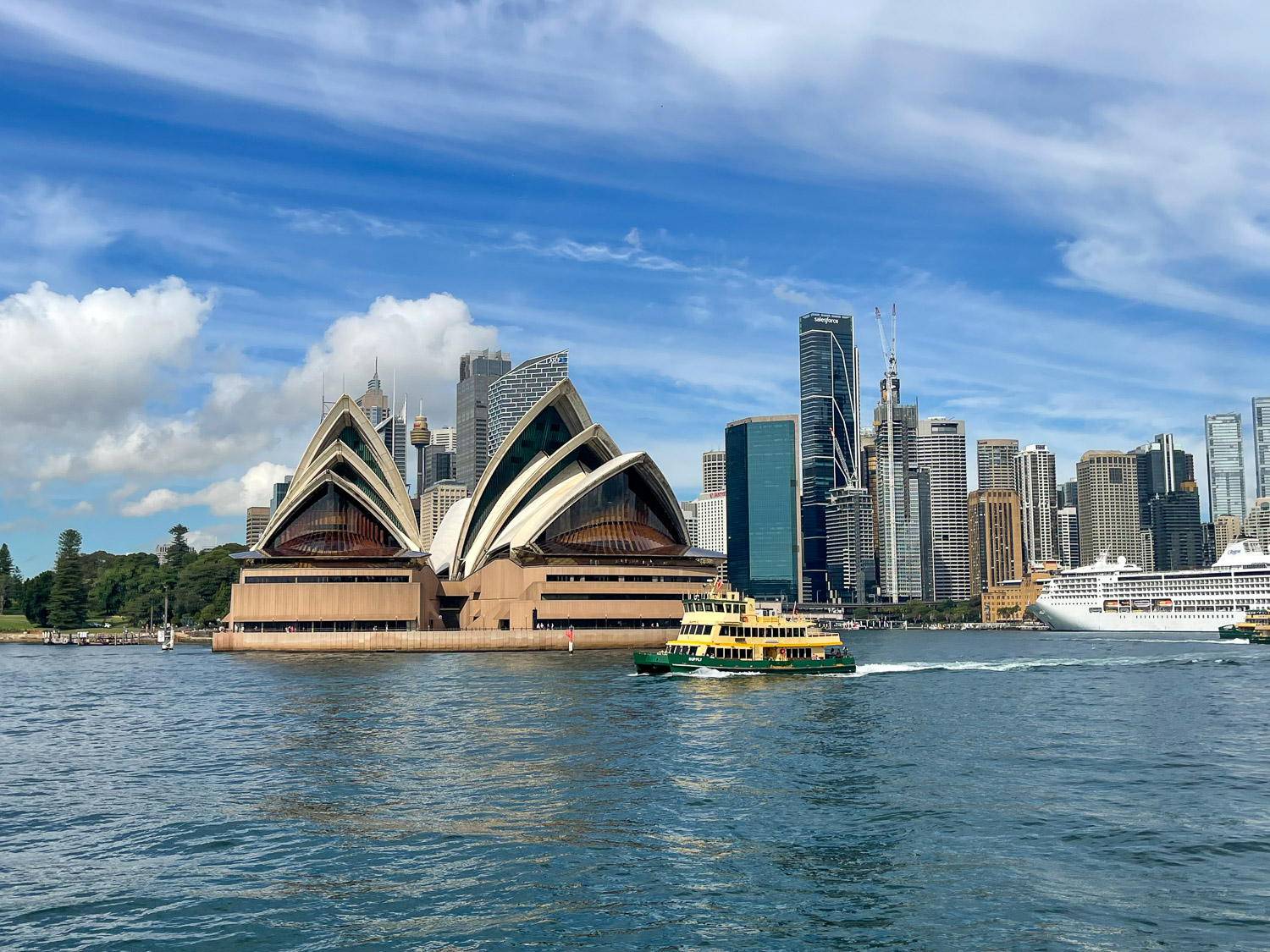
For those with an additional day or two, or anyone wanting more time at the beach, we also have some day trip ideas. Just a short bus or ferry ride from the city centre, you can dip into Sydney’s beach lifestyle at Bondi Beach, Manly or Watsons Bay.
If you are visiting Sydney for the first time, whether on a cruise or as part of a wider tour of Australia, this 1 day Sydney itinerary offers something for everyone.
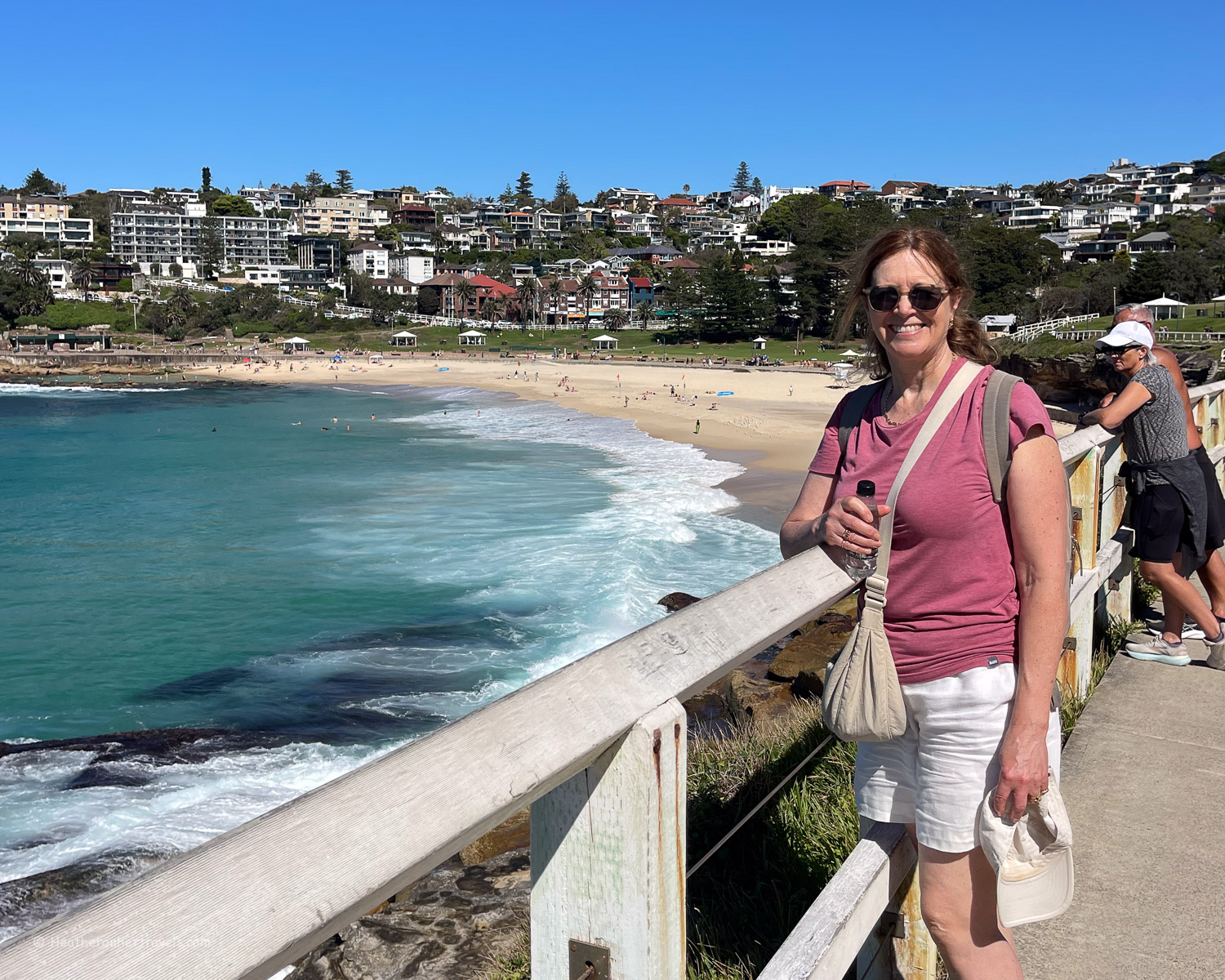
This article may contain affiliate links that provide commission on purchases you make at no extra cost to you. As an Amazon Associate I earn from qualifying purchases.
Let’s start our day in Sydney at Circular Quay. Not only is this where the cruise ships dock, but all the harbour ferries come and go from here and it’s centrally located on bus and train routes.
Keen to see Sydney?
Here’s a quick version of the Sydney highlights in one day. All the attractions mentioned are free to visit, although of course you’ll need to budget for refreshments and any booked tours. We also have a short and printable version of this itinerary to download below.
- The Rocks – an historic neighbourhood where the colony was founded. (1 Hour)
- Coffee break at Museum of Contemporary Art ground floor cafe
- Sydney Opera House – Sydney’s most iconic cultural attraction (1 Hour)
- Royal Botanic Garden – 30 hectares of lawns, trees and themed gardens (1 hour)
- Lunch break at Farm Cove Eatery in the Botanic Garden
- Option to head to the beach at Bondi, Manly or Wilson Bay for the afternoon or alternatively stay in central Sydney
- Art Gallery of New South Wales ( 1 hour) – a free art gallery of indigenous and other Australian artworks – or alternatively
- Hyde Park Barracks (1 hour) – a free museum dedicated to the experiences of the convicts who helped found Sydney
- MacQuarie Street – (30 mins) – walk past some of Sydney’s imposing 19th century government buildings
- Martin Place (Central Business District) – (30 mins) – soak up the buzz of Sydney’s business district
- Ice Cream at Messina Gelato
- Walk back to Circular Quay – admiring the varied architecture along George St or Pitt St (30 mins)
- Sunset drinks at the Opera Bar, Sydney Opera House
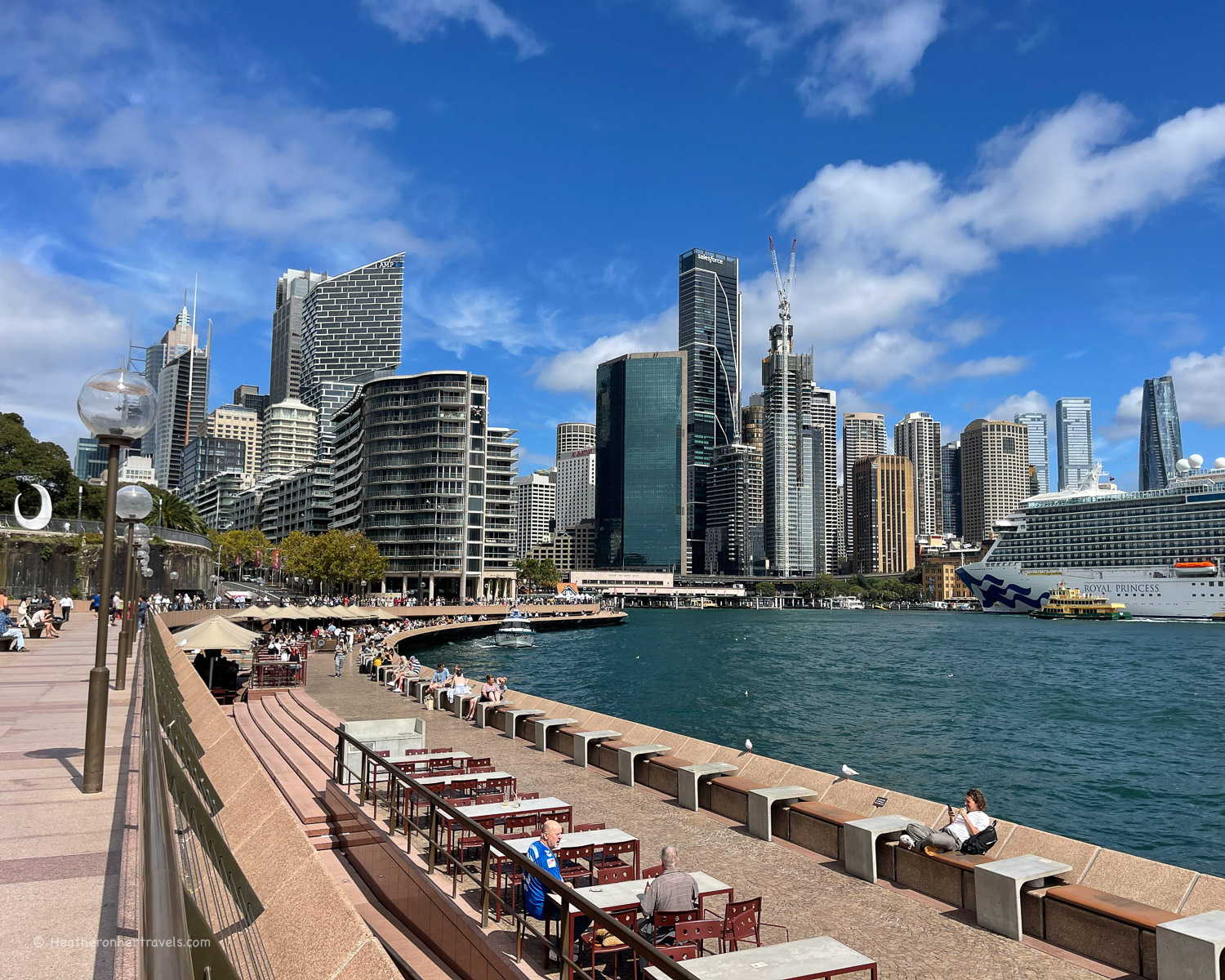
The early history of the Sydney area
Before we visit the areas that formed the first colony in the early 19th century, we need to acknowledge the Gadigal clans of the Eora Nation who lived here before those English settlers arrived. These aboriginal people lived in family clan groups all around the Sydney Bay area, living from harvested plants, fish and seafood that were plentiful in the area.
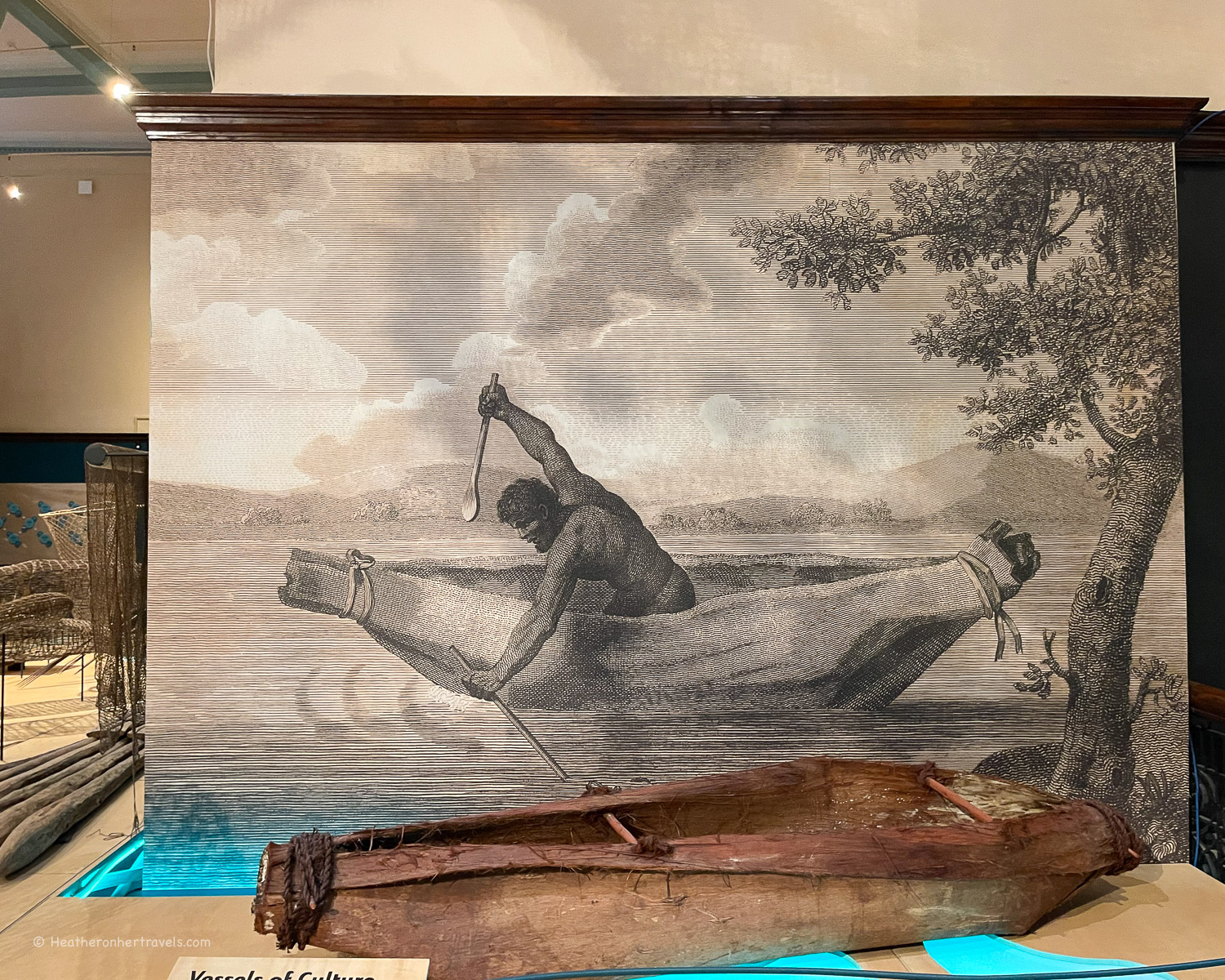
Many place names in Sydney originate from aboriginal descriptions, and indigenous rock carvings can be seen around the Sydney Bay area.
A few aboriginal men such Benelong and Bungaree acted as mediators and interpreters between their culture and the early settlers – they are remembered in place names around Sydney. However, over time the Gadigal territory around Sydney was taken over by the new colony, and conflicts often arose between the two cultures.
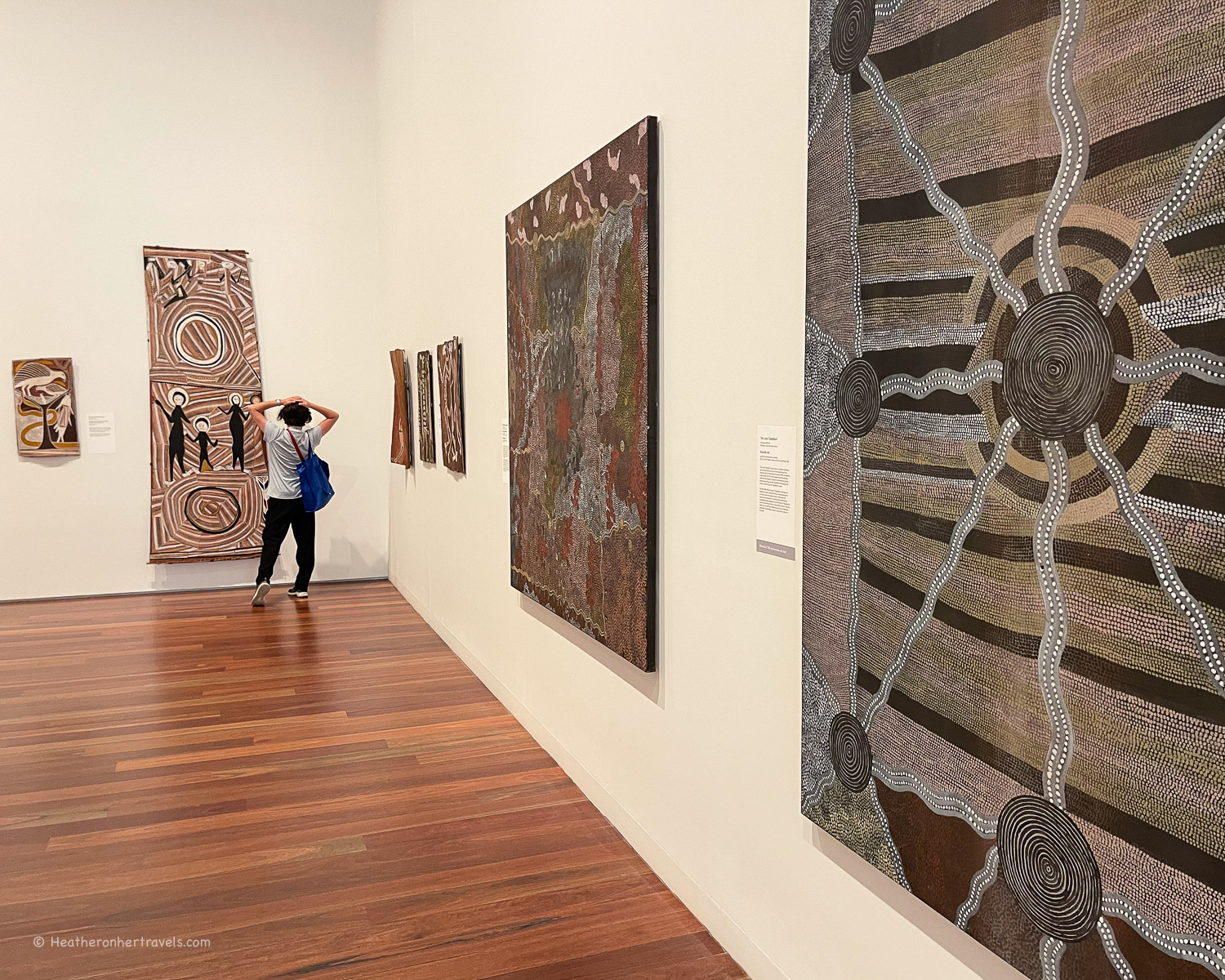
You can discover some of the stories behind these early contacts in the Cadi Jam Ora Garden of the Royal Botanic Garden and the Yiribana Gallery in the Art Gallery of New South Wales, as well as in other museums around Sydney.
The Rocks
The neighbourhood known as The Rocks is a grid of streets to one side of Circular Quay, named after the rocky cliffs that you’ll see as you walk through the area. This was the commercial centre of the earliest colony, with warehouses for stores and close packed houses.
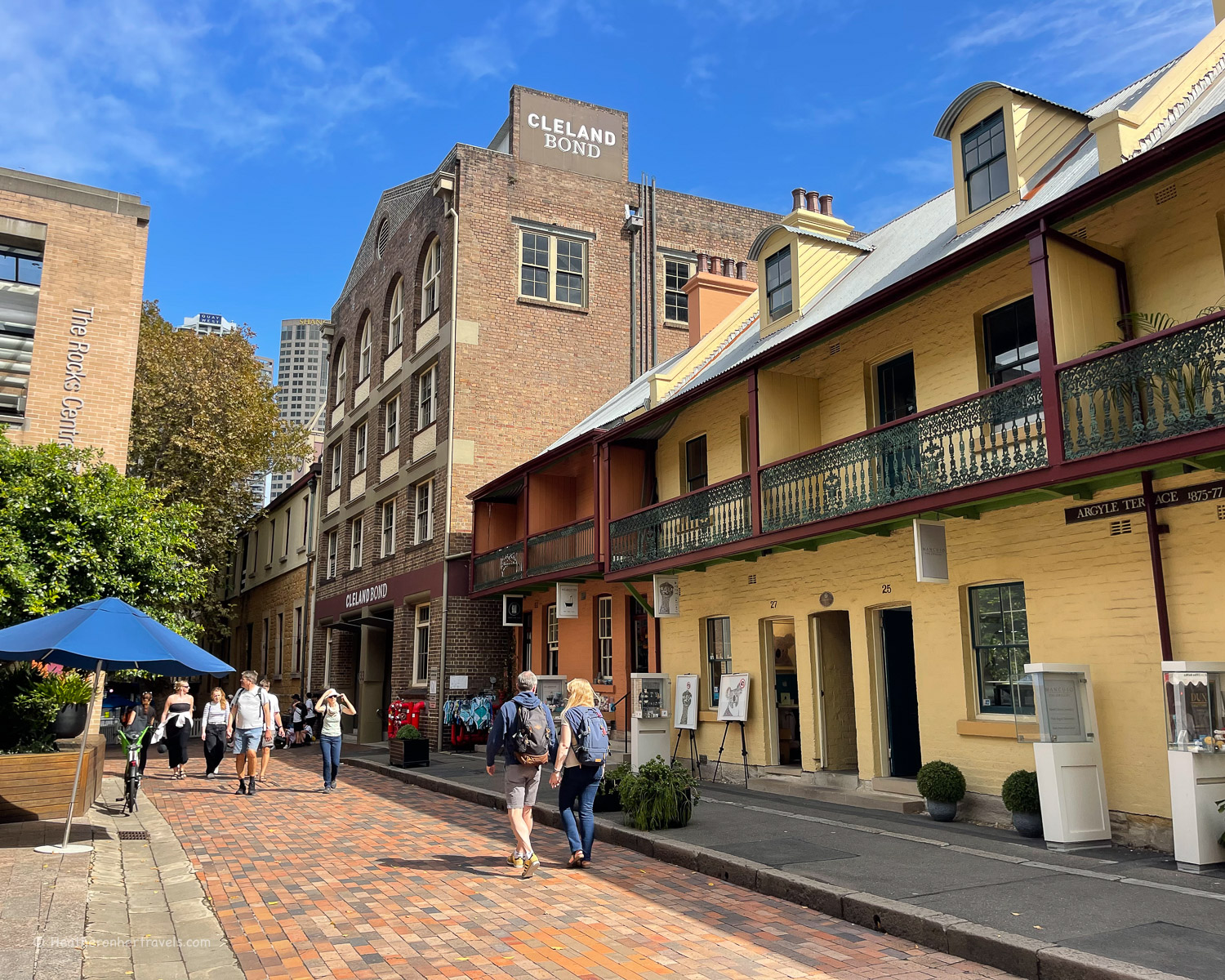
Water was supplied from The Tank stream that ran through the area into Sydney Bay. Later, a road (now Argyle street) was hewn through the sold rock, known as ‘The Cut’, which allowed the colony to expand.
Today the area is less residential and more of a tourist hub, with art galleries and souvenir shops. Since cruise ships dock right alongside this area, it can be crowded in high season. Nevertheless, we found the area charming, and care has been taken to promote high quality Australian souvenirs and crafts in the shops here.
We recommend spending an hour looking around ‘The Rocks’ – here’s what to look out for;
- The Museum of Contemporary Art is worth visiting on another day, but for our 1 day in Sydney we recommend a coffee stop in the pleasant terrace cafe.
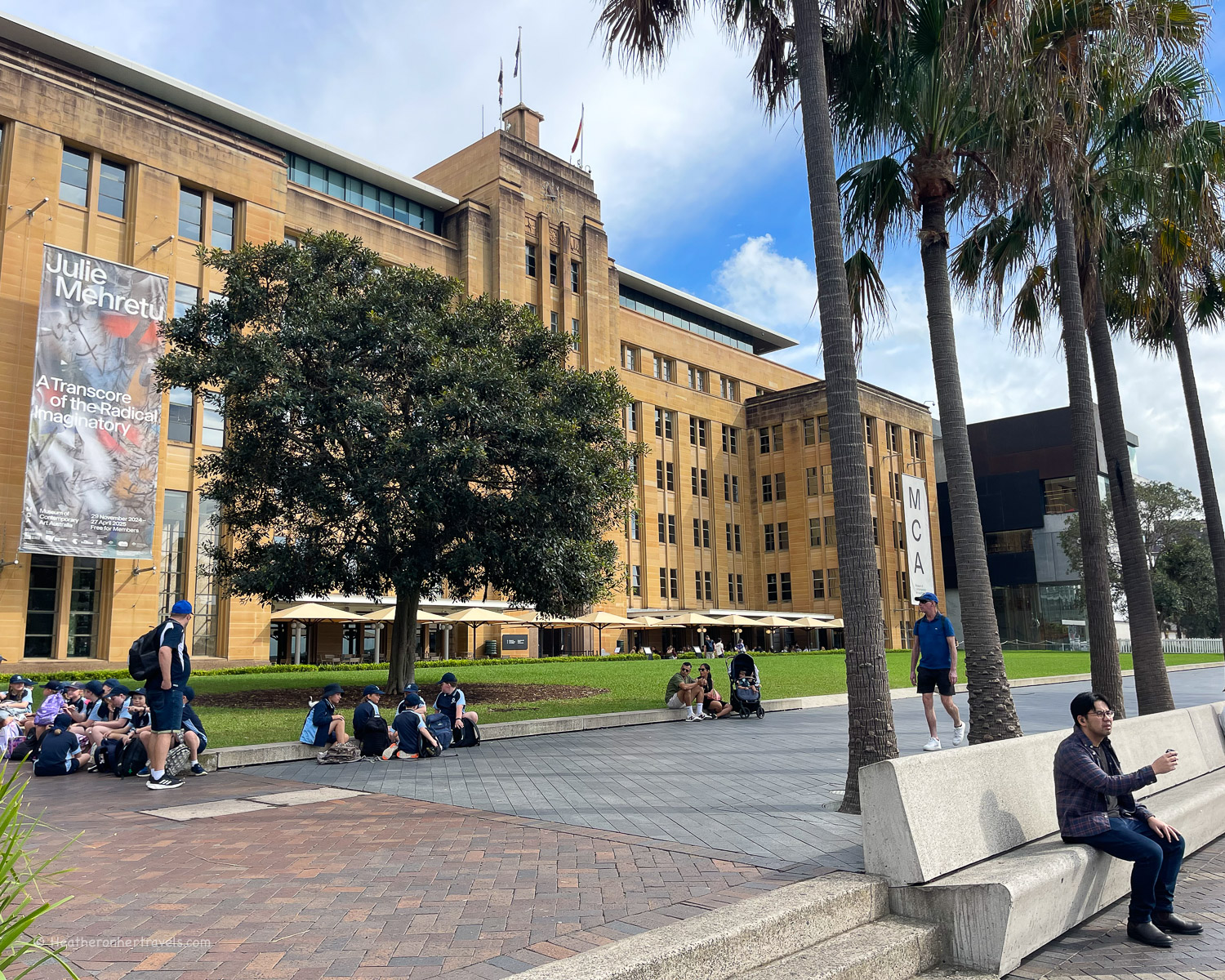
- Walk past Cadman’s cottage and the warehouse buildings of Campbell’s Stores, now housing restaurants. In front of you is the Sydney Harbour Bridge, another landmark of the city.
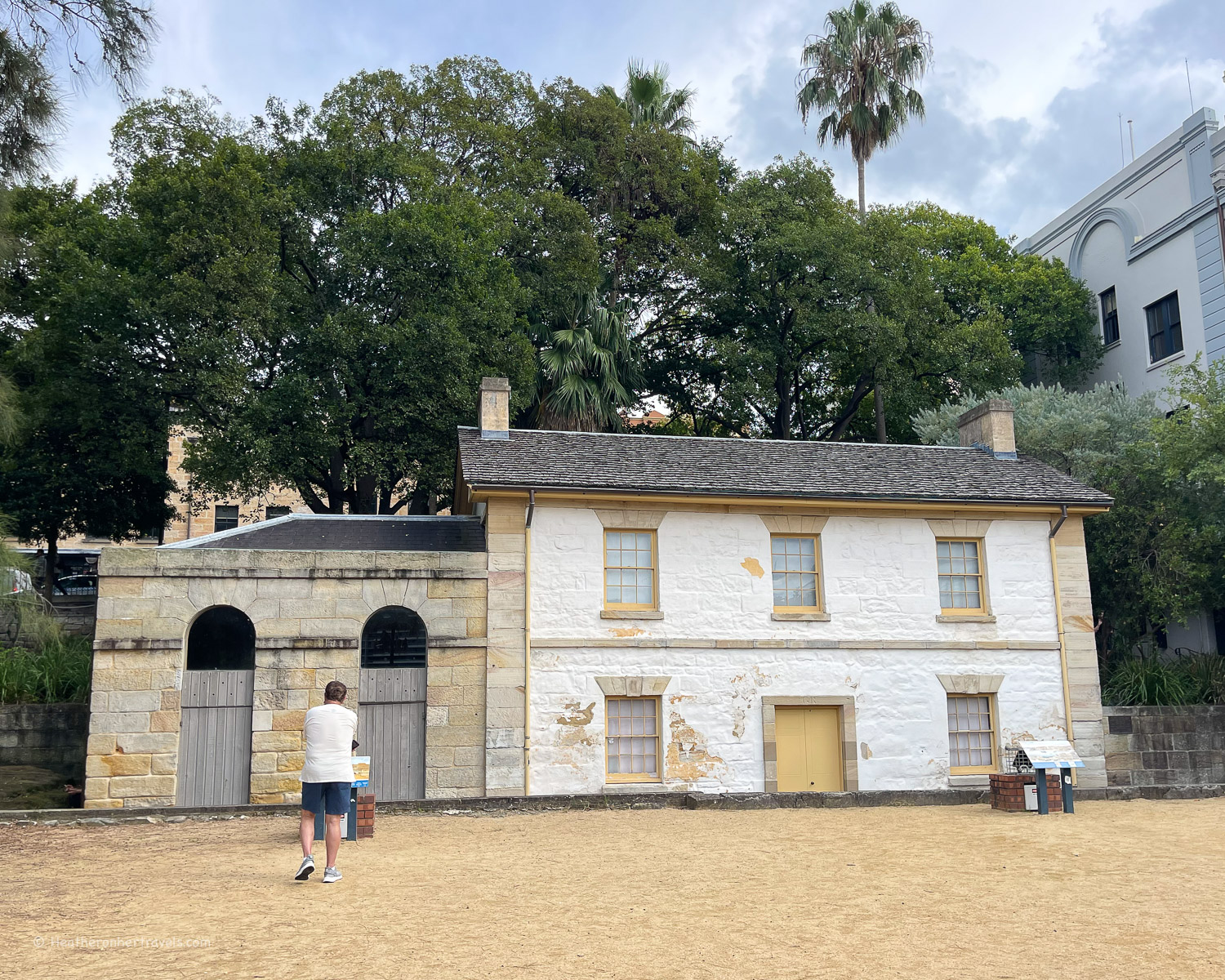
- Skirt back to Playfair Street, a pedestrianised area where there are many 19th century buildings, now housing galleries and craft shops. The Rocks Market with craft stalls is held here at weekends. There’s more shopping and some street food stands in the adjoining Rocks Centre.
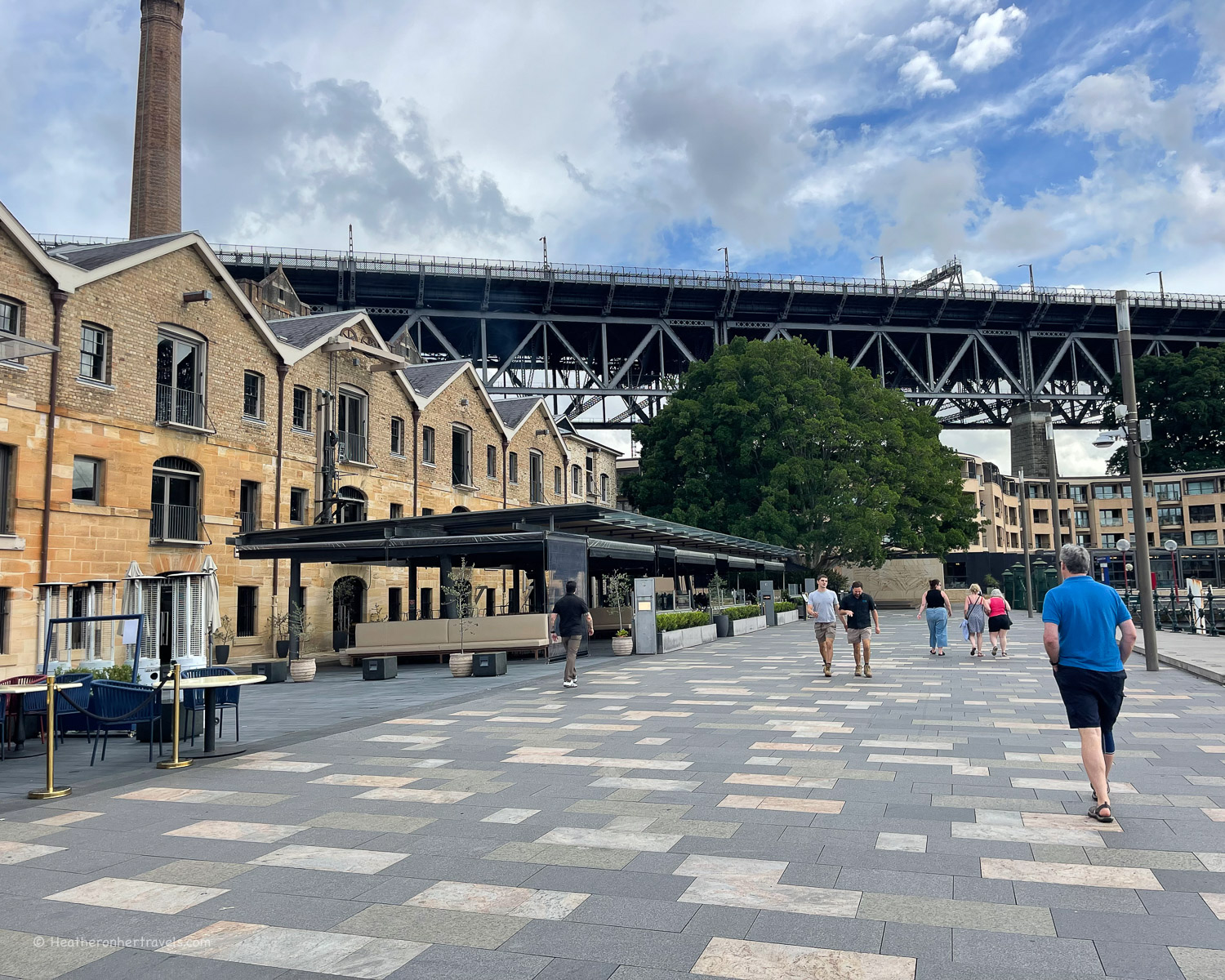
- Stop at The Rocks Discovery Museum (free) located in one of the older buildings, to learn about the area’s history.
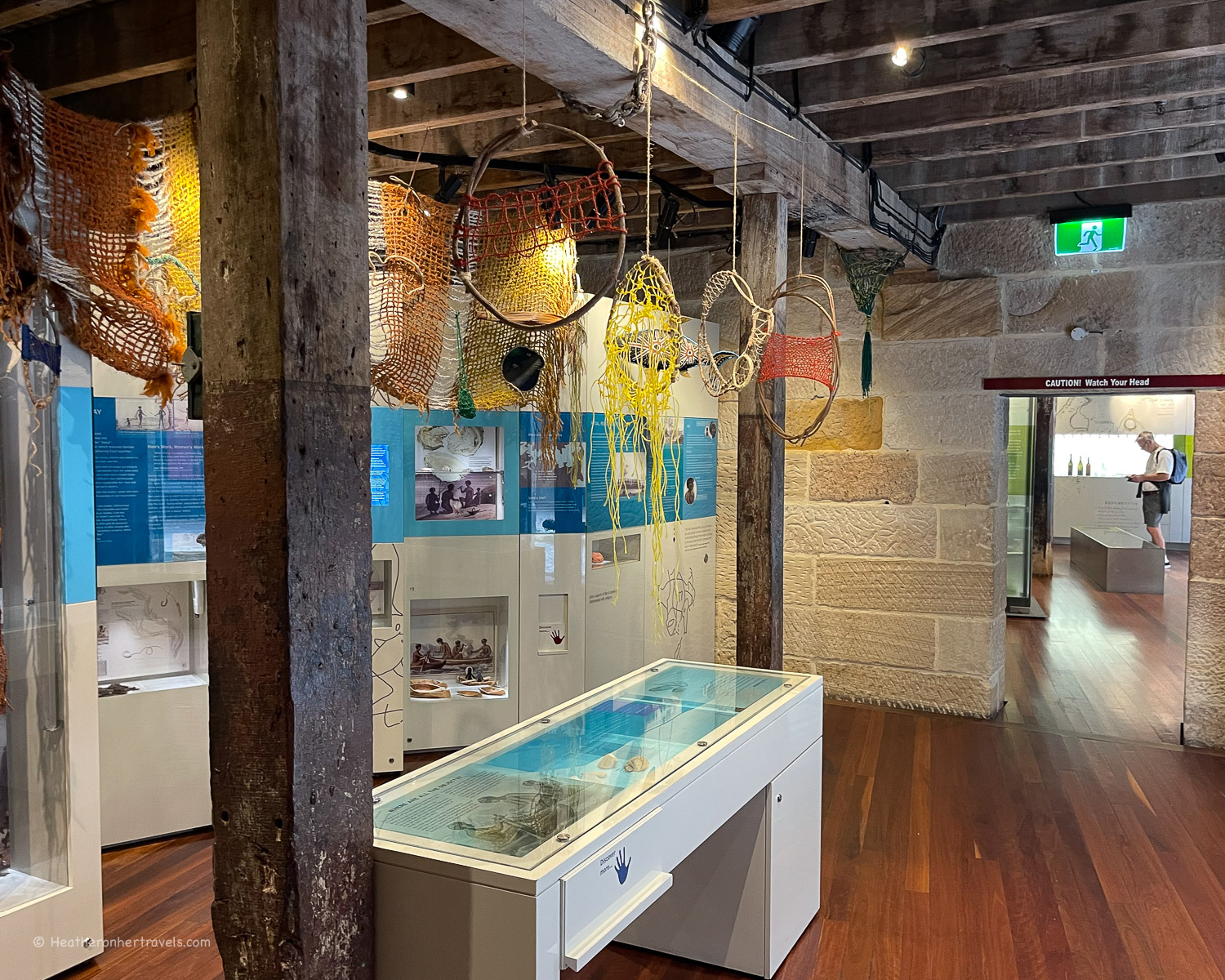
- At The junction of Playfair Street and Argyle Street, look right to see how the road was cut through the rock, now running under the highway leading to the Harbour Bridge.
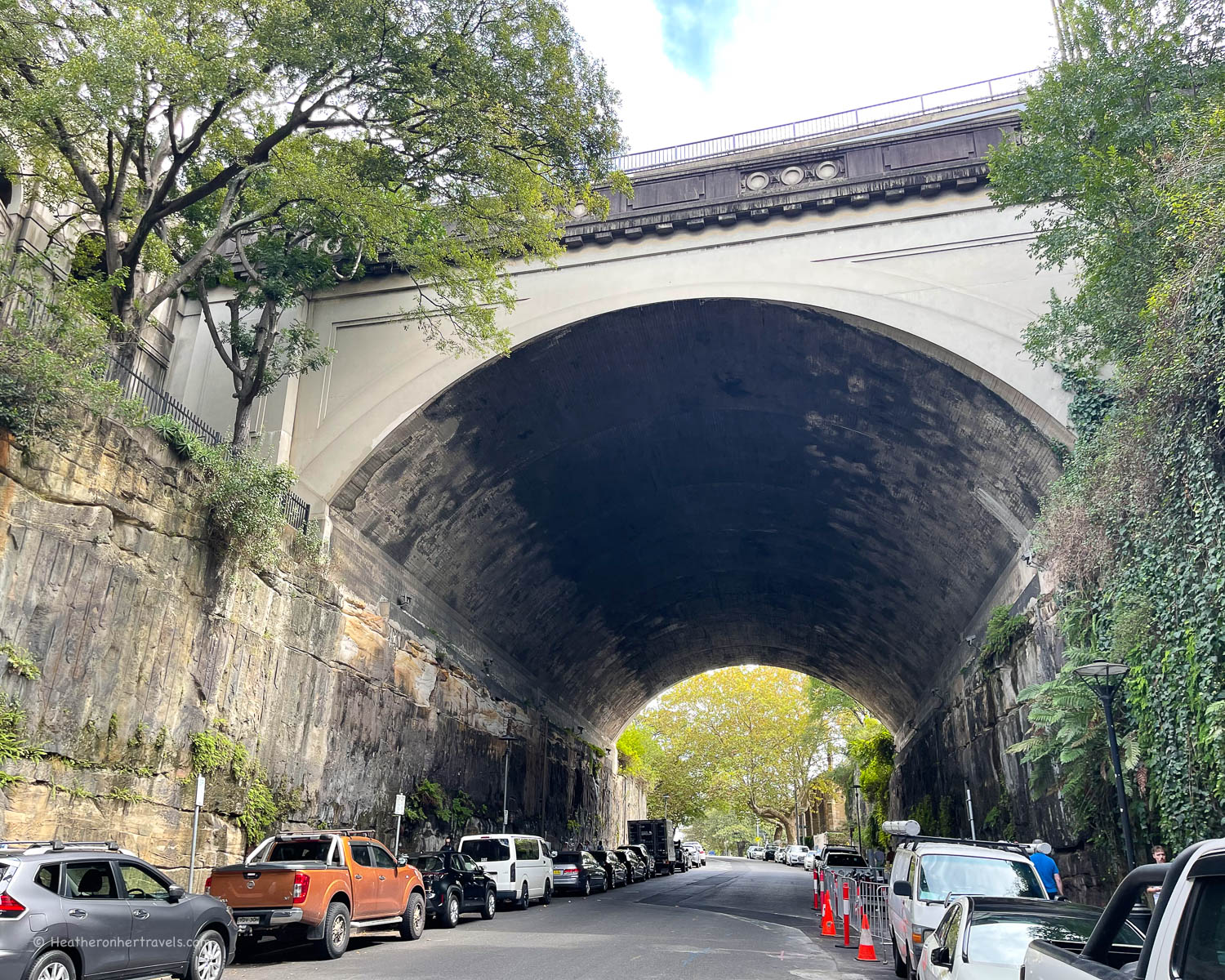
- Continue your stroll down some of the narrow lanes, such as Nurses’s Walk to soak up the area’s atmosphere.
Coffee Stop: We recommend the ground floor cafe of the Museum of Contemporary Art for a coffee in the shady open air terrace with views of the harbour.
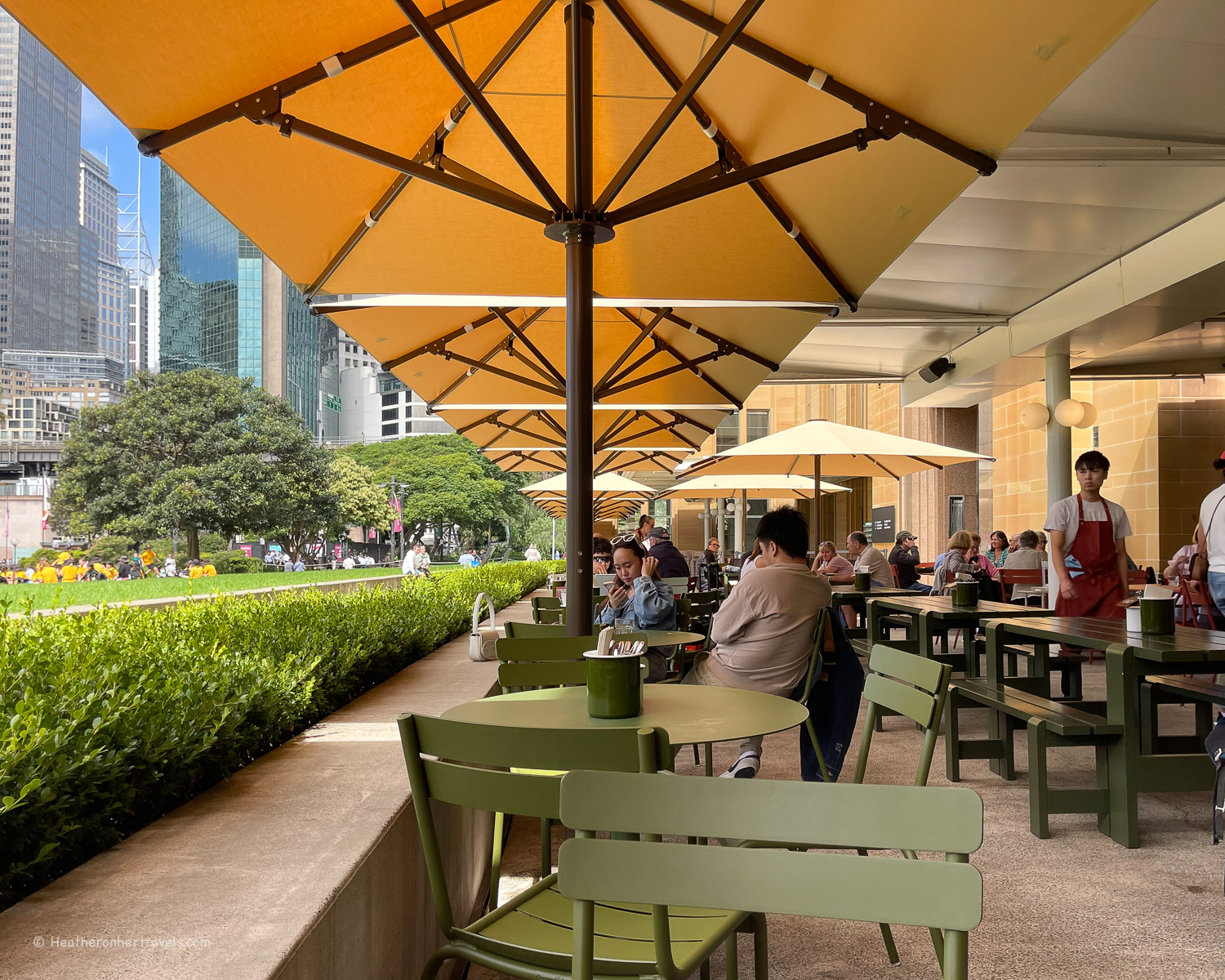
Now walk past the ferry piers at Circular Quay and along the Eastern Pontoon to the Sydney Opera House.
Sydney Opera House
The Opera House is Sydney’s best known landmark, sitting on the prominent Bennelong Point overlooking the harbour. It was intended to build Sydney’s reputation as a world class centre for culture and the performing arts, replacing a tram depot that previously stood on this spot.
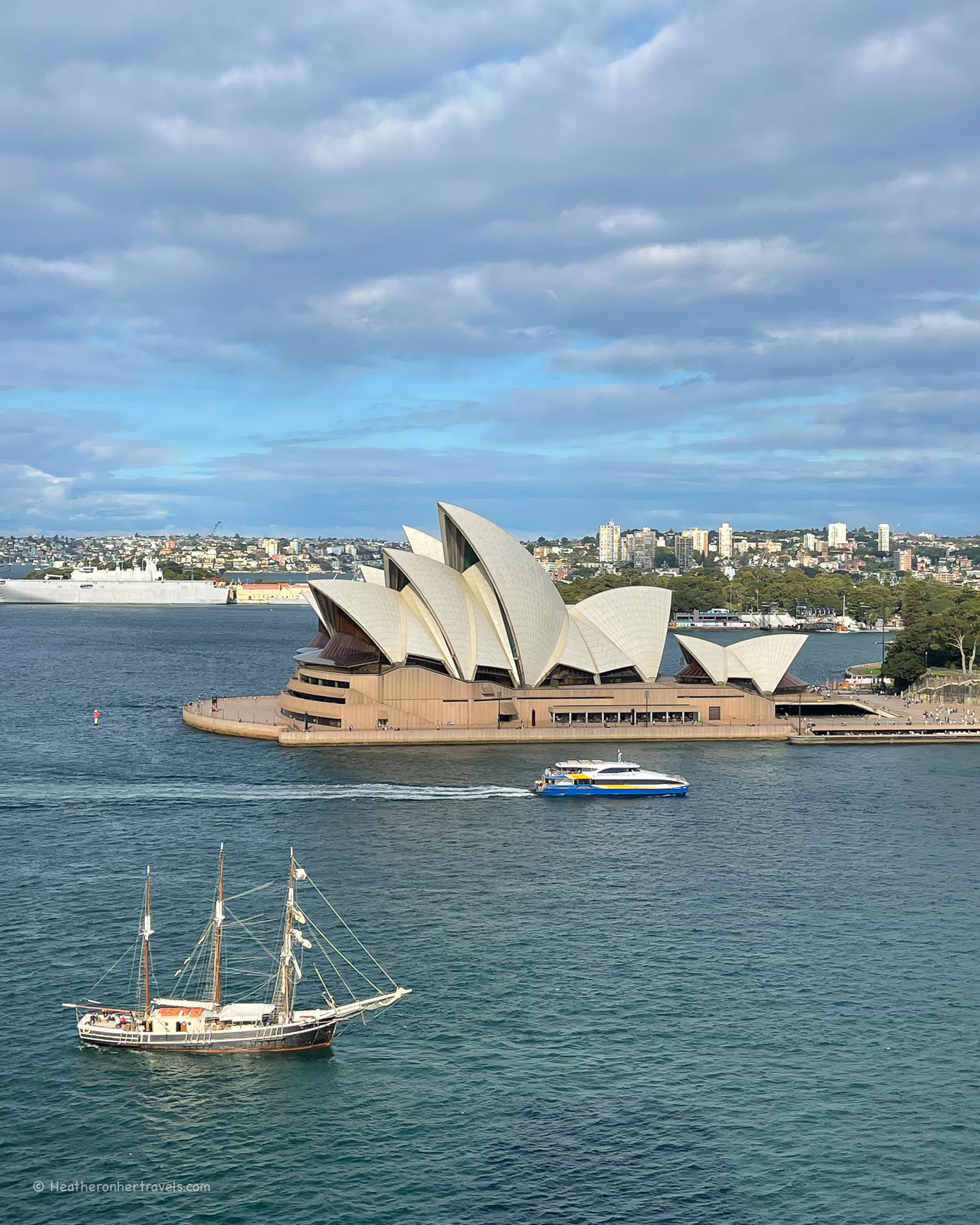
After an international design competition in 1957, the design of Danish architect Jorn Utzon was chosen, with shell-like roof structures housing two large concert halls, a restaurant and smaller performance spaces.
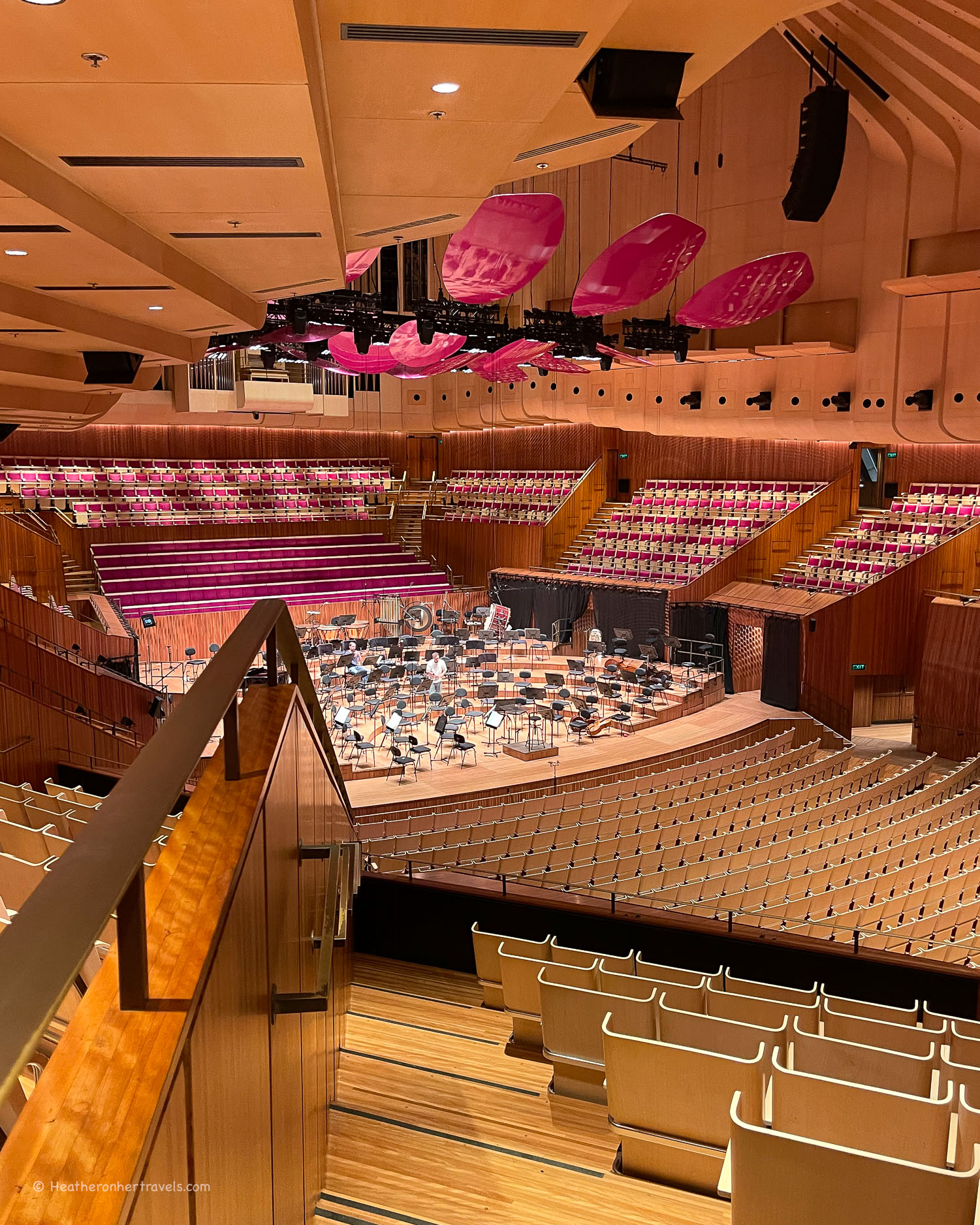
The actual construction caused an engineering conundrum and Utzon was forced to resign from the project. Eventually the building was completed by an architectural team led by Peter Hall and opened by Queen Elizabeth II in 1973.
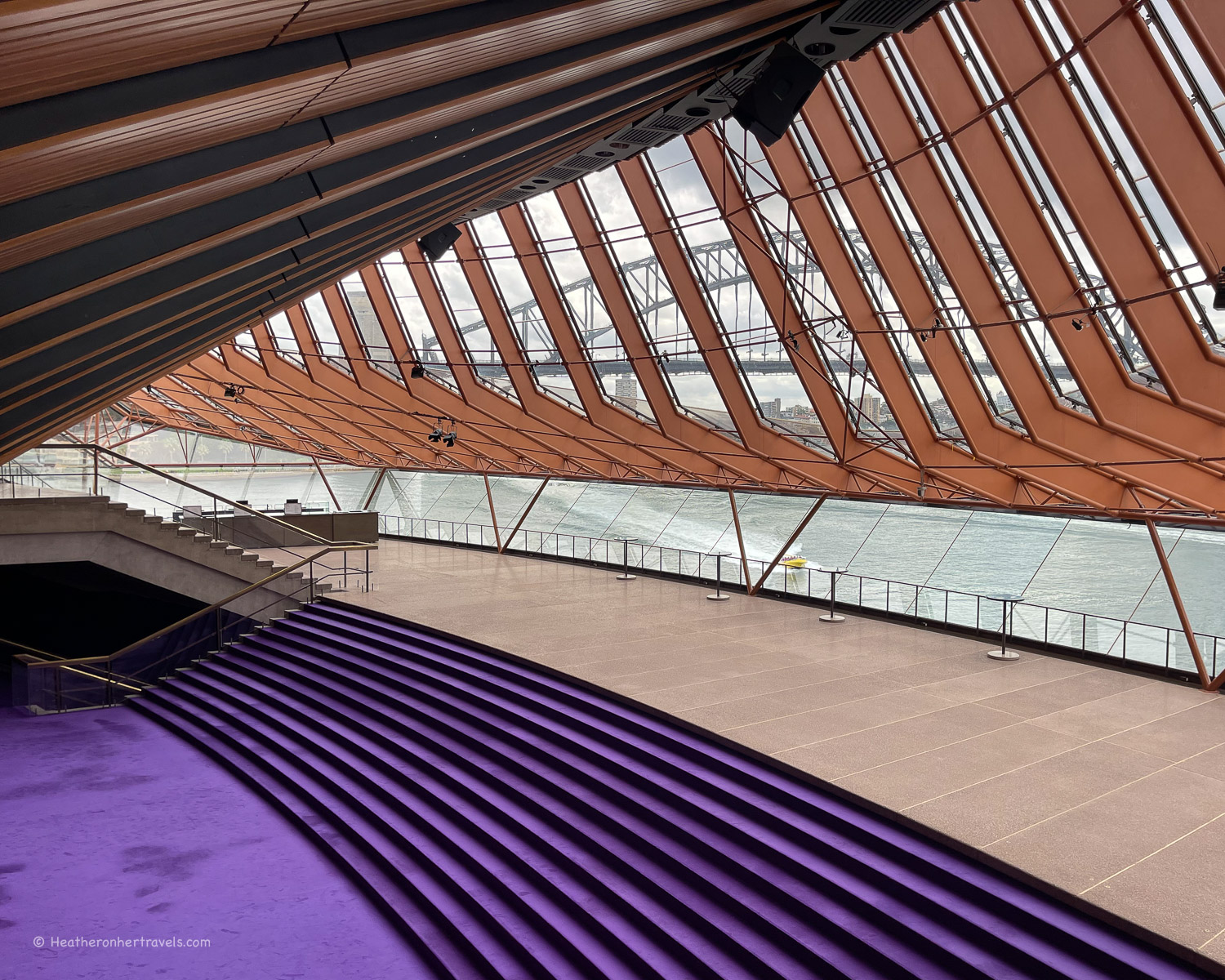
Sydney Opera House is a magnet for visitors, who swirl around the different levels of the building to take their photos. But to see the interiors you’ll need to book a tour, which is worth planning ahead as they are often booked up on the day.
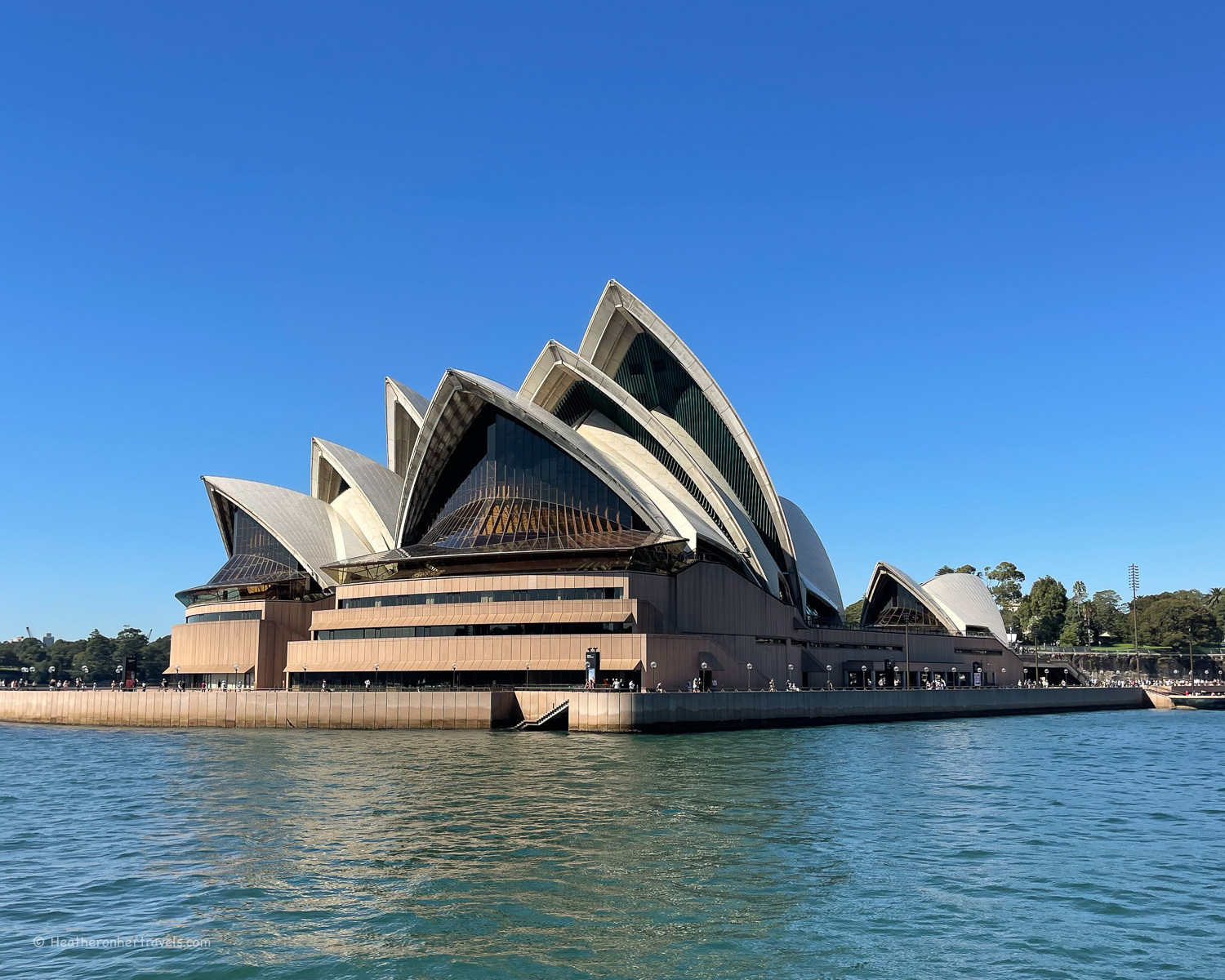
We recommend spending an hour here on our 1 day Sydney itinerary, so here’s what to look out for;
- View the building’s exterior from all angles and levels. You can walk up the steps on the land side, walk around on the harbour side and explore the different levels of terraces housing bars and restaurants.

- Walk up the steps to enter the foyer and get a sense of the interior, which is as much as you’ll see inside without taking a tour. Here you’ll find the ticket sales counters, a small gift shop and a kiosk cafe, with some seating in the Lounge area.
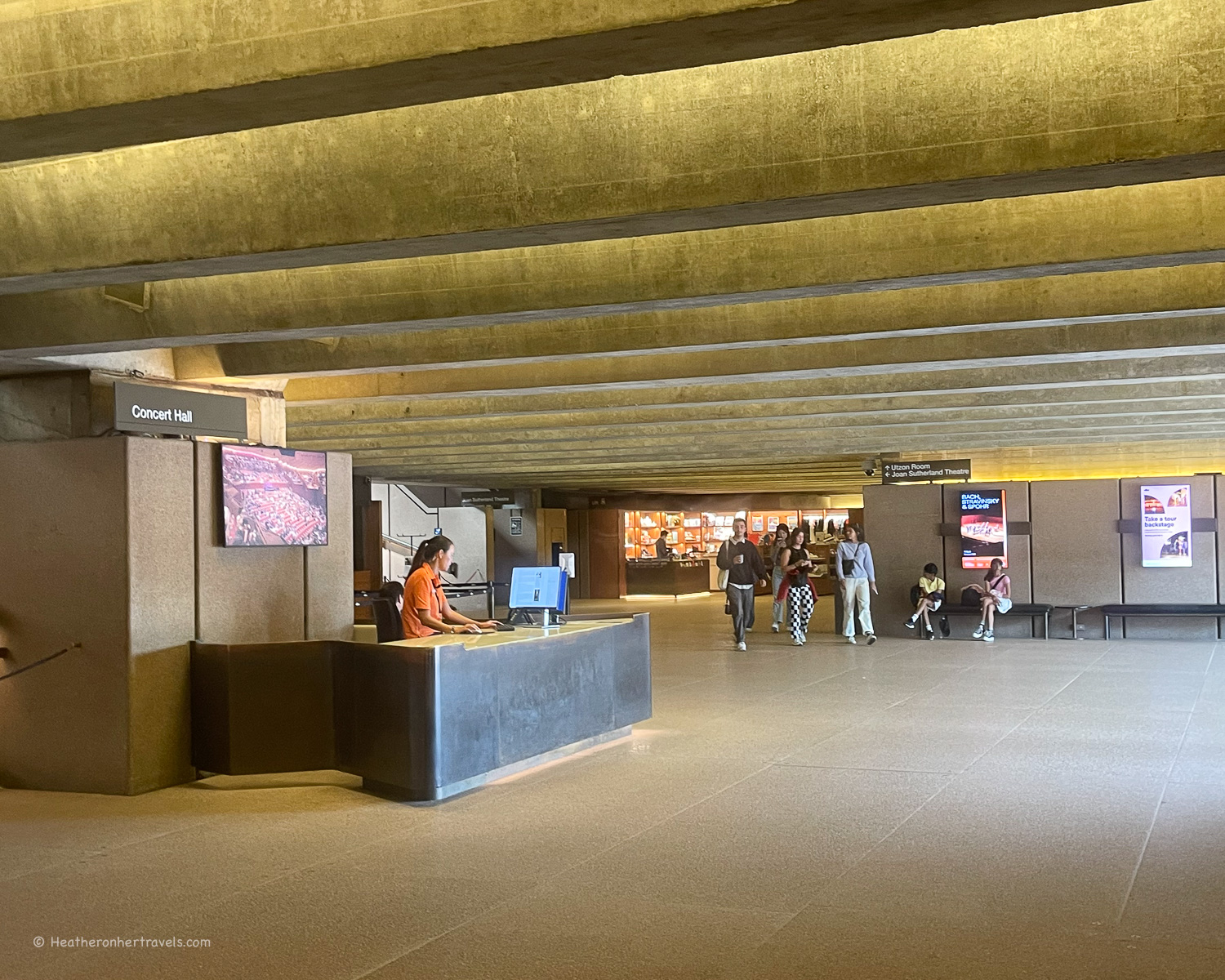
- Back on the ground level, there’s a passage under the steps leading to a bar by the Midden by Mark Olive restaurant, where there are sometimes photographic exhibitions.
- Head down the steps or escalator to the lower ground level visitor centre. There’s a small gift shop and some exhibition space about the building of the opera house. Tickets are also sold here for the opera house tours, although these are often sold out on the day so better to book ahead.
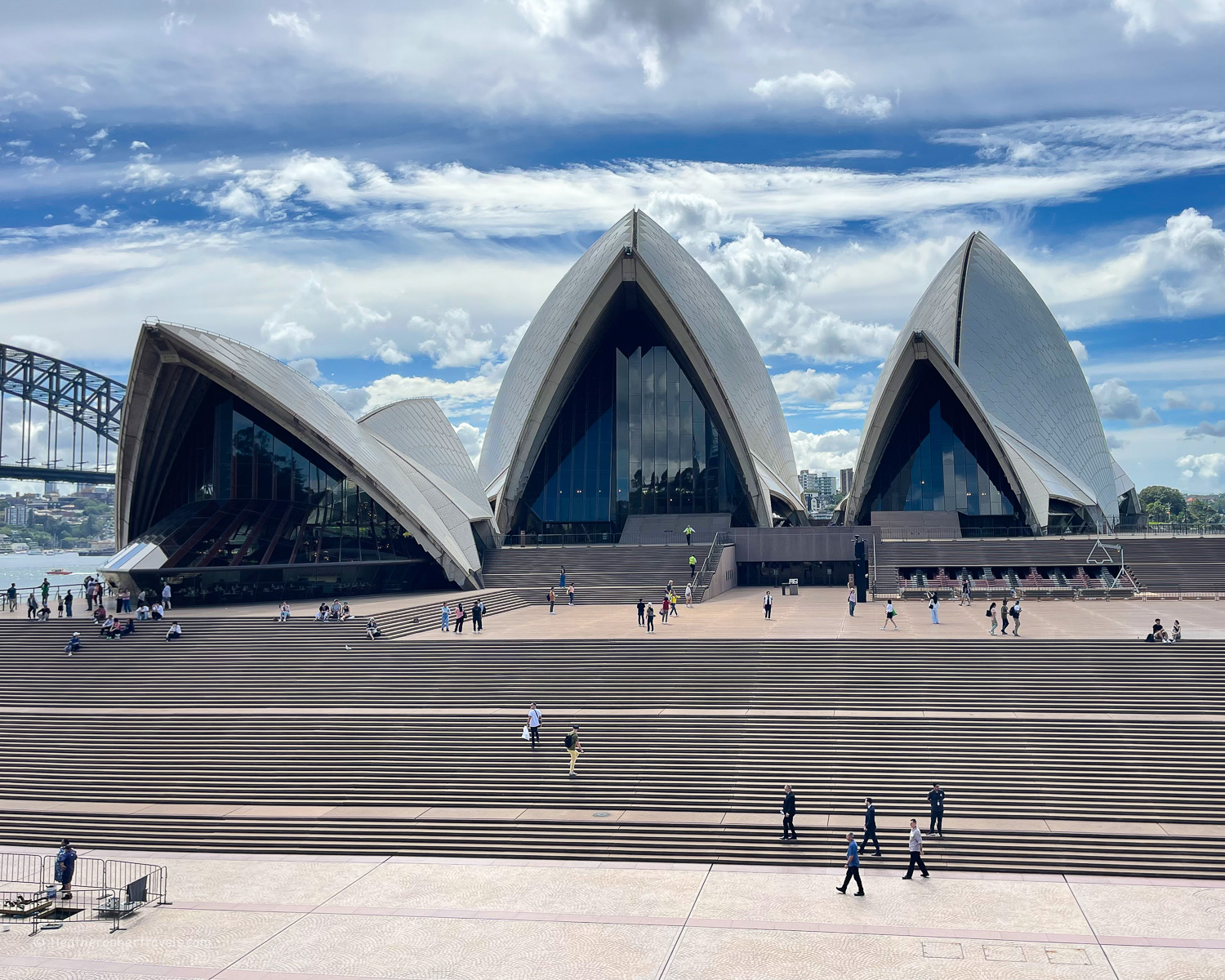
- On this lower ground level is the House Canteen, with Asian inspired all day dining and the Opera Bar, which we recommend for a sunset drink.
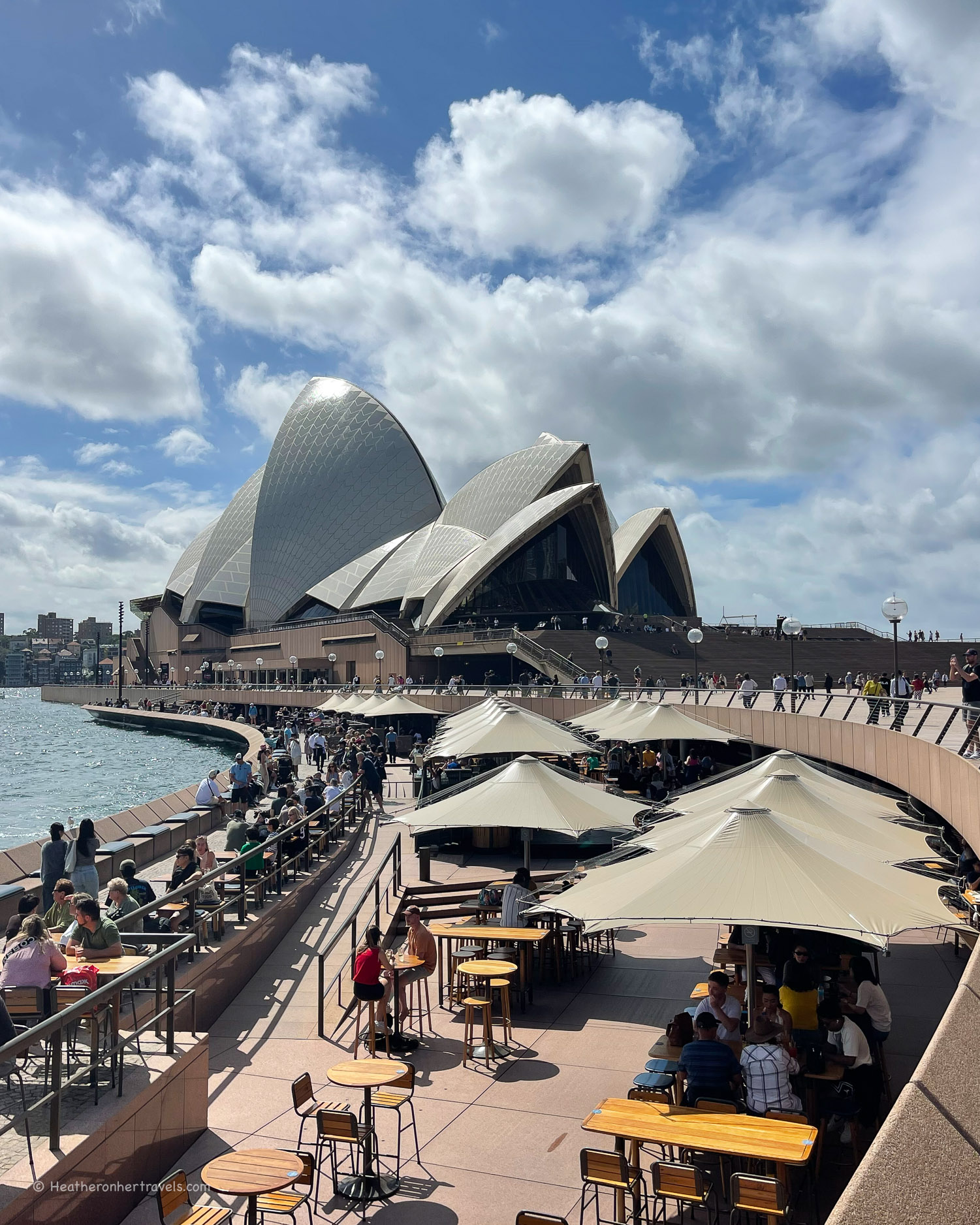
- Check back at dusk when there are often colourful light projections onto the sails of the opera house – while we were there there was a daily Baud Gili projection taking place several times after sunset.
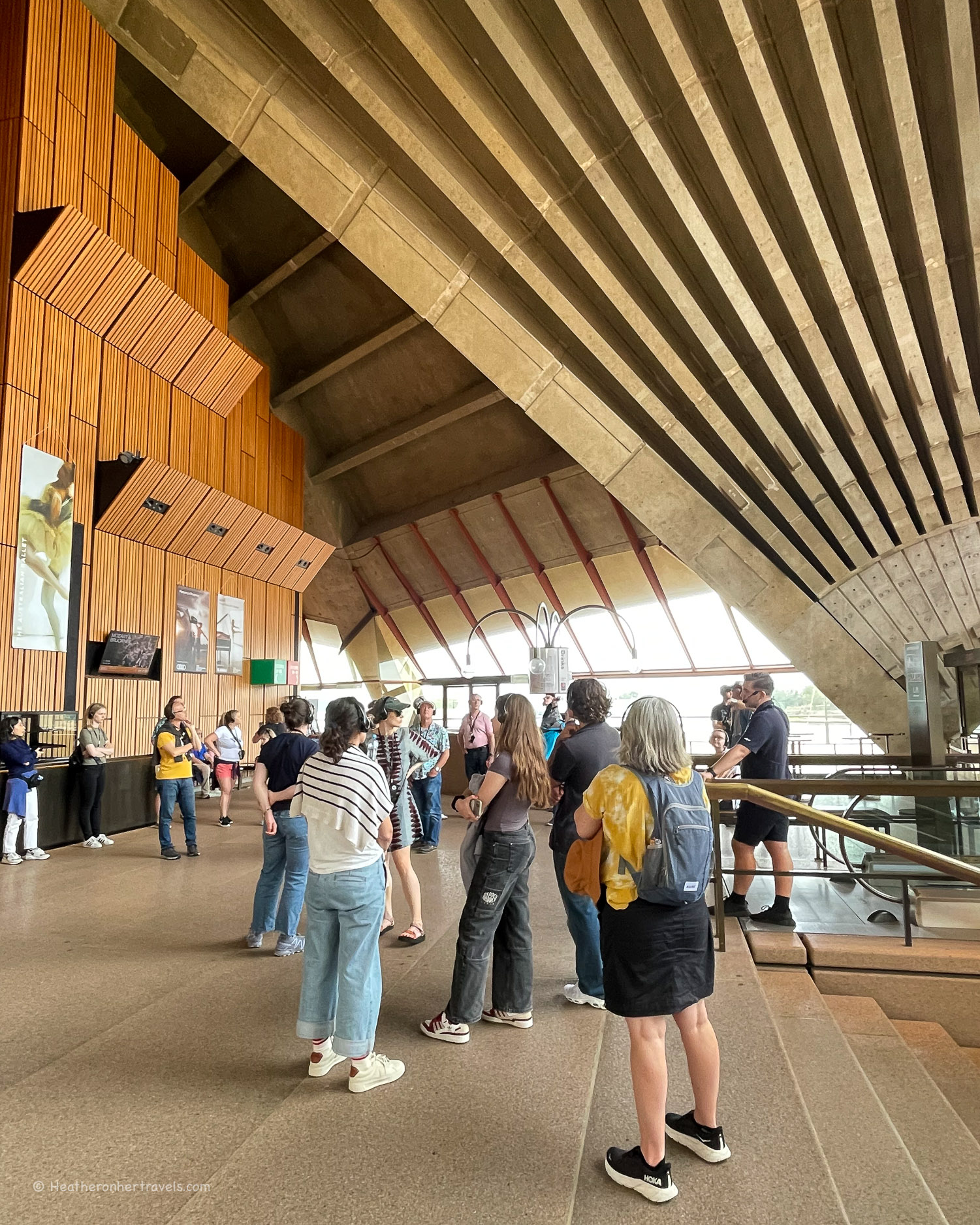
- We highly recommend taking a tour of Sydney Opera House if you have more time another day, to see the stunning interiors of the Opera House. On our tour, we really enjoyed the sculptural quality of the building, stories of its construction and close ups of the distinctive roof tiles and structure.
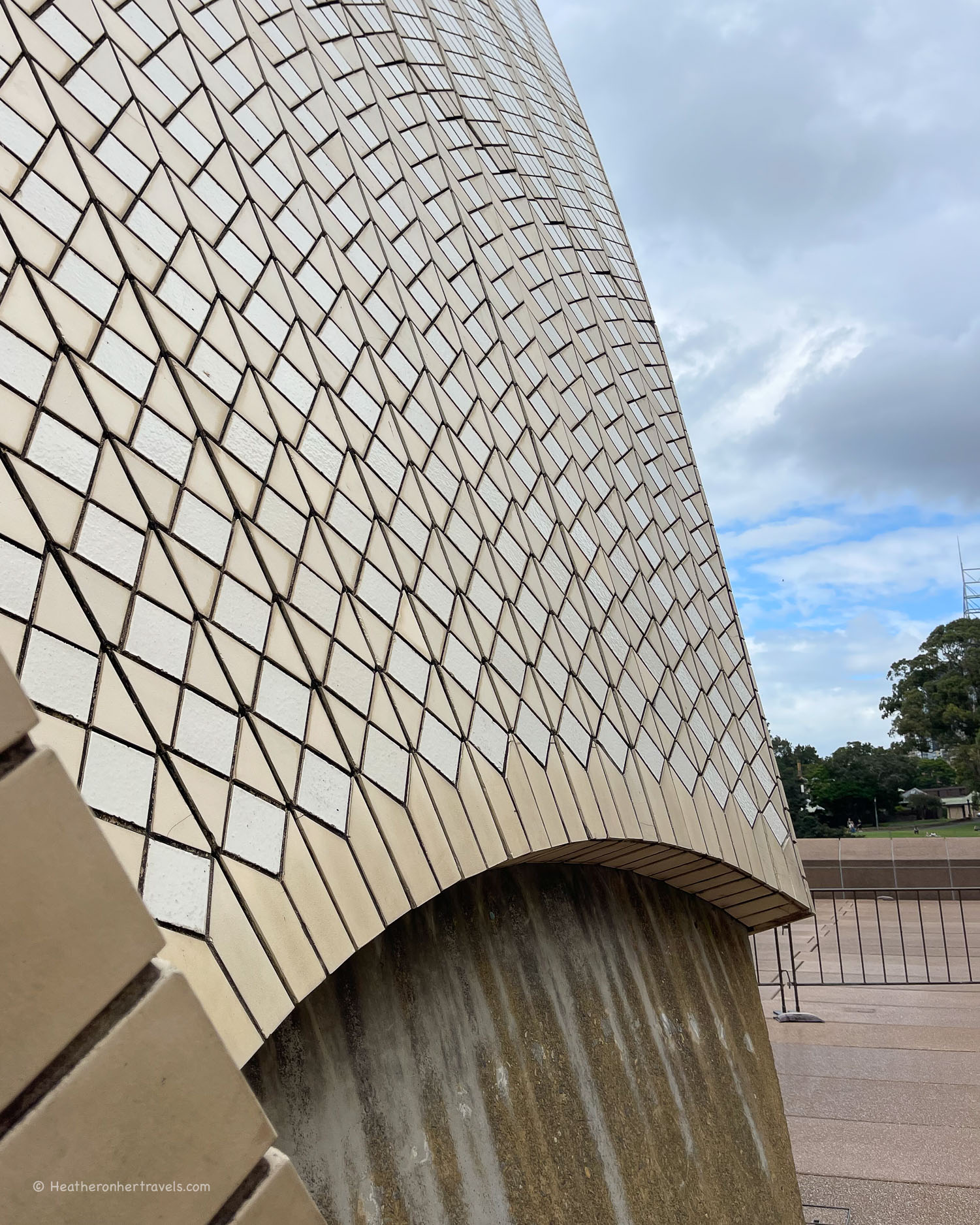
- We also booked tickets for a ballet performance of Nijinsky, which was a fun evening, offering another way to experience the Opera House from the inside. If you are Sydney for a while, check what’s on, as it’s a memorable experience.
Find more information on the Sydney Opera House website.
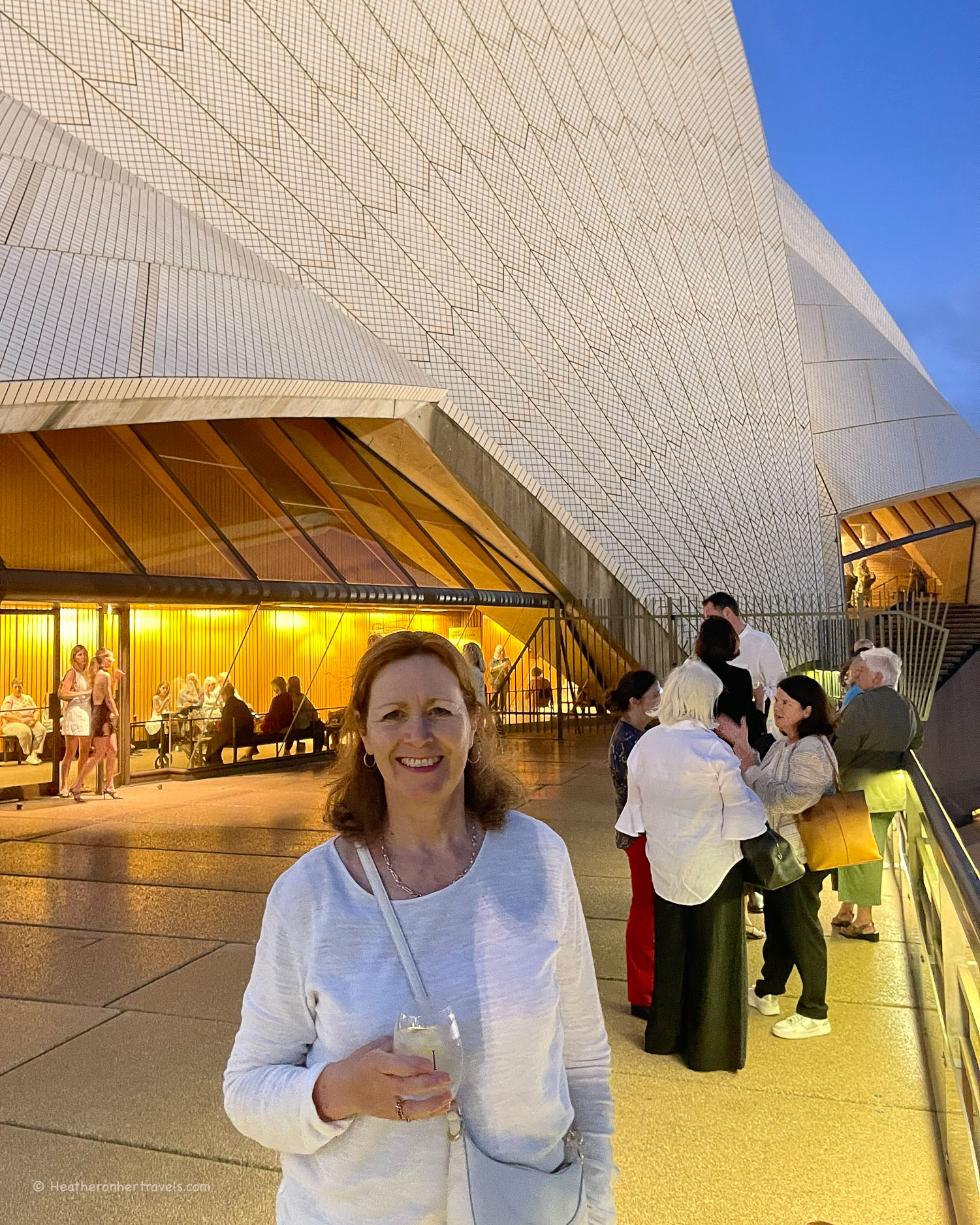
Now walk through the Opera House Gate into the Botanical Gardens.
Botanic Gardens of Sydney
We recommend spending up to an hour in the Botanic Gardens and having lunch there – it’s a calming oasis after the crowds around the Sydney Opera House. The 30 hectare garden overlooks Farm Cove and was the site of the first farm planted, to sustain the European colony.
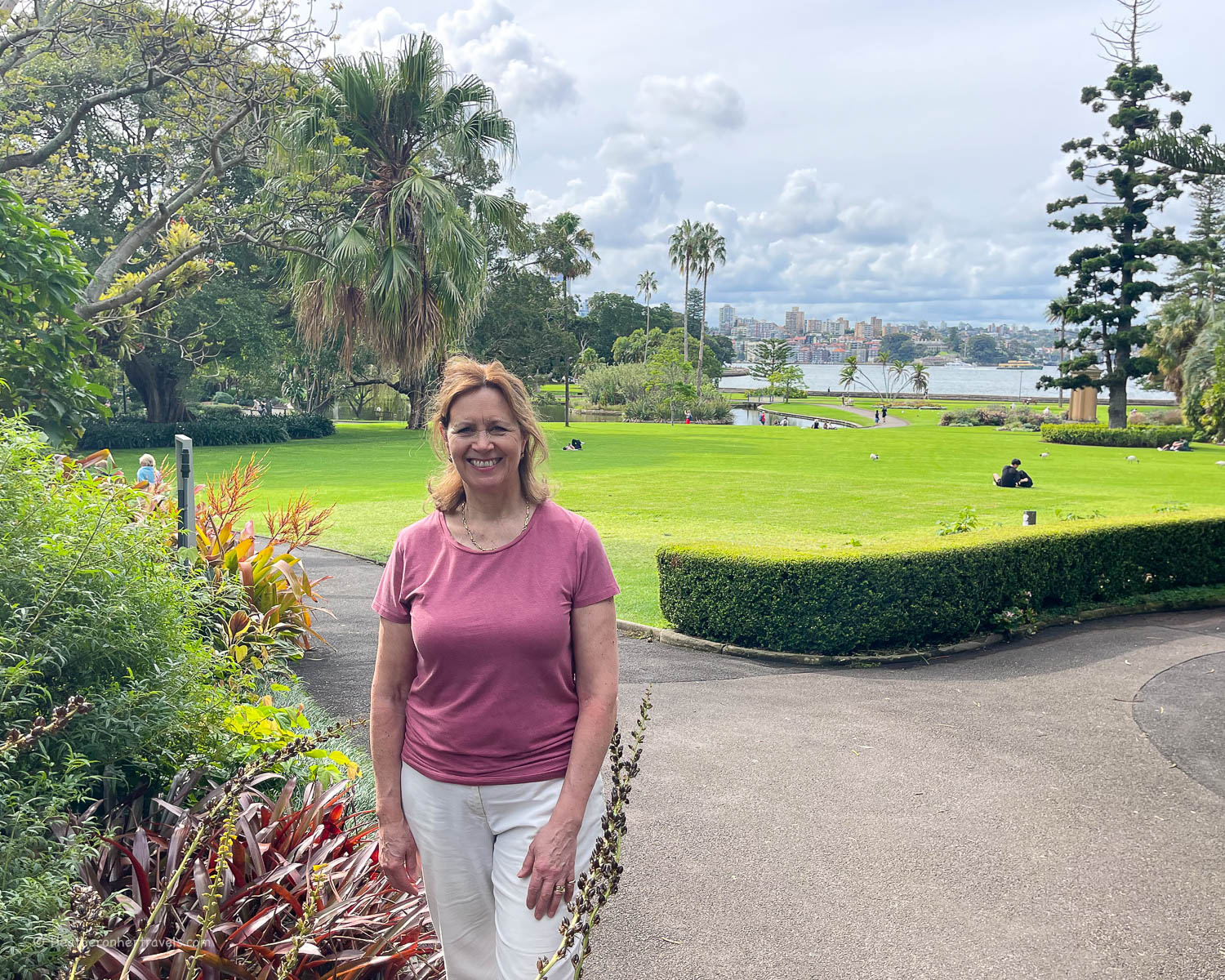
After entering from the Opera House Gate, follow the path slightly up hill to get a glimpse of Government House through the railings, which is the office and residence of the Governor of New South Wales.
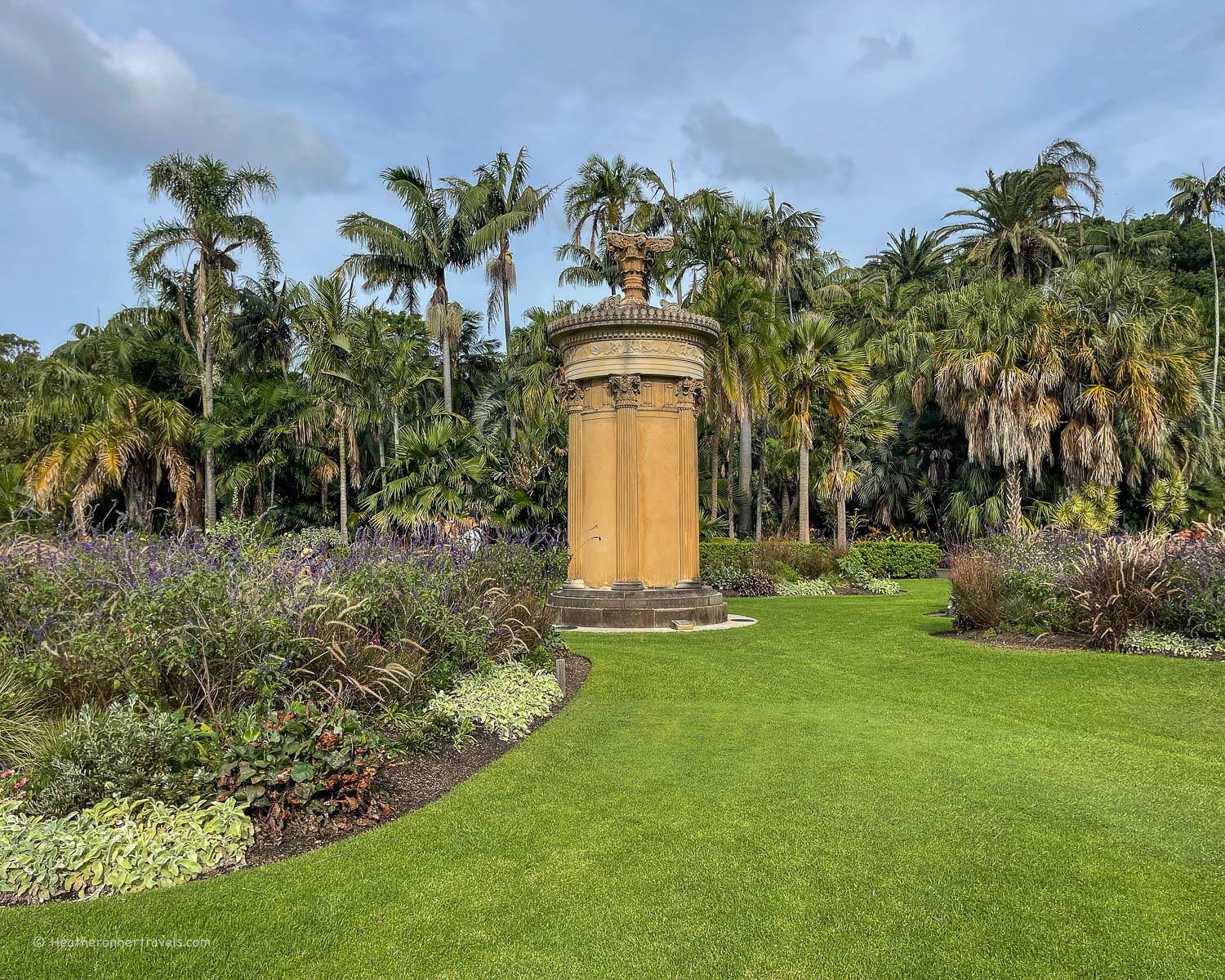
Tip: If you want to have a picnic in the Botanic Garden, a great place is the Bennelong Lawn, tucked between Government House and the Sydney Opera House, where you can sit under a shady tree looking down over the Opera House.
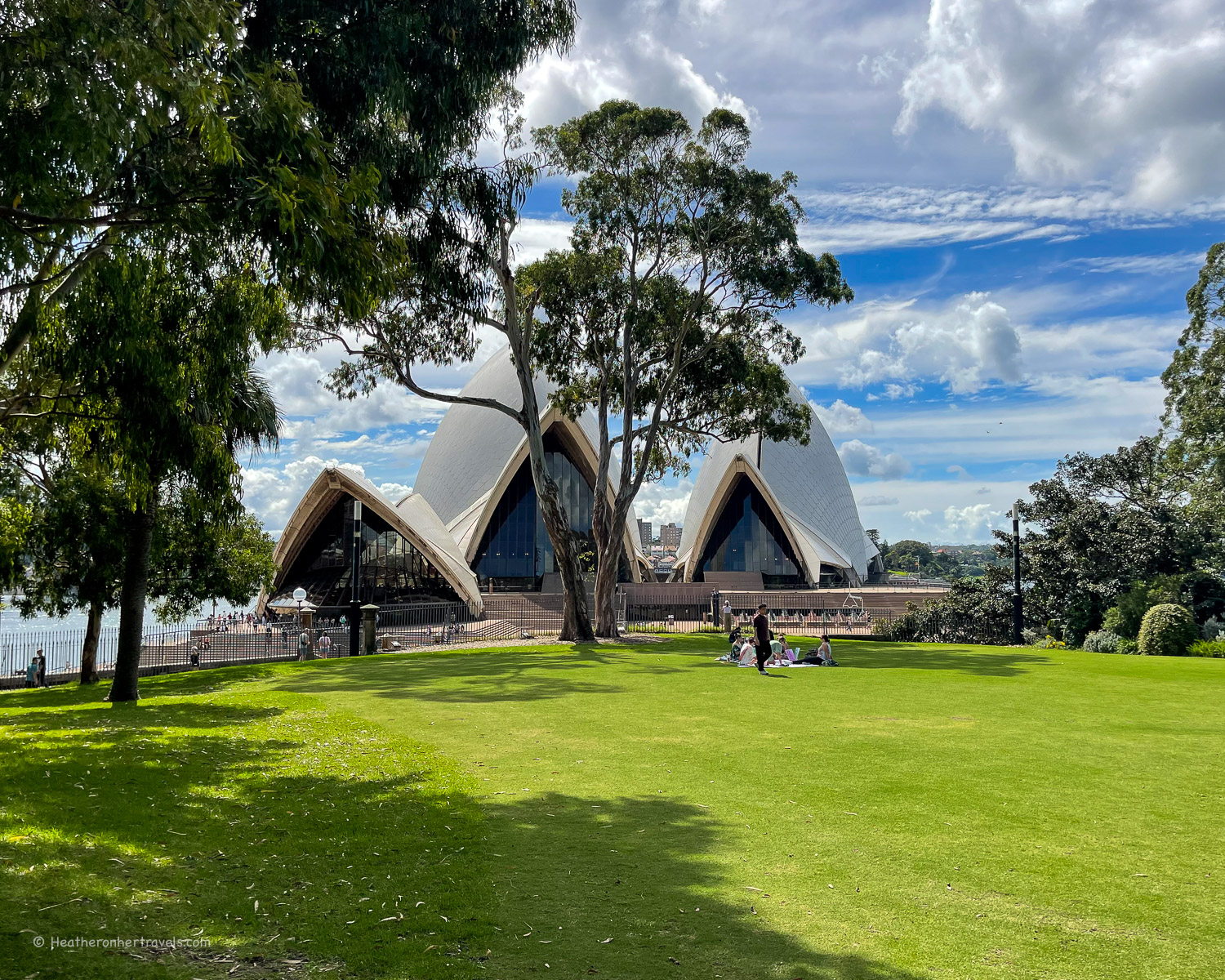
There are a number of ‘gardens within gardens’ in the Botanic Garden of Sydney, as well as plenty of lawns and shady trees to sit and relax. We recommend wandering around for an hour, making your way up through the garden, in the direction of the exit opposite the Art Gallery of New South Wales.
Our favourite garden spots were:
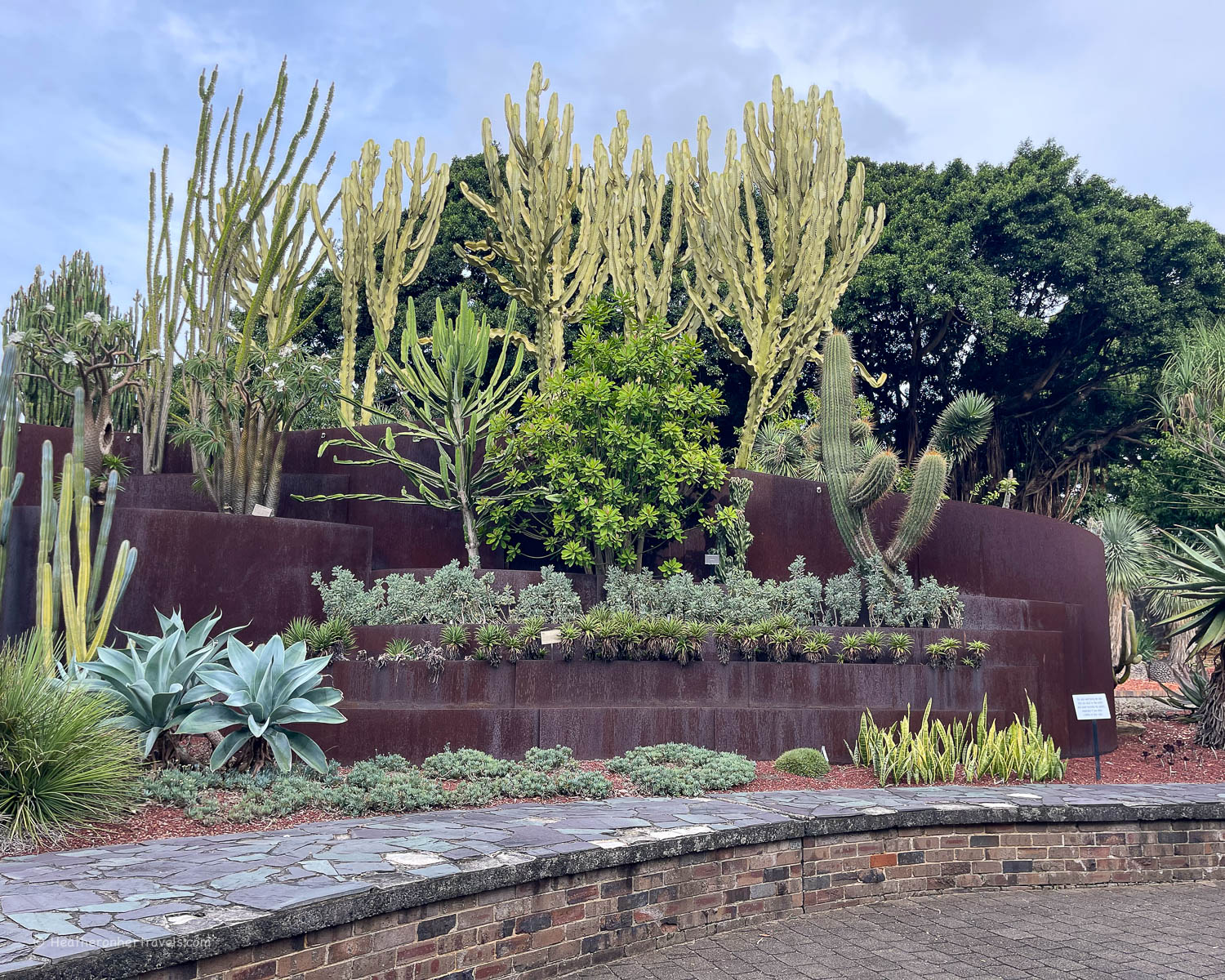
- The Succulent Garden – a walled area with cactus and other sculptural succulents
- Palace Rose Garden – with a pergola of climbing roses as well as beds of bush and species roses
- The Palm Grove – full of colourful kaffir lilies in springtime
- The Calyx – a modern glasshouse with a living green wall that hosts exhibitions and events
- The Herb Garden – a formal garden with aromatic plants
- Cadi Jam Ora – with boards telling the stories of first encounters between the Gadigal people and the European settlers
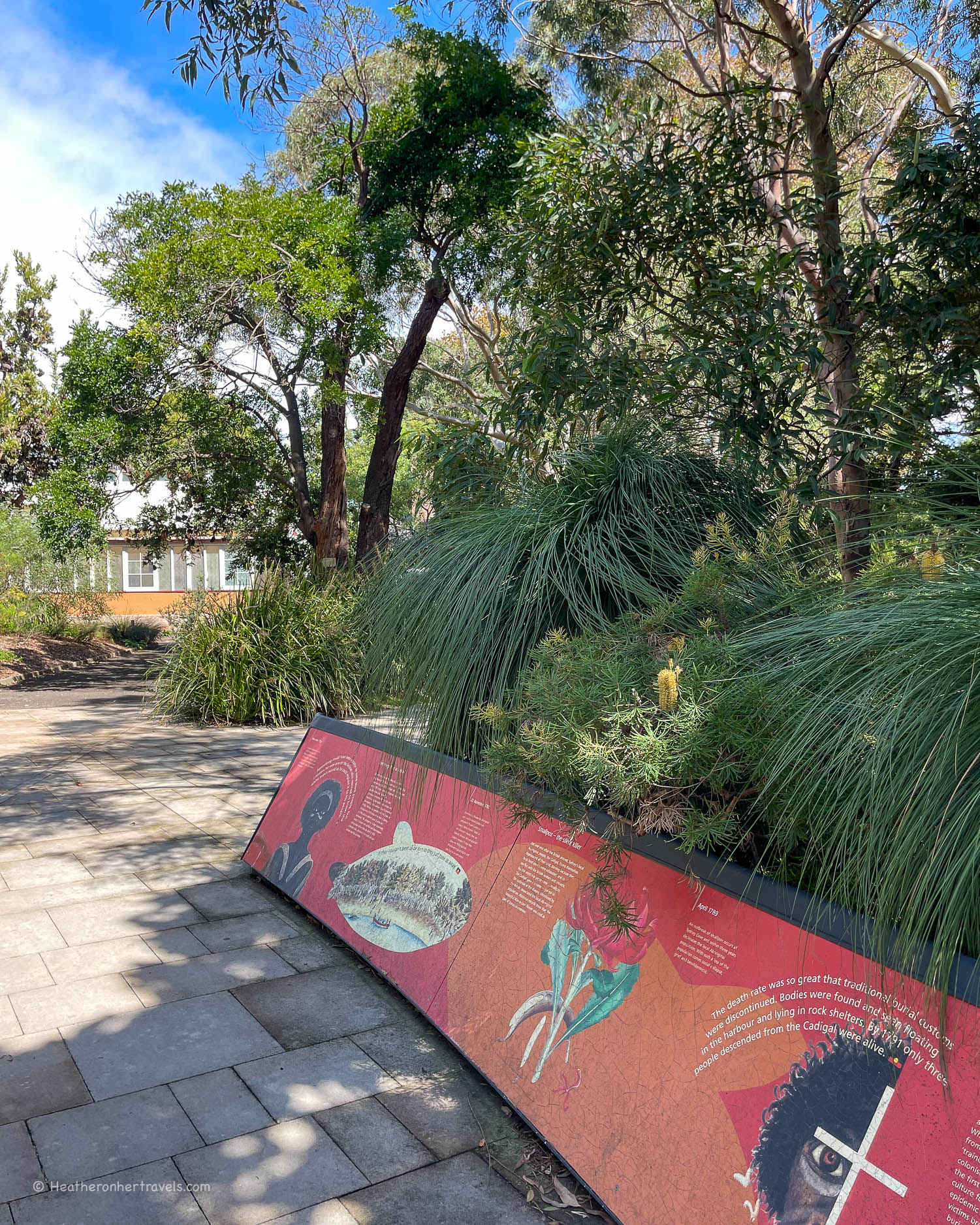
Lunch stop: We recommend a relaxed light lunch in the ground floor Farm Cove Eatery, within the Botanical gardens. If you prefer a more formal table service lunch, try the Botanic House restaurant by Luke Nguyen on the upper floor, offering an upscale Asian fusion menu.
More information on the Botanic Gardens of Sydney website.
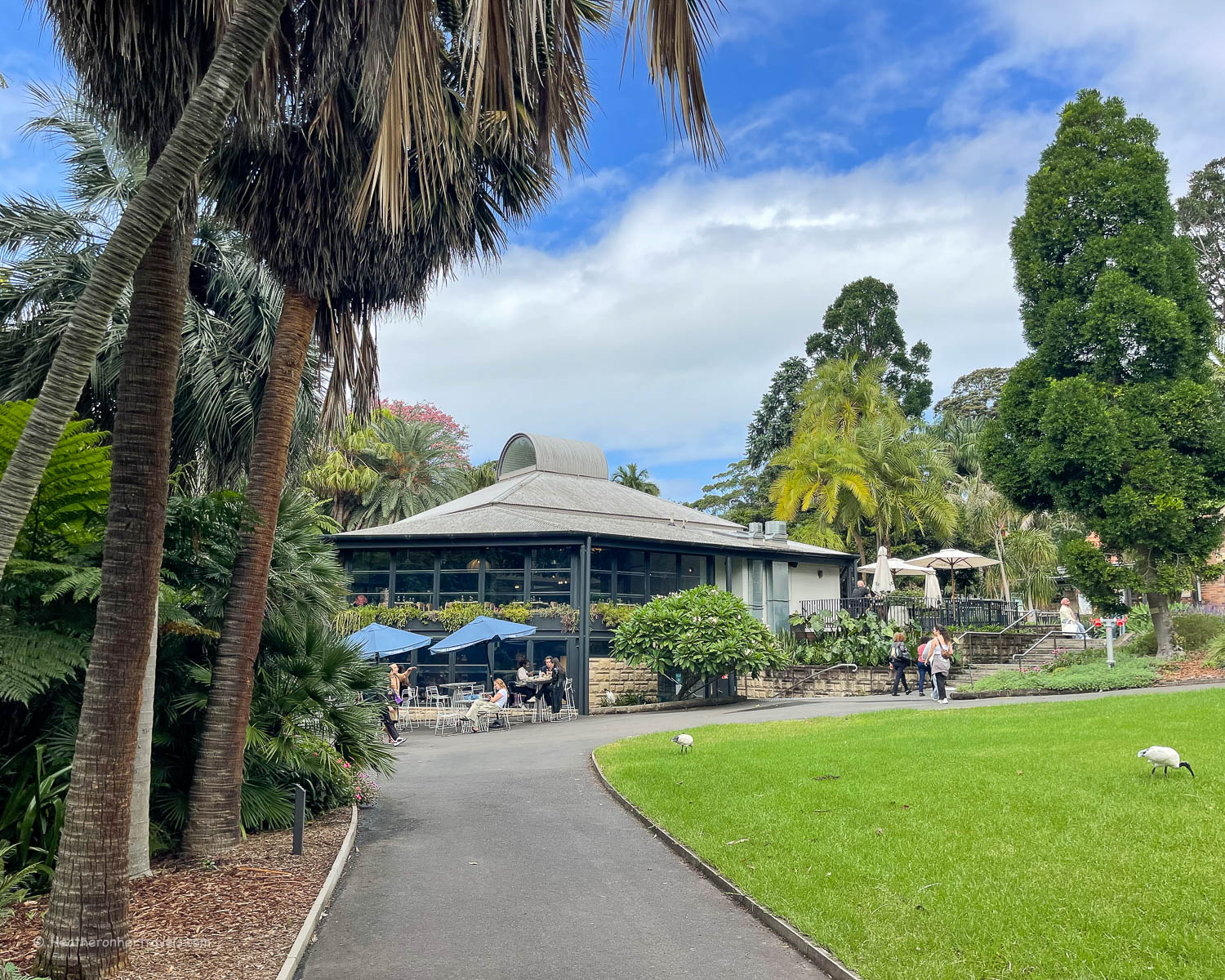
After lunch it’s time to enjoy one of Sydney’s outstanding museums and galleries. We have two recommendations for you, both of which are free. You should allocate at least an hour to each of them, so it’s better to choose one or the other, as you probably won’t have time for both.
Art Gallery of New South Wales
The gallery is a haven for art lovers, with the focus on Australian art and photography and a strong collection of Aboriginal and Torres Strait Islander art. We especially recommend the newer glass wing, where you can see some Aboriginal art in the Yirbana Gallery.
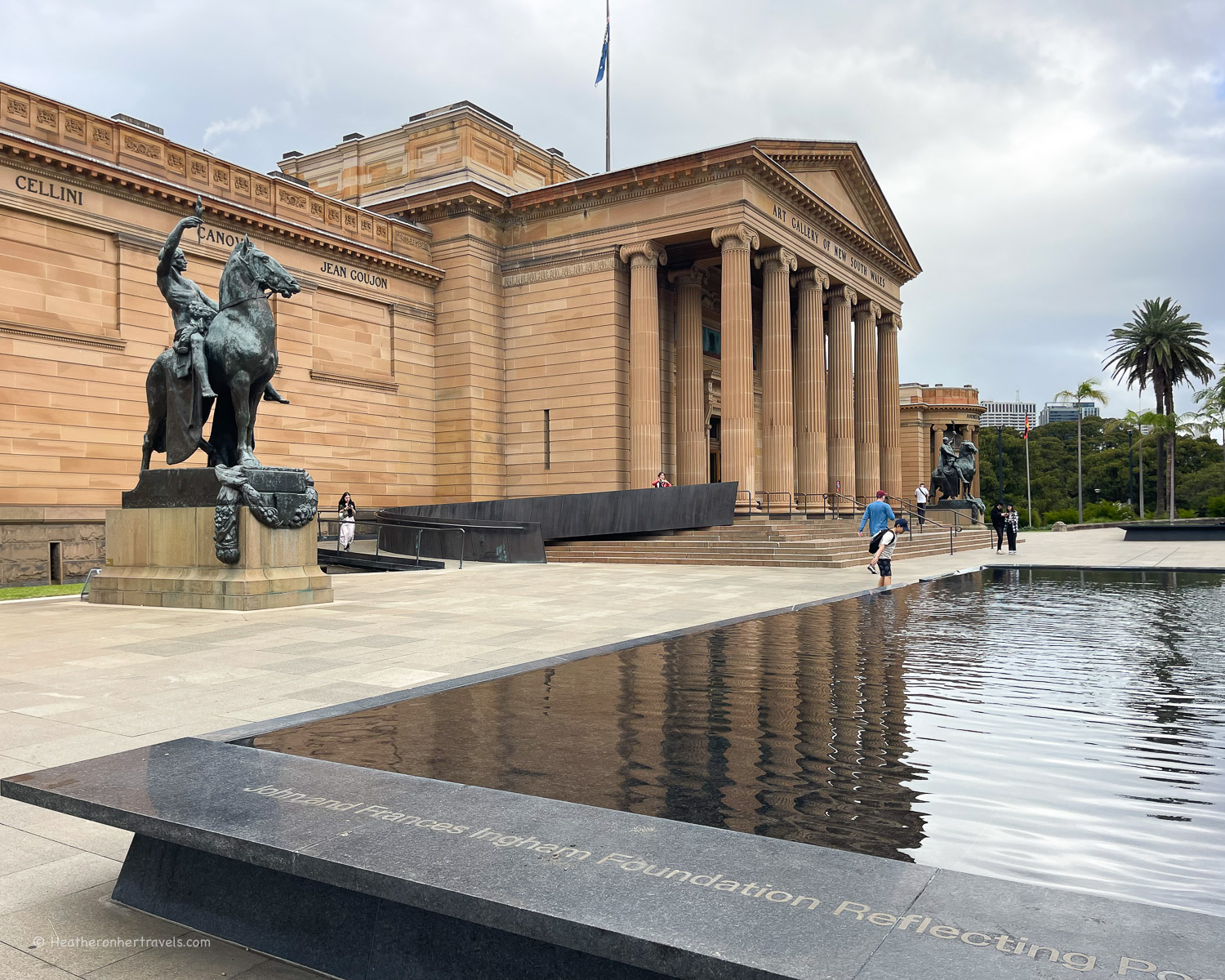
The Art Gallery campus comprises two connected buildings, the original 19th century sandstone classical facade, and the newer glass pavilions named Naala Badu.
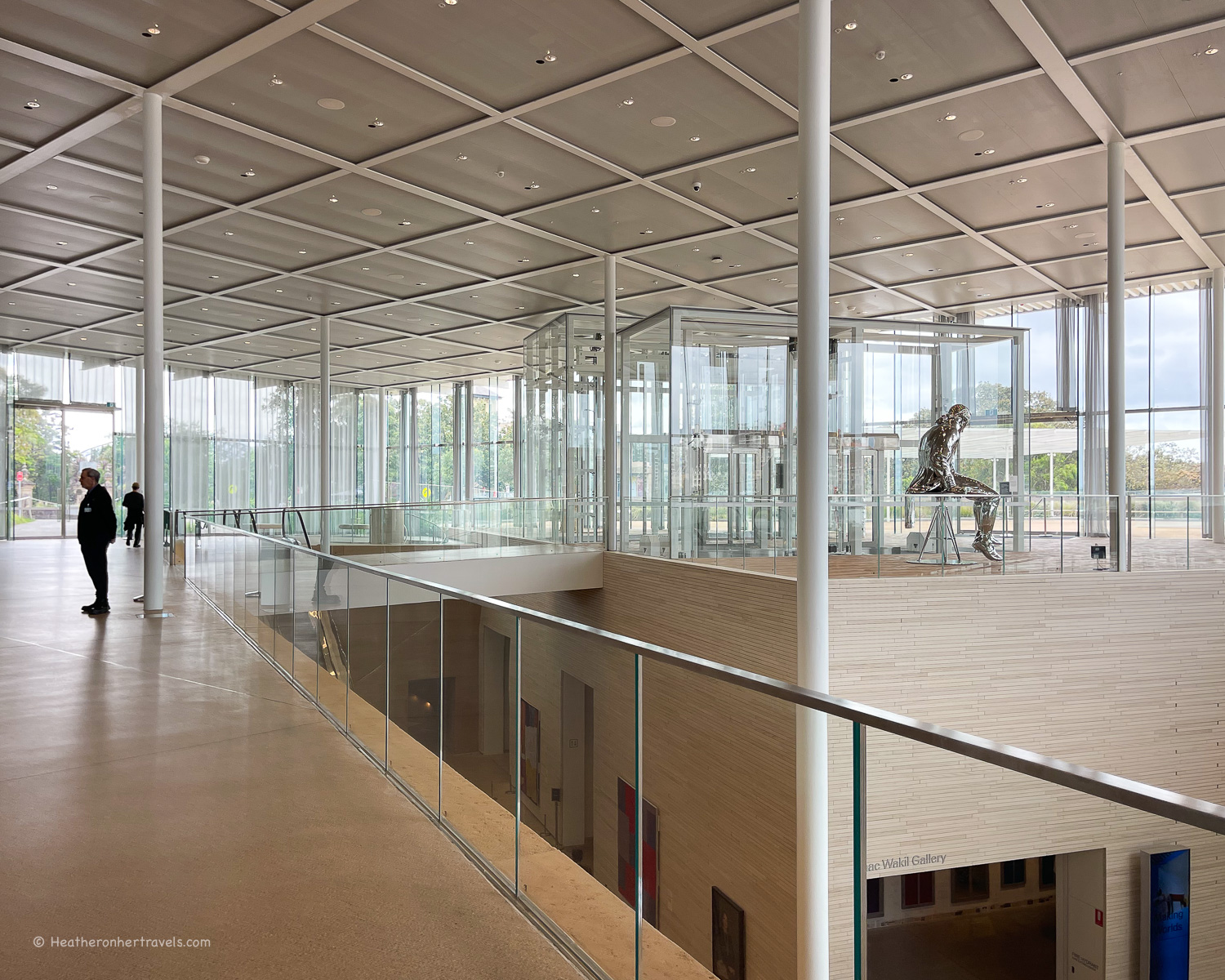
If you are short of time, I’d enter the glass pavilions first, as this is where the Yirbana Gallery is located. The gallery, meaning ‘This way’ in the language of the Eora people, houses the collection of Aborigonal and Torres Strait Islander art, and is one of the highlights of the whole museum.
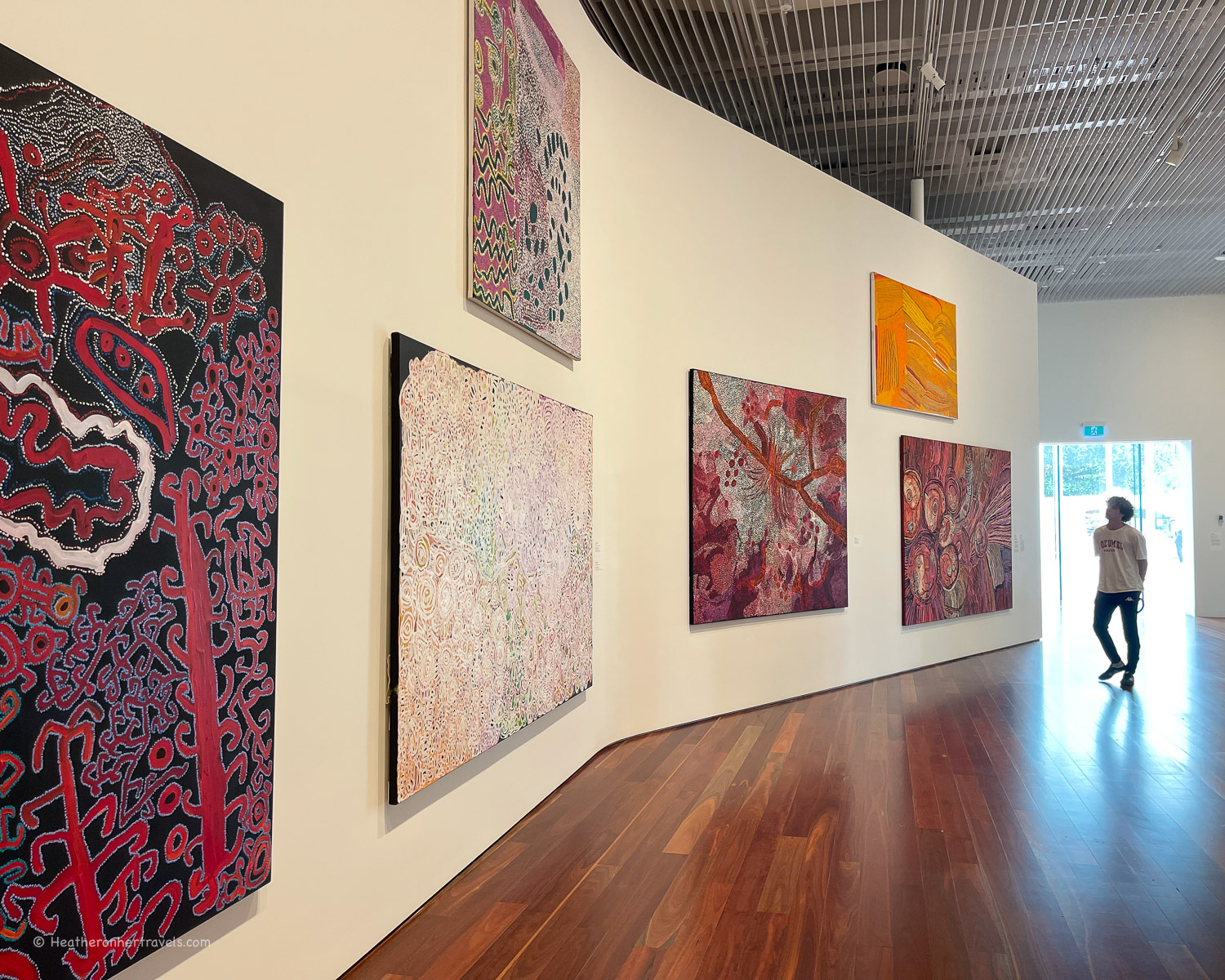
The galleries of the 19th century building also offer beautifully displayed collections of Australian and European art. I enjoyed the way that art from different eras was mixed together in the galleries, based on themes, rather than centuries, which give the galleries a lively and contemporary feel.
More information on the Art Gallery of NSW Website.
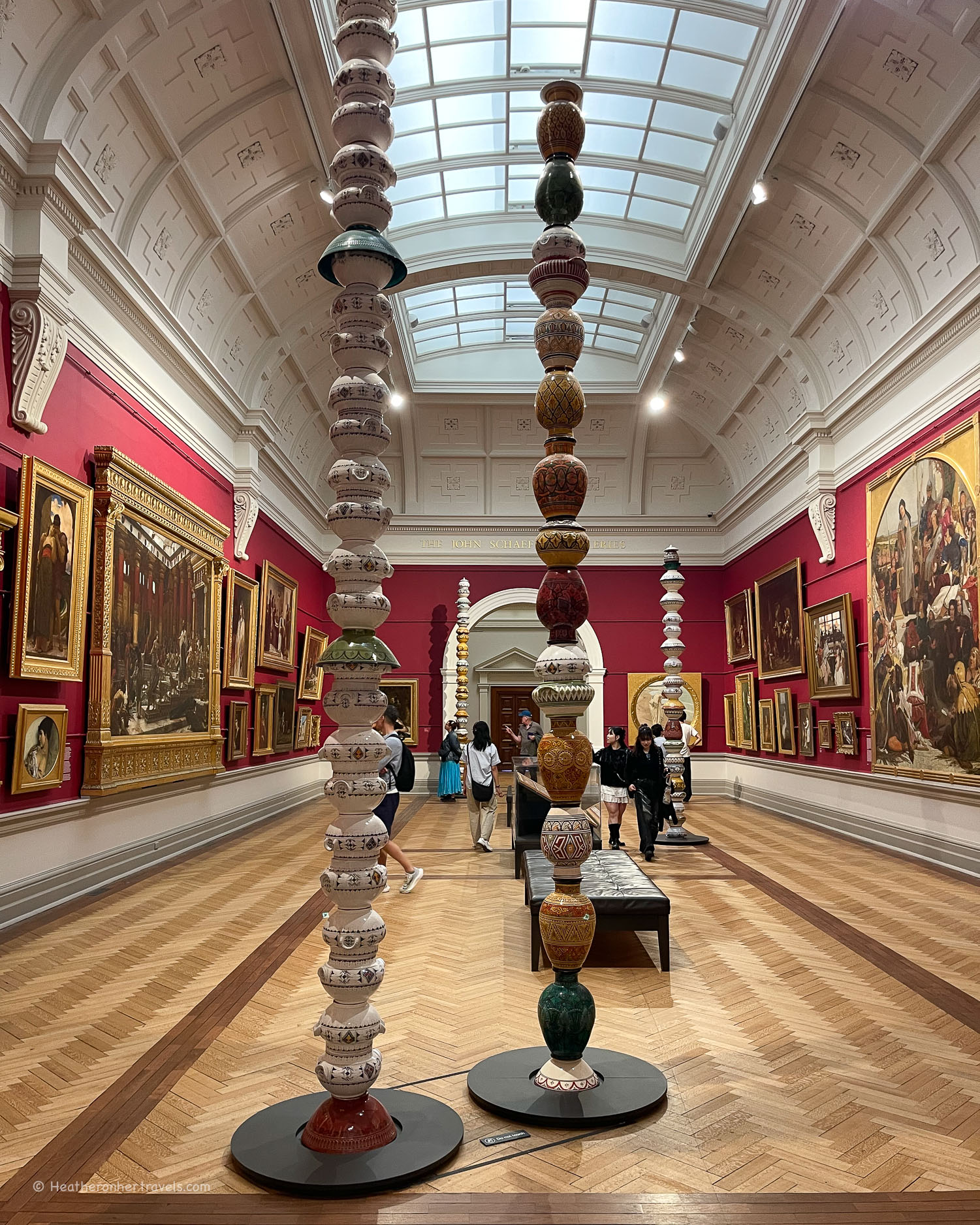
After spending around an hour here, walk across the Domain, an open green space, to Hyde Park Barracks Museum.
Hyde Park Barracks Museum
If you are interested in the early beginnings of Sydney as a colony, the Hyde Park Barracks Museum covers the convict history of those who were deported from England to build a new life here.
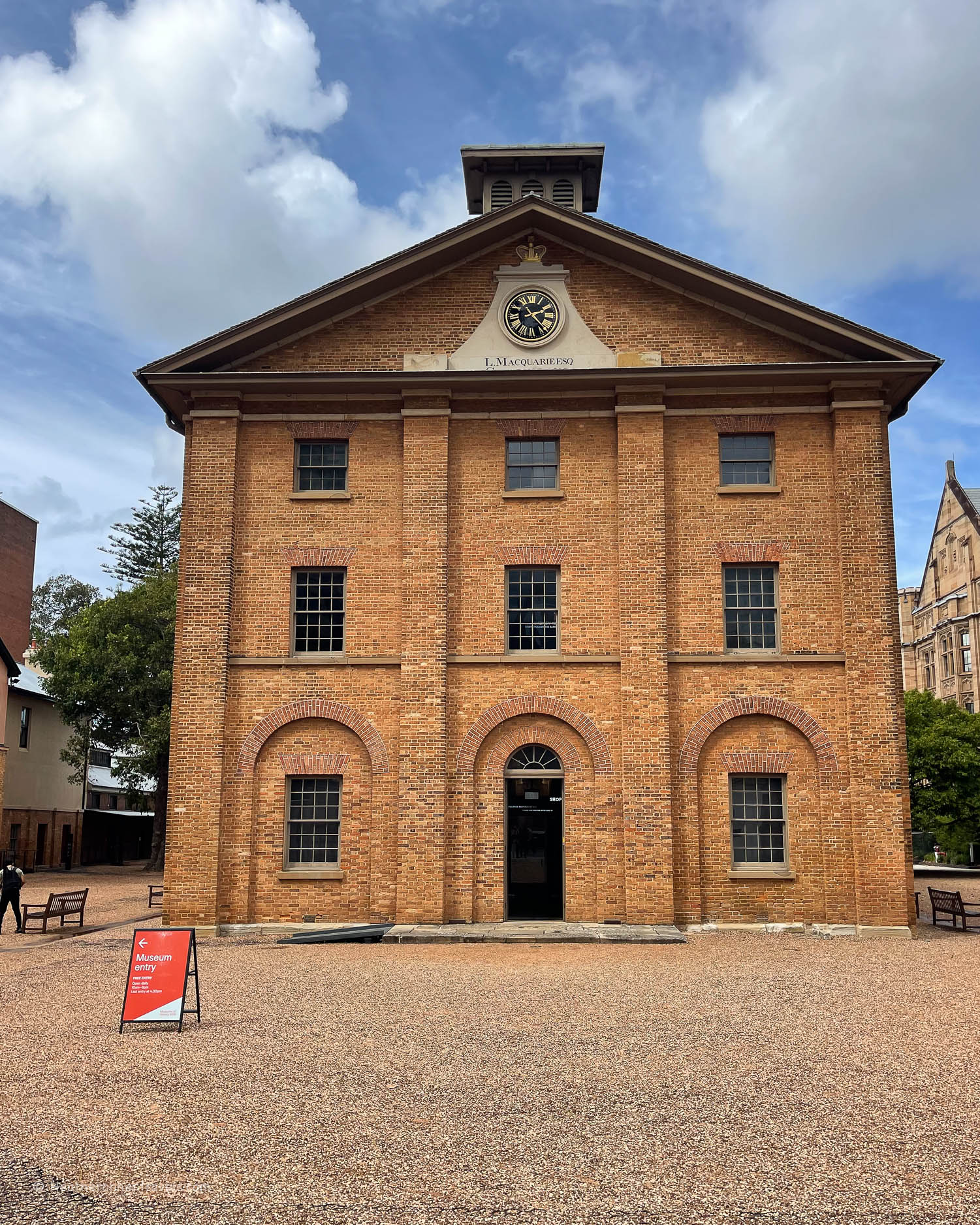
The classically proportioned sandstone building, by convict architect Francis Greenway, is beautiful in its own right and was built by convict labour in 1819. It originally housed convicts who slept in cramped rows of hammocks. Later the building provided accommodation for newly arrived female immigrants until they could find work.
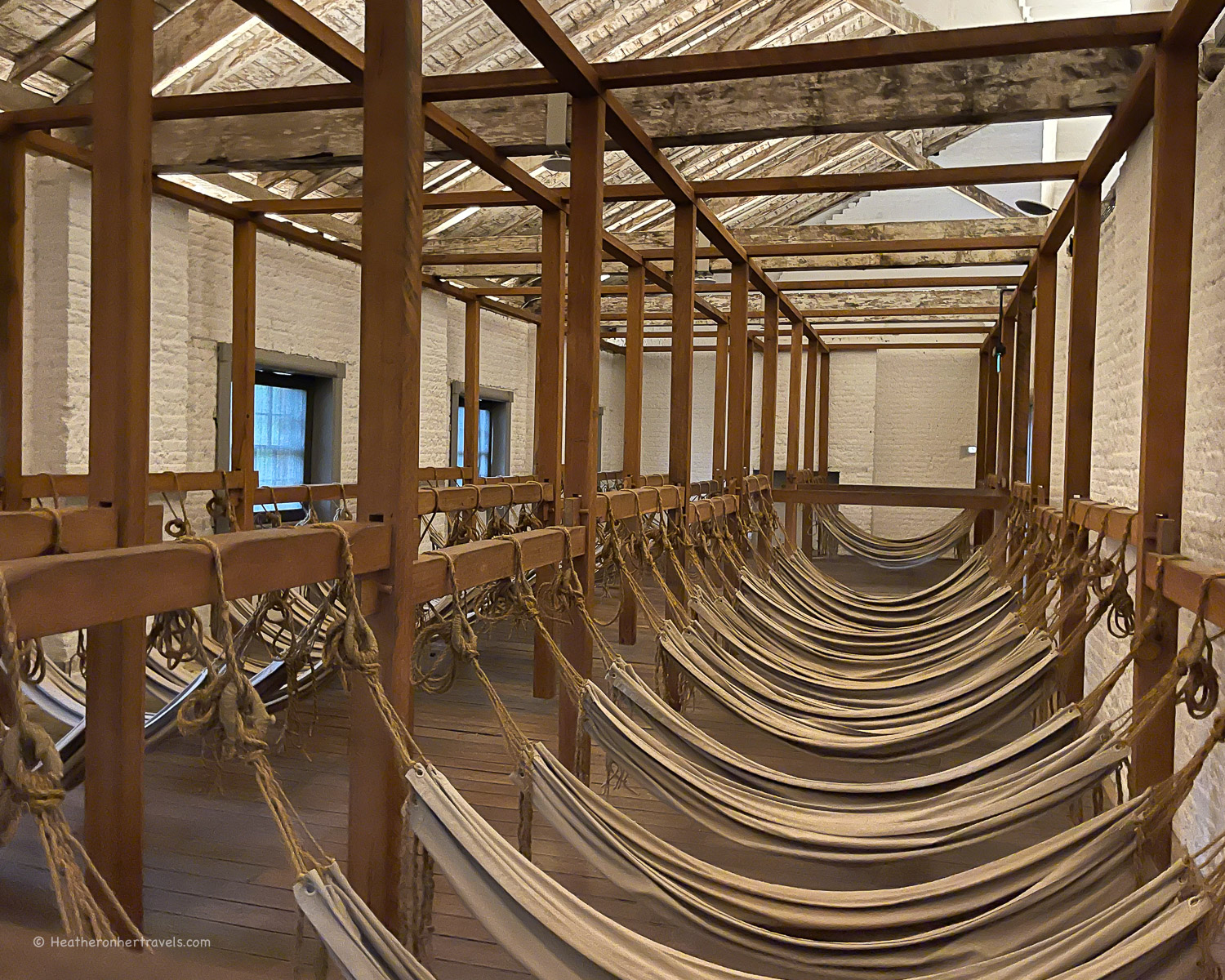
The rooms are based on different themes and take you on a journey from the first arrival of the convicts after a long sea journey, to the work they were set to do and the expansion of the new colony.
It’s a relaxing museum to visit, since you are provided with an audio guide and headphones, that automatically start their commentary as you pass through each room.
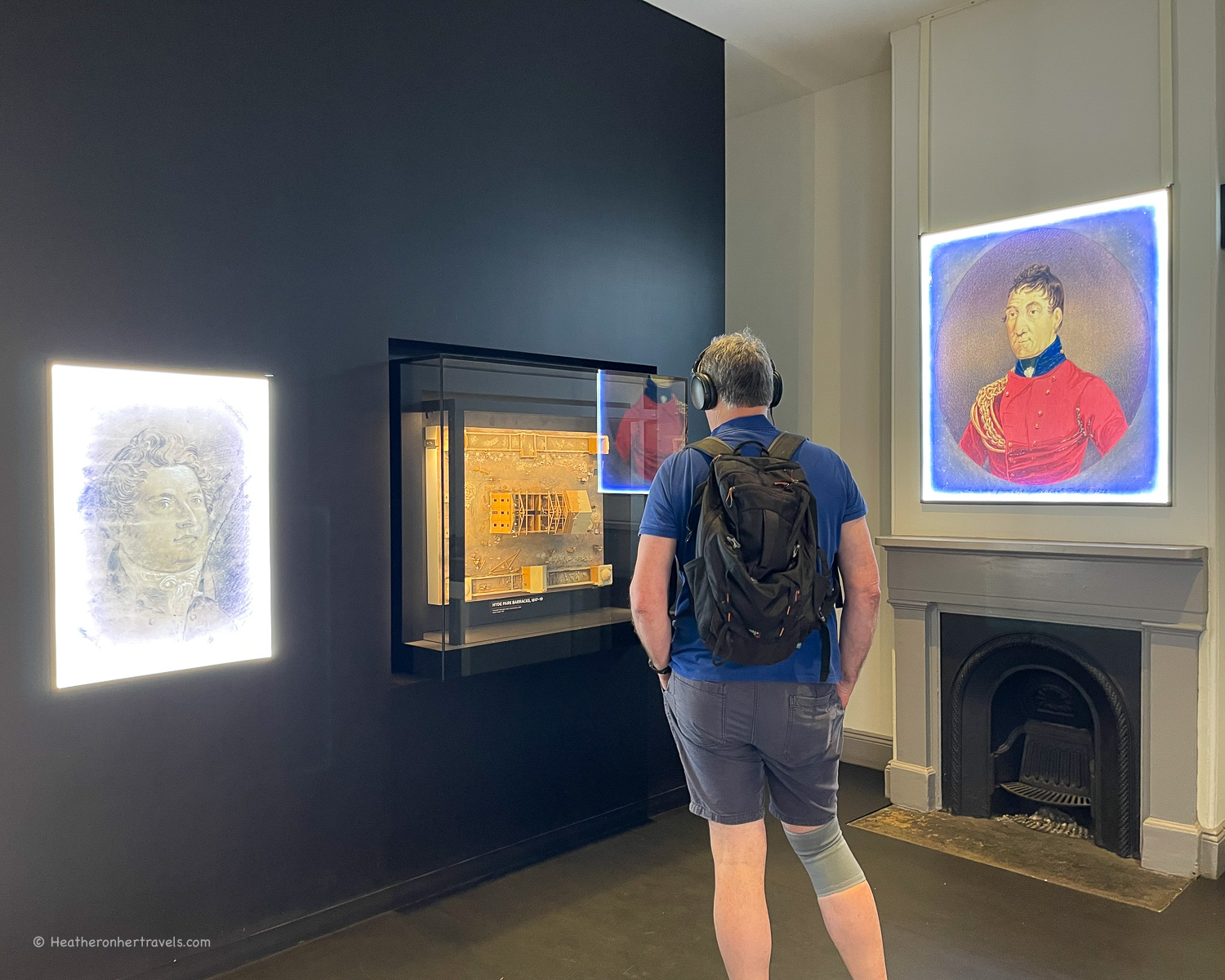
If you’ve spent your time at the Art Gallery of New South Wales (you probably won’t have time to do both museums), you can still admire Hyde Park Barracks from the outside.
More information on the Hyde Park Barracks Museum Website
Then walk down Macquarie Street to see some of the 19th century historic buildings, from the early days of the colony, as you make your way back to the starting point at Circular Quay.
Macquarie Street
Named after Lachlan Macquarie, one of the early governors of New South Wales, Macquarie Street was set out in the 1800’s. It was intended as a ceremonial route from the harbour, with a number of imposing public buildings. Many were designed by a convict architect, Francis Greenway and are still used today for government or civic purposes.
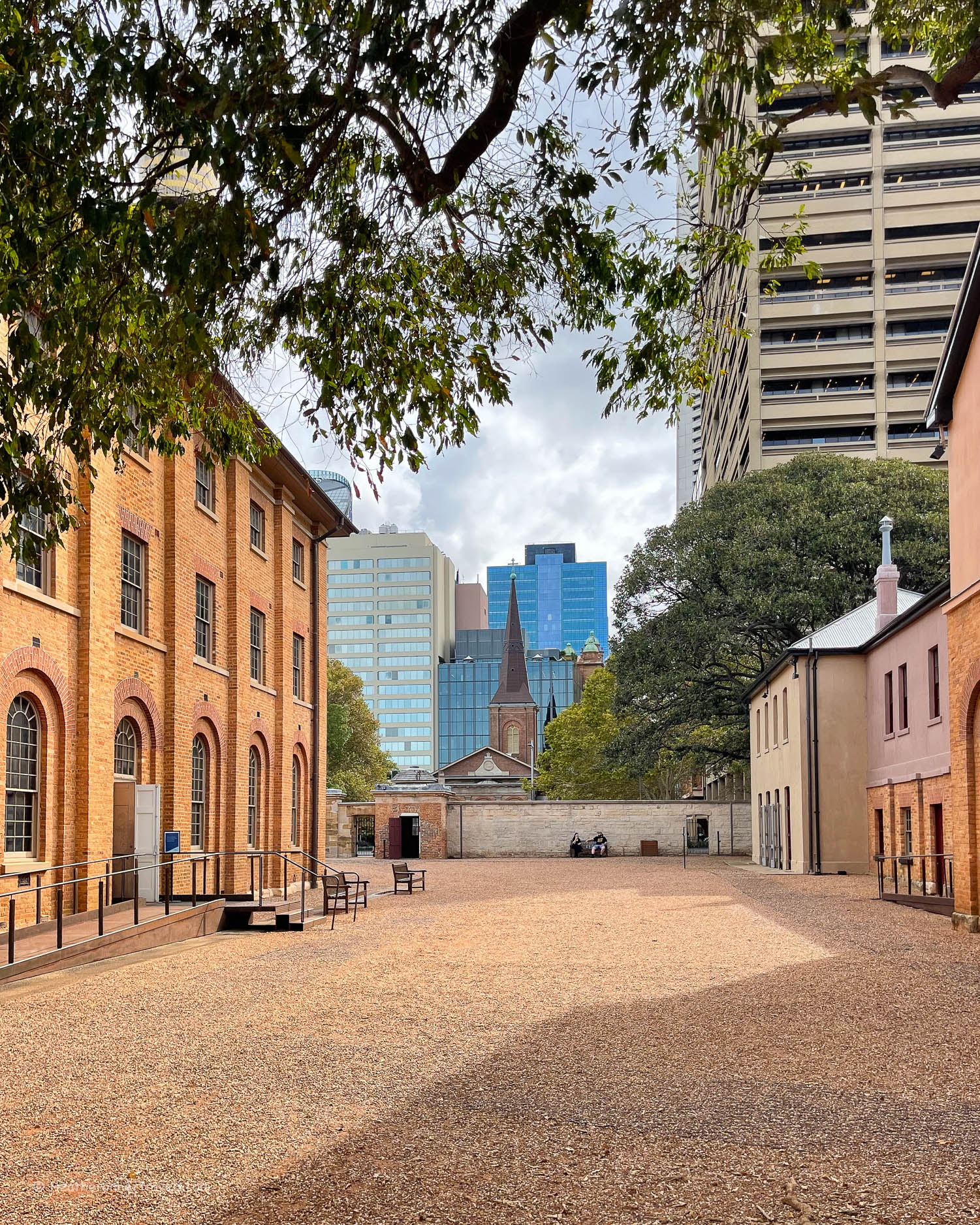
Spend half an hour walking along the street, to admire the architecture of these imposing buildings as you head towards Martin Place.
Hyde Park Barracks – Built to house convicts and later accommodation for newly arrived female immigrants, now a museum.
St James’ Church – across the street from Hyde Park Barracks, with an elegant exterior and steeple. The interior is quite simple, but there’s a beautiful modern stained glass window in the side chapel.
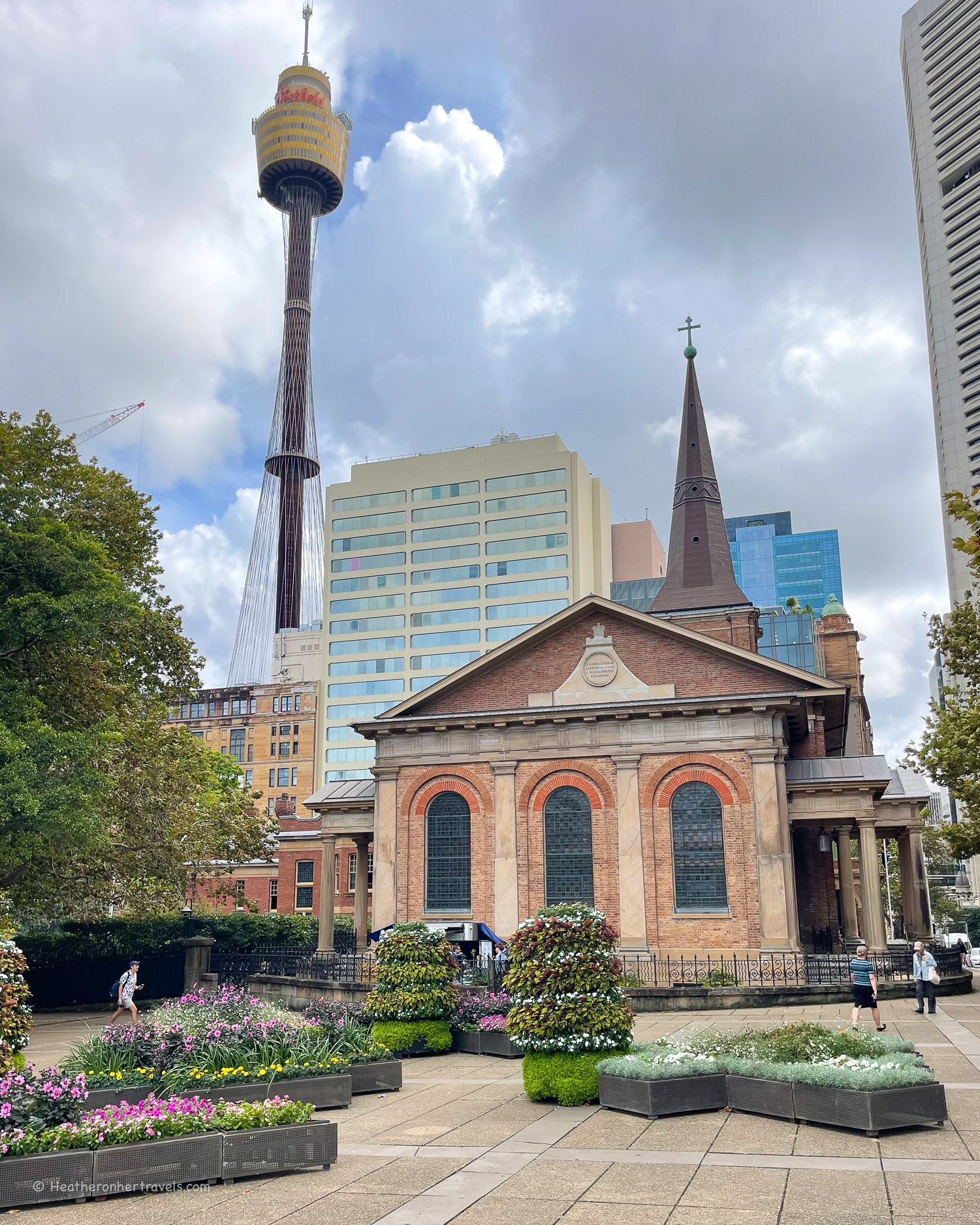
The Mint – formerly a wing of the Sydney Hospital, later used as a mint, to process the gold discovered in Australia. The building has been beautifully restored and houses a small coffee shop and some limited exhibits, with museum offices at the back. You can walk through the portico to see the courtyard space behind.
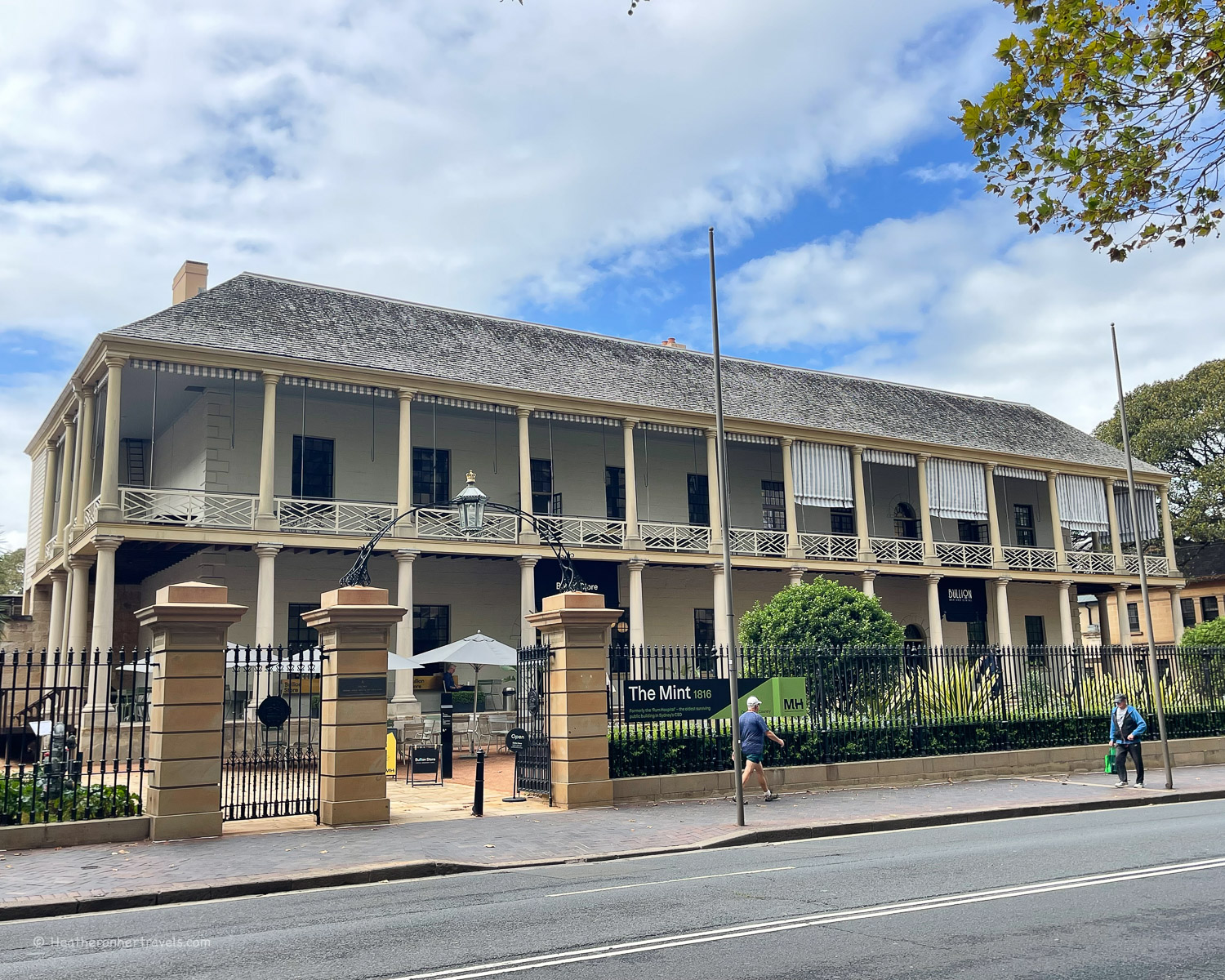
Sydney Hospital – this is a working hospital and the current building stands on the site of the original Sydney Hospital, which was built with two wings, now the Mint and the Parliament Building. At the front is a replica of Il Porcellino, the brass boar statue that stands in Florence, Italy.
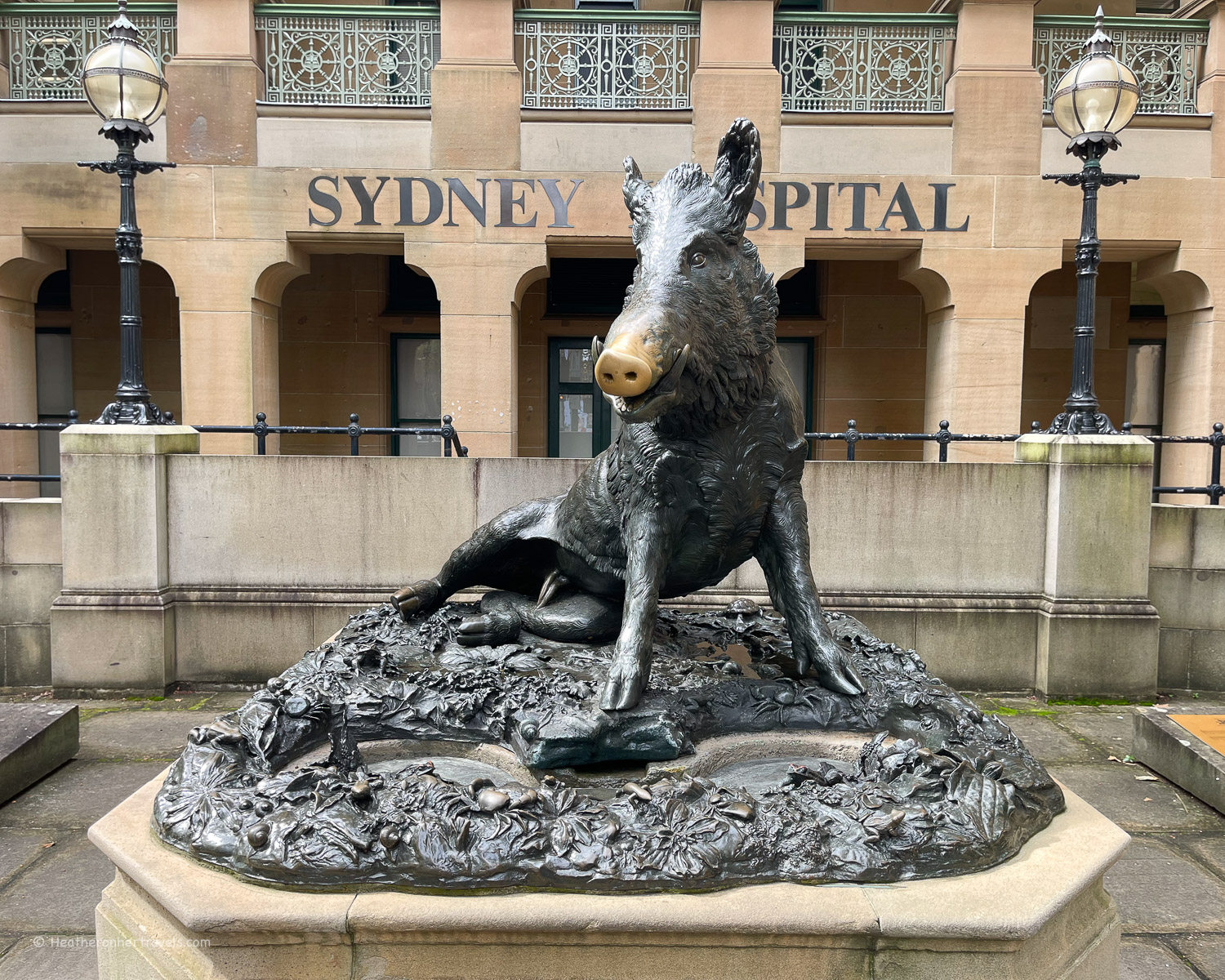
Parliament House – a mirror image of The Mint, this now houses the State Parliament of New South Wales, however tours need to be booked in advance.
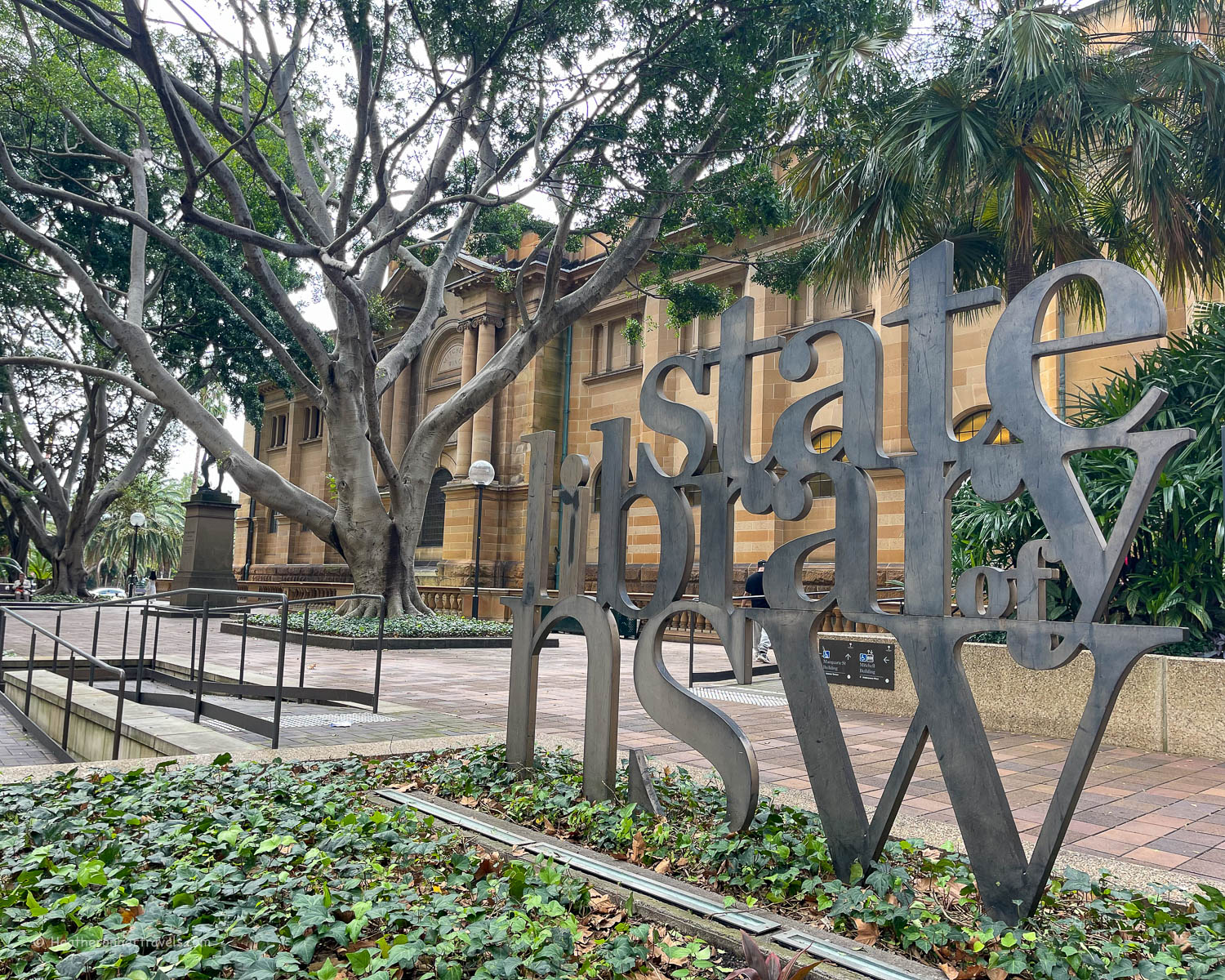
A little further is the State Library of New South Wales, but our route now takes us across the road from the Parliament Building, and down the hill to Martin Place in the Central Business District.
Central Business District (CBD)
Cross the road and head down the hill into Martin Place and the Central Business District (CBD). Depending on where you are staying, you may want to catch the train or bus from Martin Place back to your accommodation.
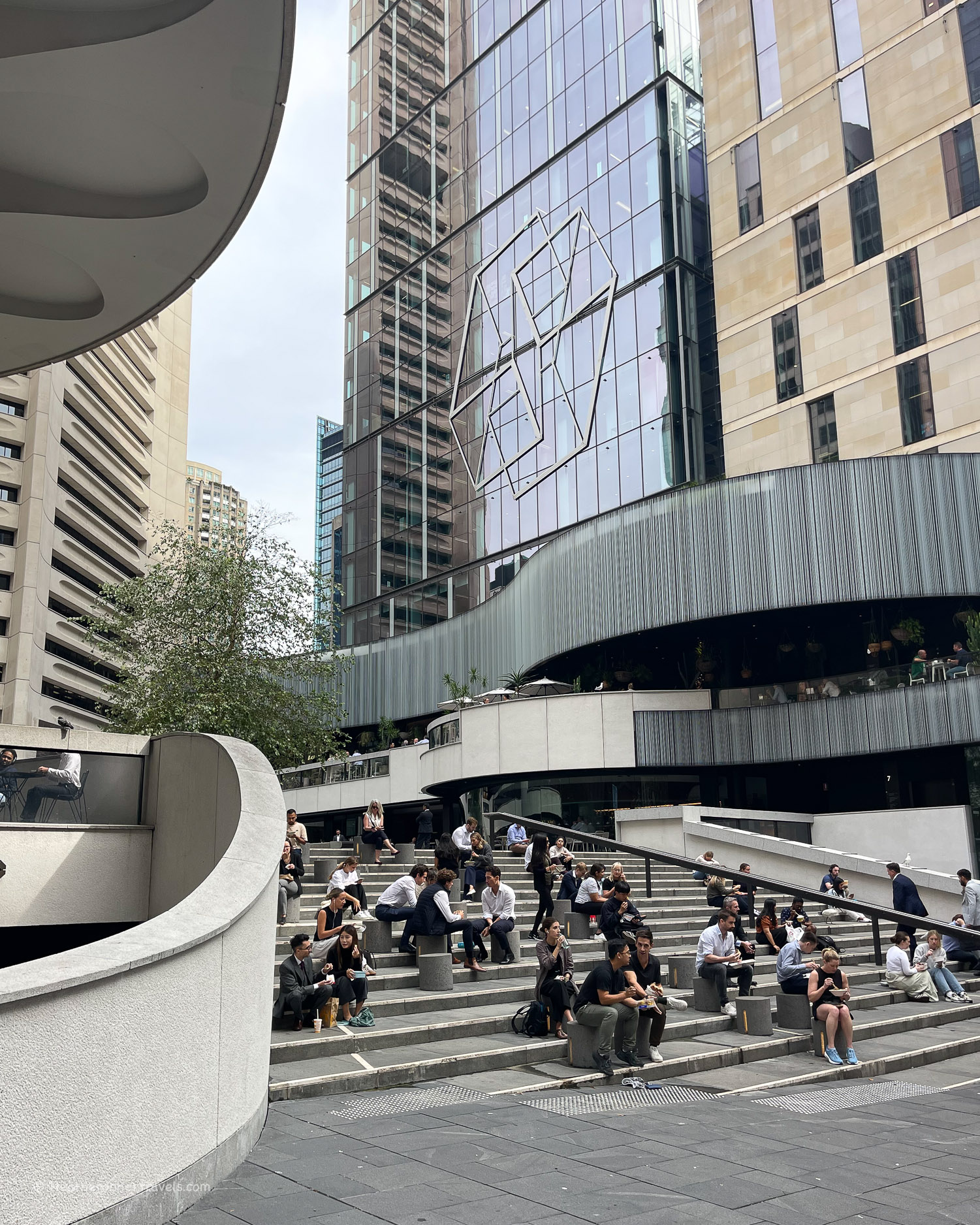
It’s a 10-15 minute walk back to Circular Quay from here, but if you prefer, hop on a 333 bus from Martin Place or the light railway (tram) from Wynyard stop, to take you back to Circular Quay.
If returning on foot to Circular Quay, you could now walk back along Pitt Street or George Street through the Central Business District, soaking up the atmosphere of suited office workers catching an after work drink or heading home.
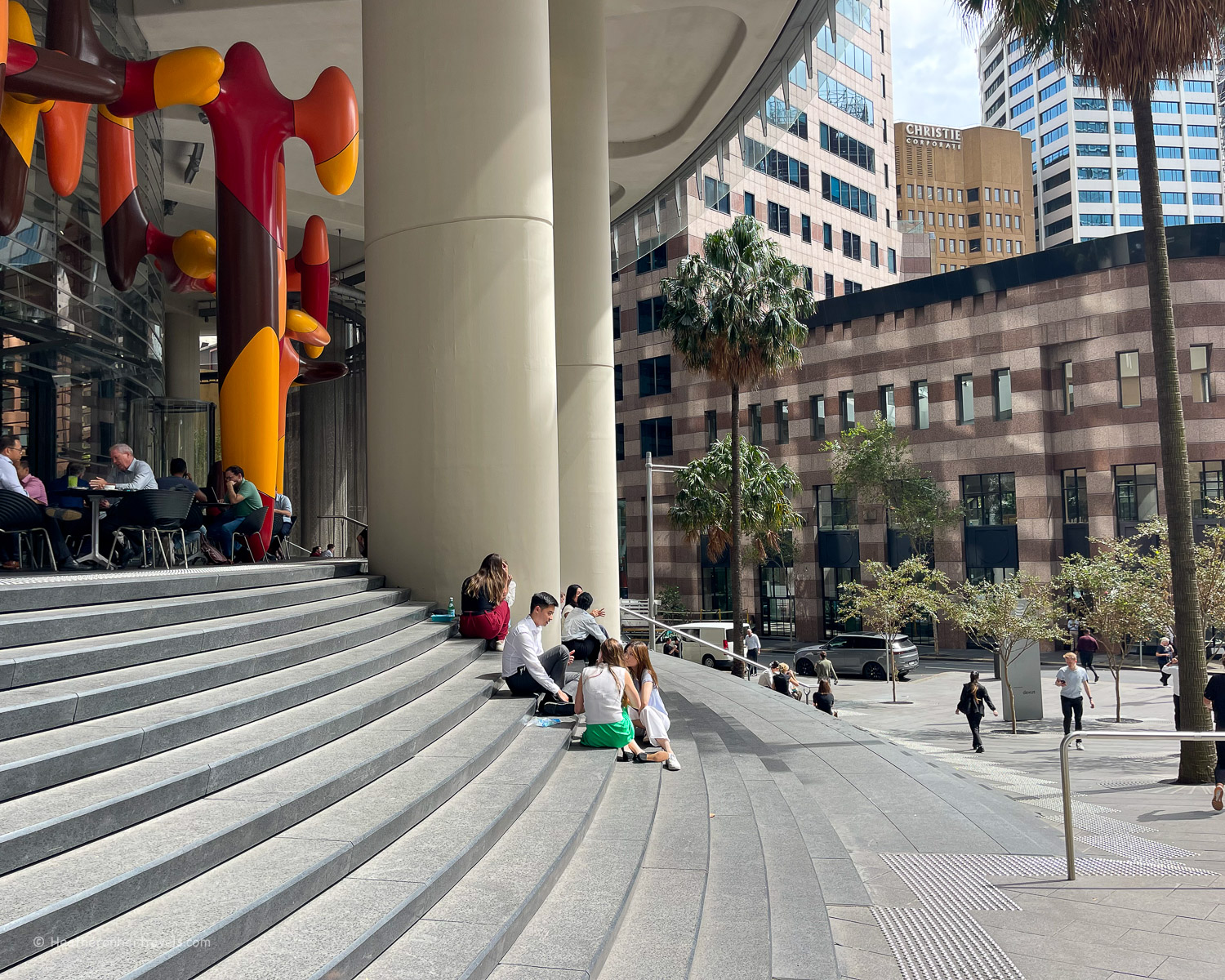
It’s fun to observe the different ages and styles of architecture, with a mixture of 19th century buildings and sleek modern office complexes.
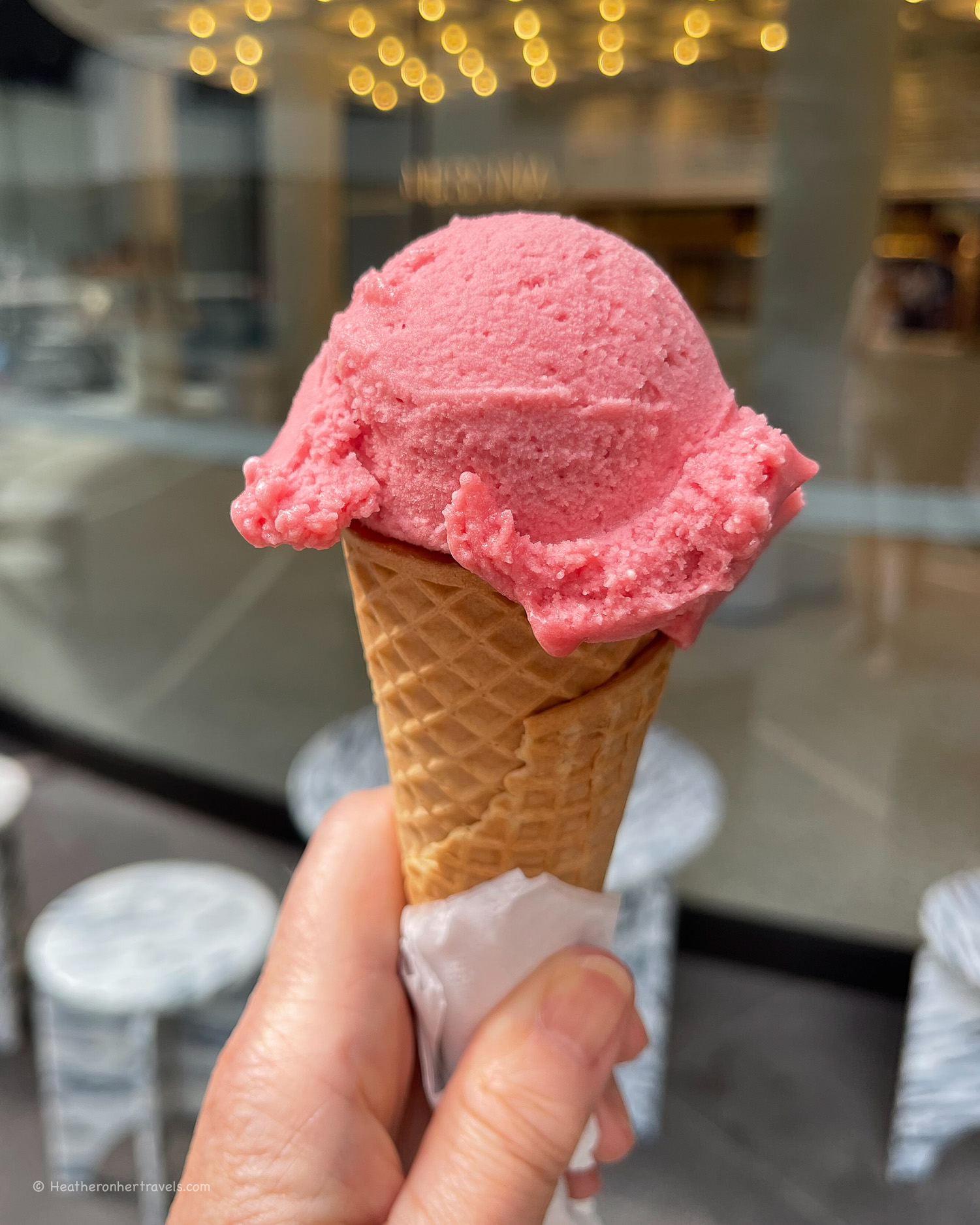
Ice Cream Stop: We highly recommend the amazing ice cream at Gelato Messina (25 Martin Place)
Aperitifs at The Opera Bar, Sydney Opera House
Finish your day with an early evening drink at The Opera Bar, set on the lower concourse of the Sydney Opera House. When the weather is fine, the atmosphere is buzzing and there’s often live music to accompany your sunset drink with a view of the Sydney Harbour Bridge.
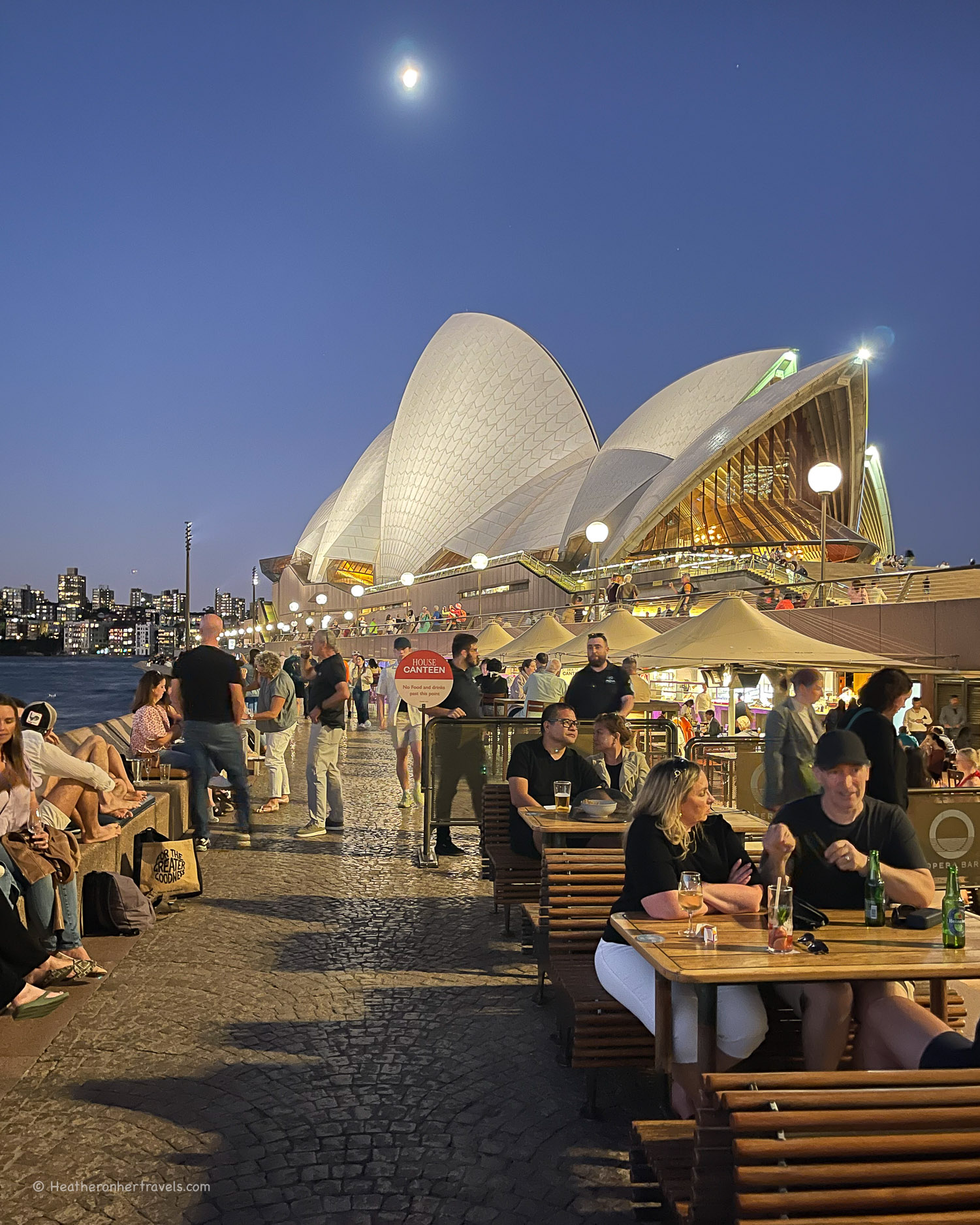
It’s a fine way to end your day in Sydney.
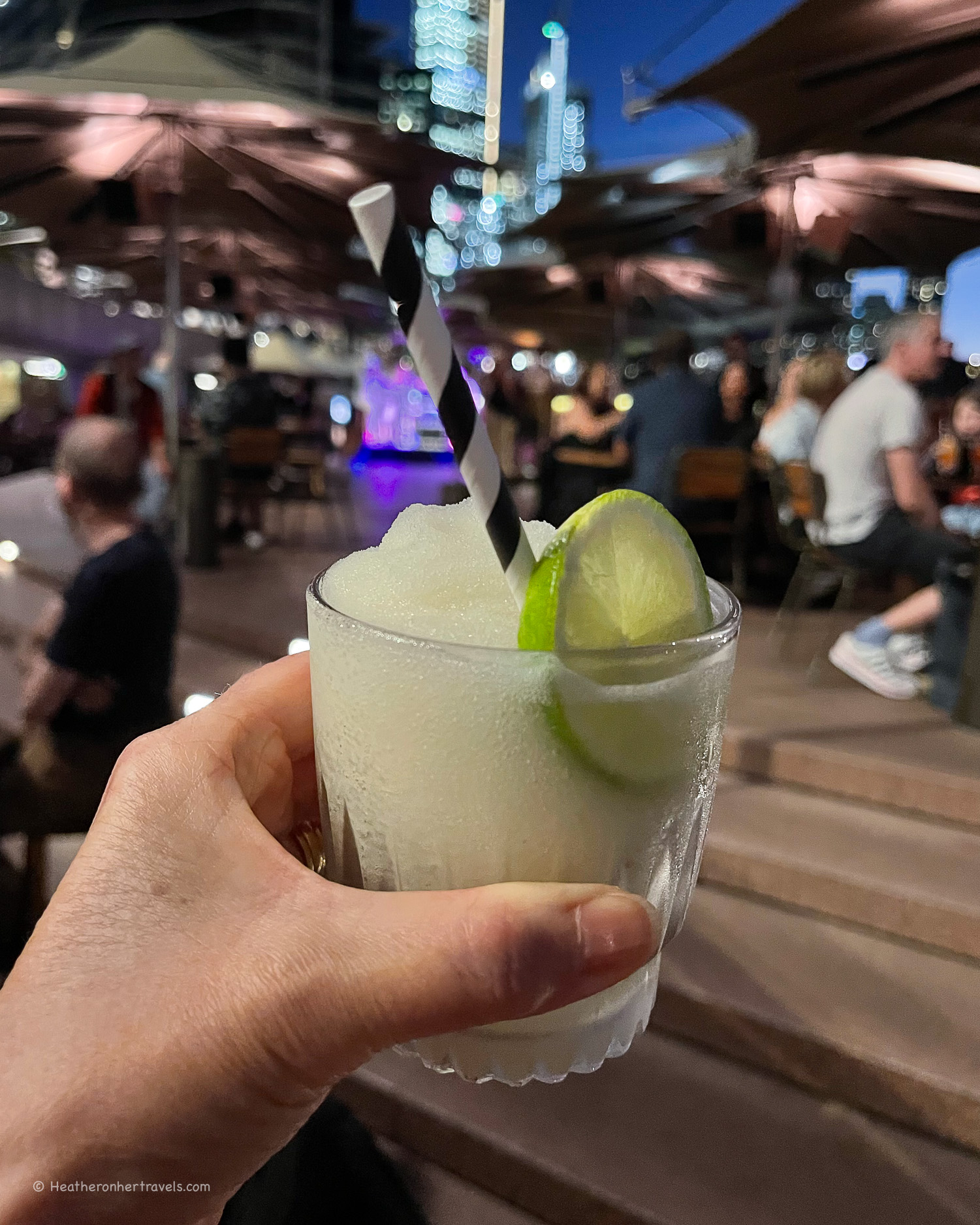
Spend a second day in Sydney?
If you have a second day in Sydney or just want to pack in some beach time, we have three different options, for excursions to Bondi Beach, Watsons Bay or Manly.
Each of these excursions warrant a full day. However if you don’t mind a packed itinerary, you could spend the morning in central Sydney visiting the Rocks, Sydney Opera House and Botanical garden. Then make a shorter excursion to spend the afternoon in Bondi Bay, Watson’s Bay or Manly.
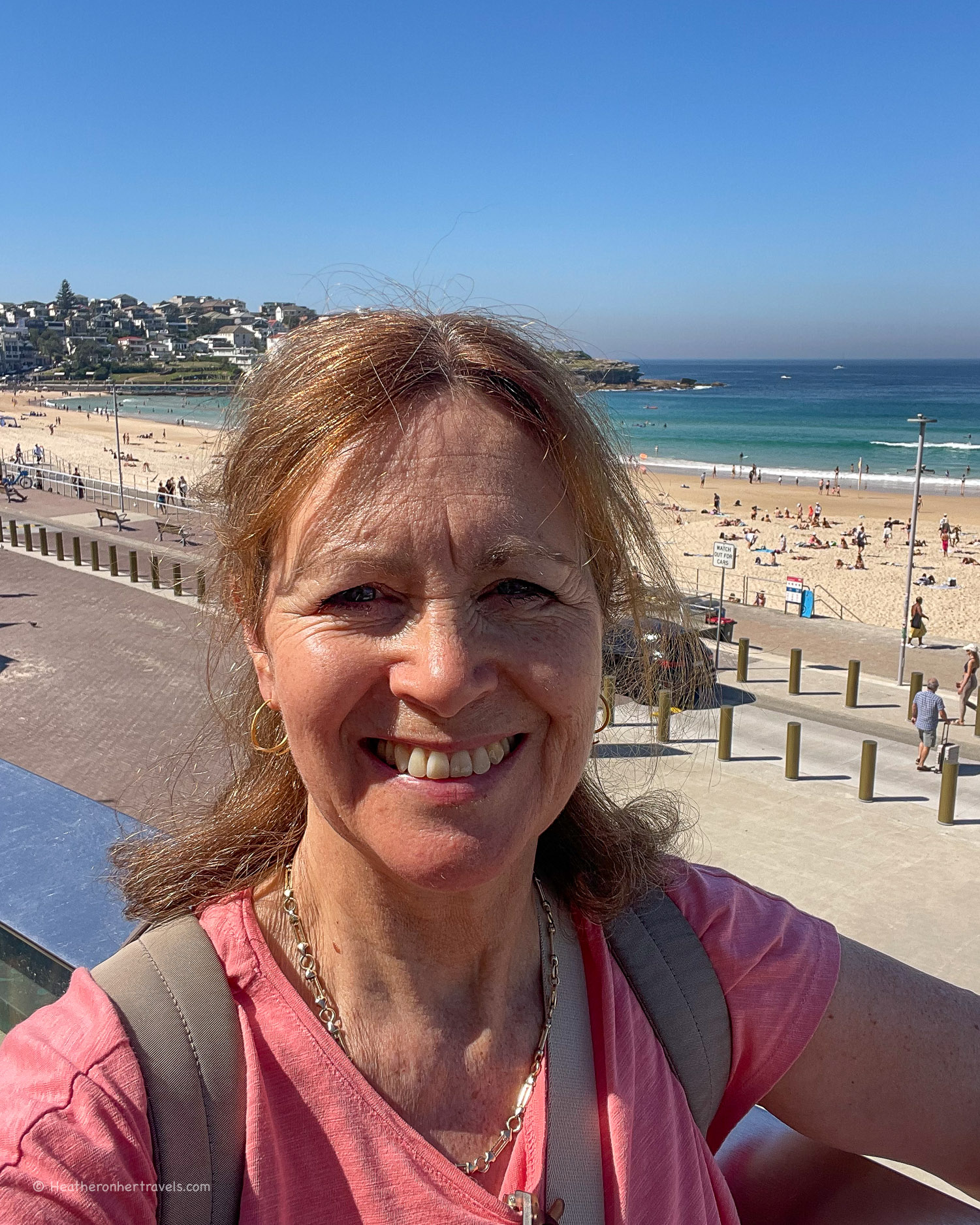
A day at Bondi Beach
Bondi is Sydney’s best known surf beach and has something for everyone. It’s a huge beach but can get very busy in summer and at weekends.
Things to do in Bondi Beach
- Chill out, sunbathe, swim and people watch on the broad expanse of sand at Bondi Beach. This is known as a surfer’s beach and you can book lessons with Lets go surfing or one of the other surf schools that operate here. If you go swimming, check the height and strength of the waves and only swim between the red and yellow flags that are surveyed by lifeguards.
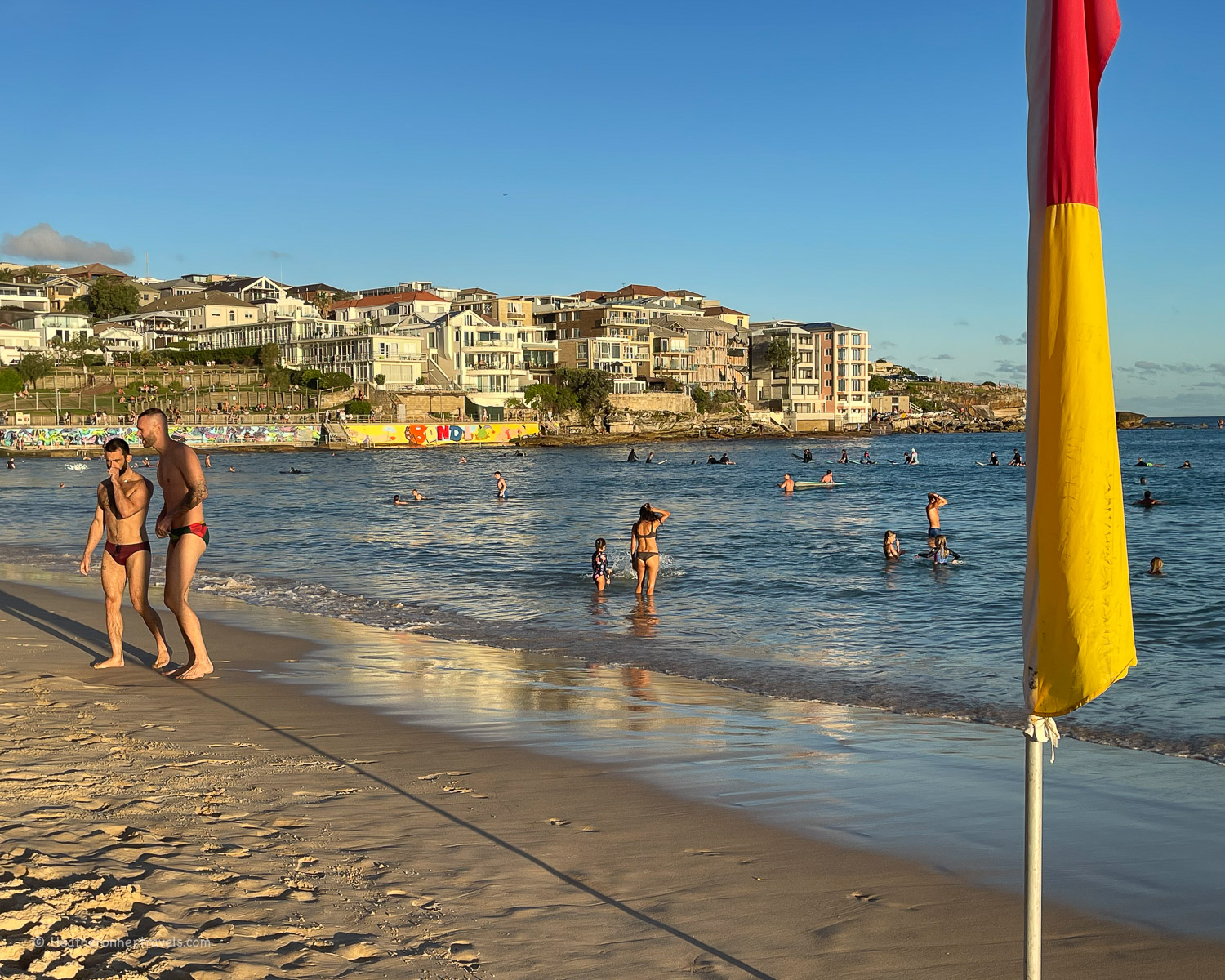
- Icebergs – Bondi’s famous ocean pool is located at the south end of the beach and is a good place to swim if you find the crashing surf a little too challenging. There’s an entrance fee (10 AUD when we were there) and a cafe inside. Upstairs is the Bistro, which is technically a member’s club but they welcome all visitors as long as you have an ID and sign in at the entrance.
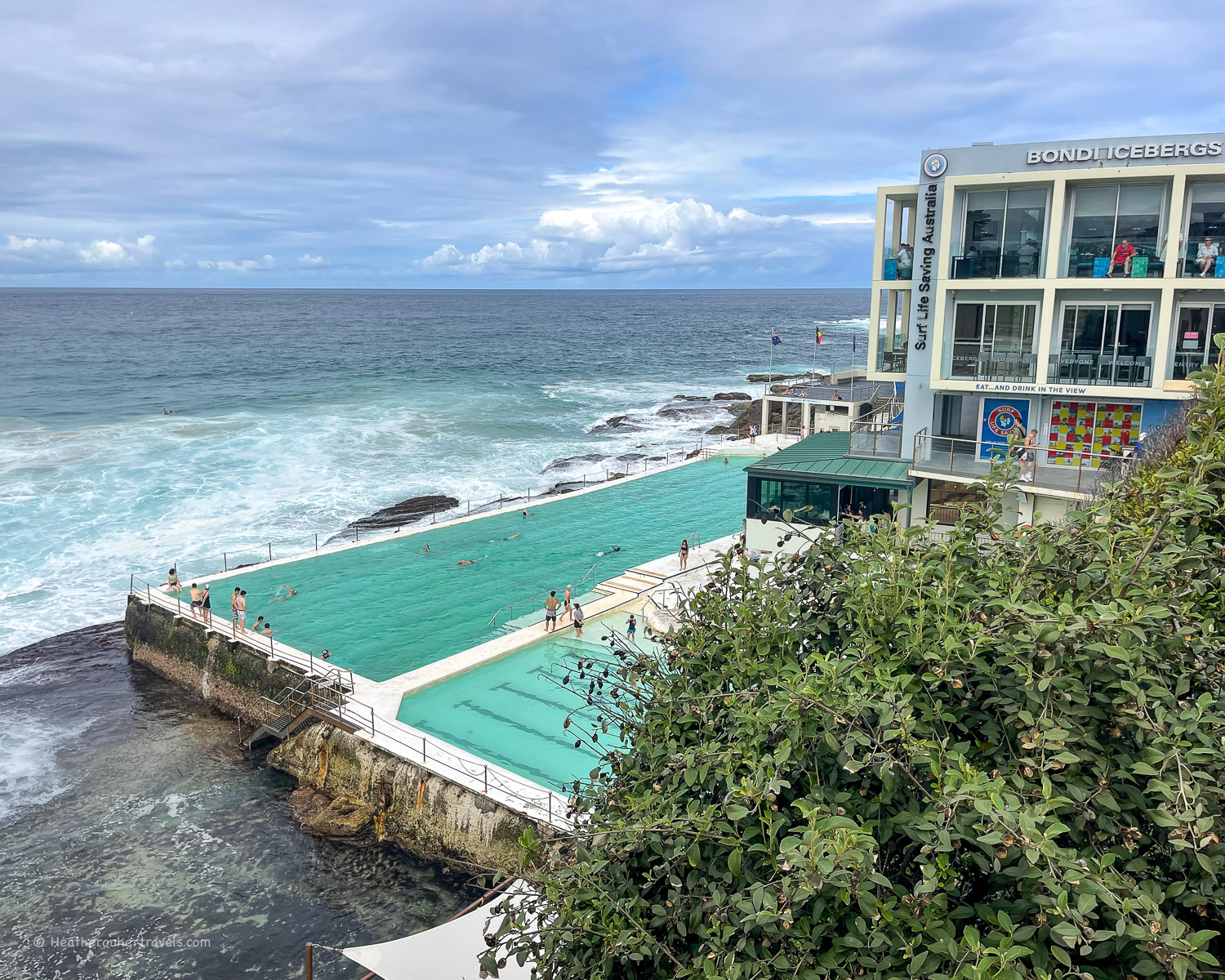
- The Pavillion – this seafront pavilion has been fully renovated as a cafe, arts and community hub. Inside, it’s a 1930s beauty with great views from the first floor balcony, which serves drinks in summer. There’s an art exhibition space, information centre and green shady courtyard, with regular music and theatre events. The two cafes Glory Days and Surfish are great to hang out in the day, with Promenade Restaurant for chilled lunches, evening drinks and dining.
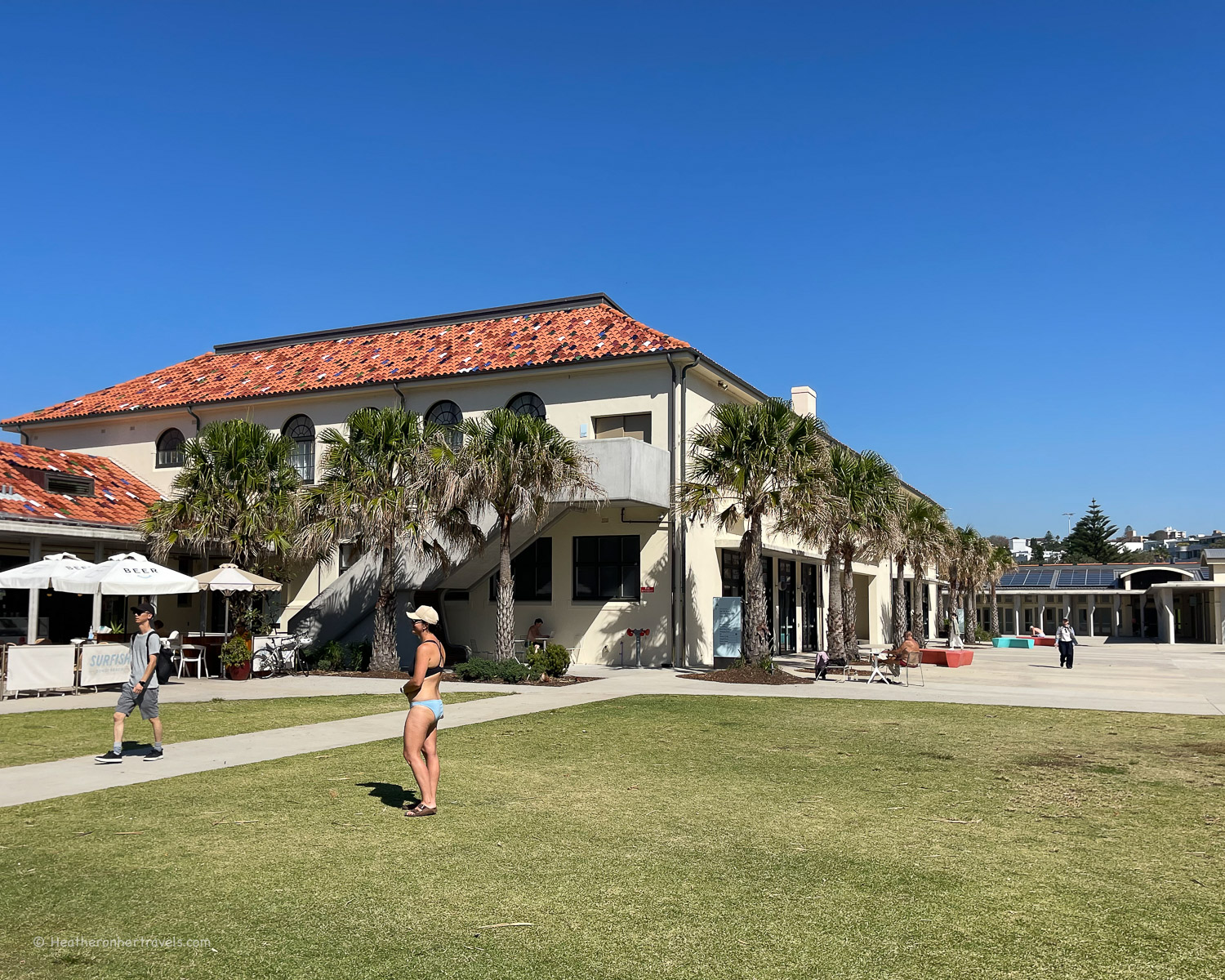
- Brunch on Bondi beach – Australians love coffee culture and brunch is an art form, nowhere more than Bondi Beach. The cafes in front of the pavilion (Glory Days and Surfish) are great for daytime coffee and snacks with a sea view. But if you want to brunch like a local, head to Speedo’s or The Depot, both at the north end of the beach. There are numerous other great places that are further from the beach, such as Blackwoods, but they are set in more residential areas.
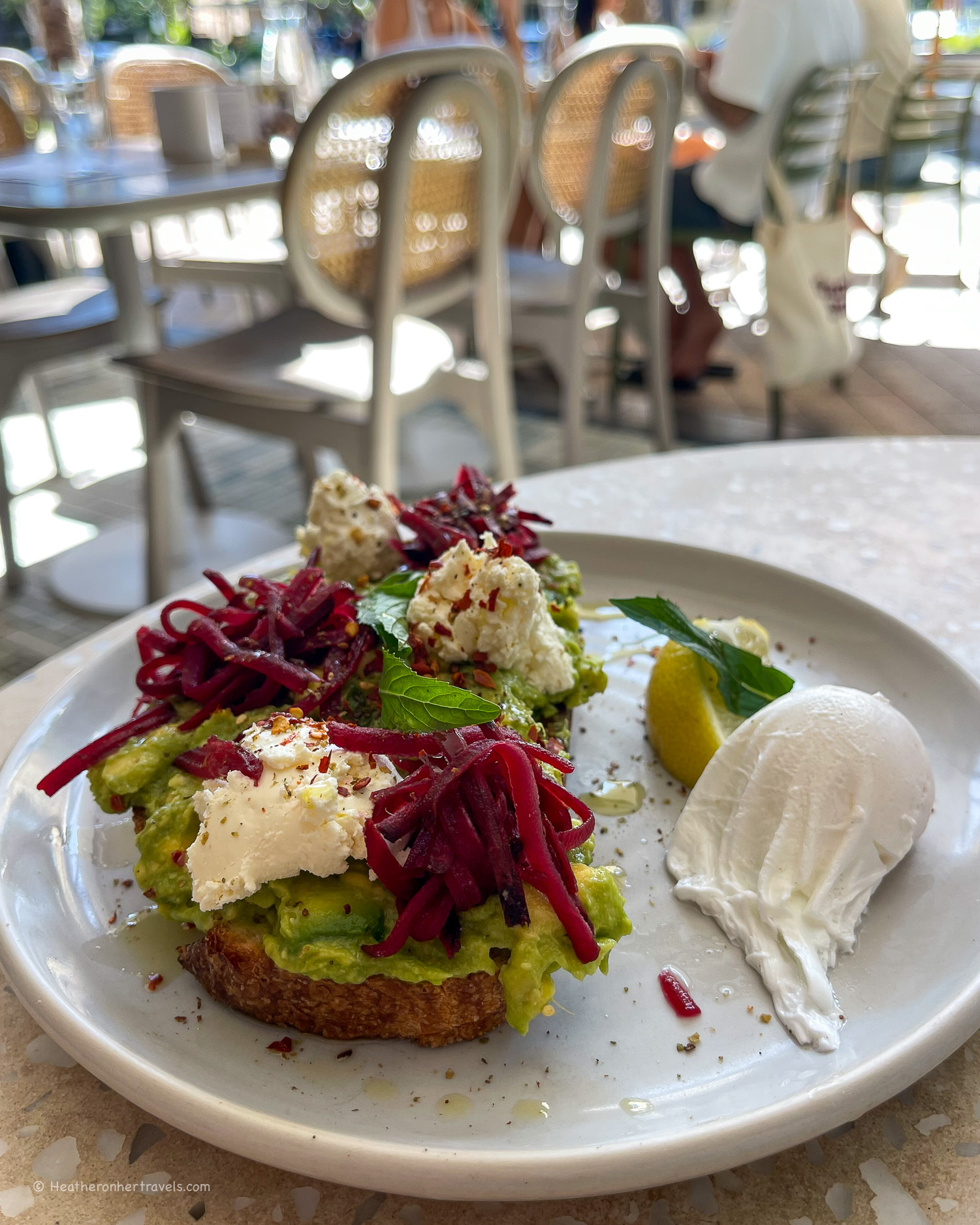
- Check out the murals along the beach – Between Bondi Pavilion and the Skate Park, the wall backing the beach promenade has a series of murals, many with a beach theme.
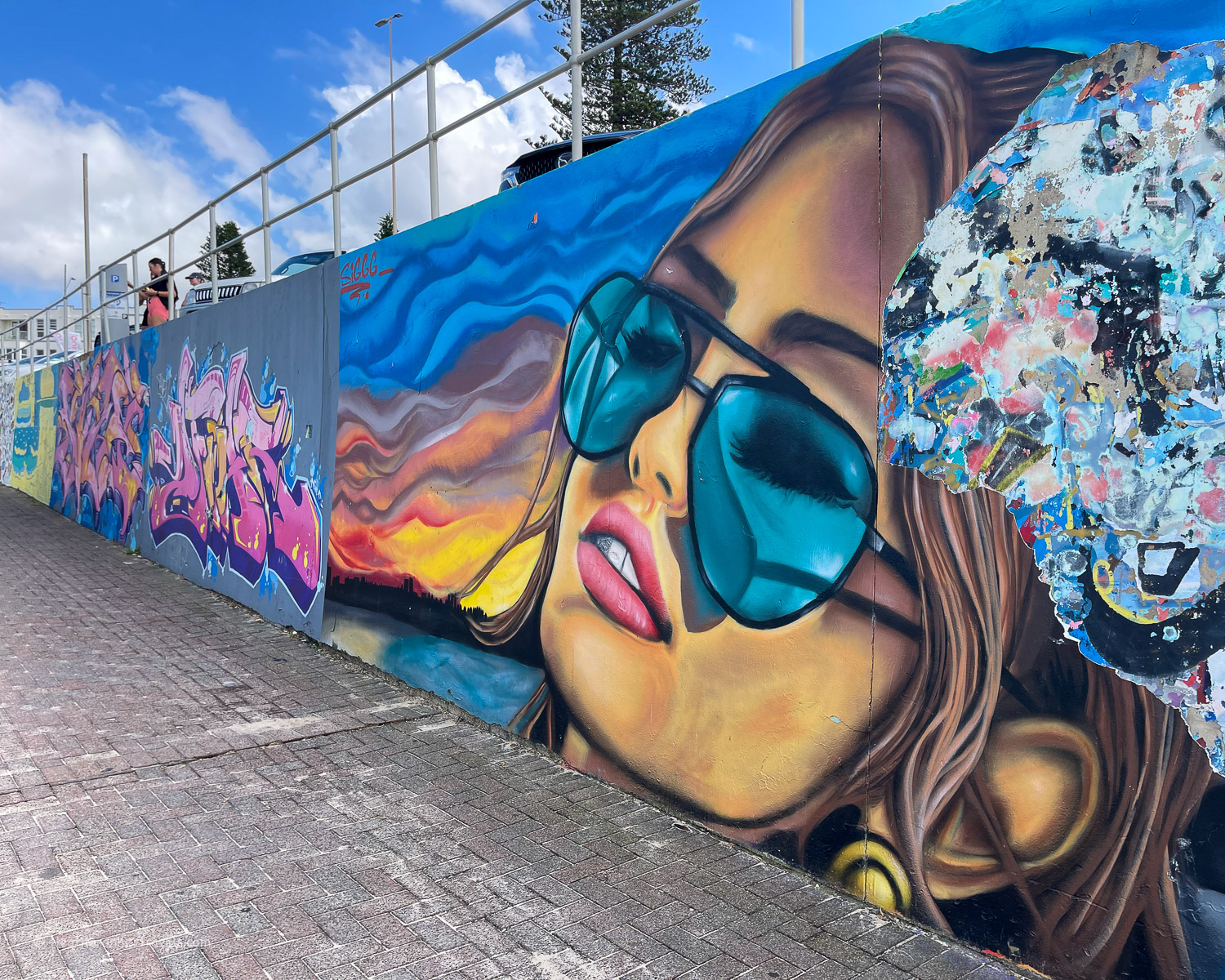
- Shopping around Campbell Parade – Many of the top swimwear and fashion brands have branches at Bondi Beach, and you’ll find them along Campbell Parade, Gould Street and Hall Street.
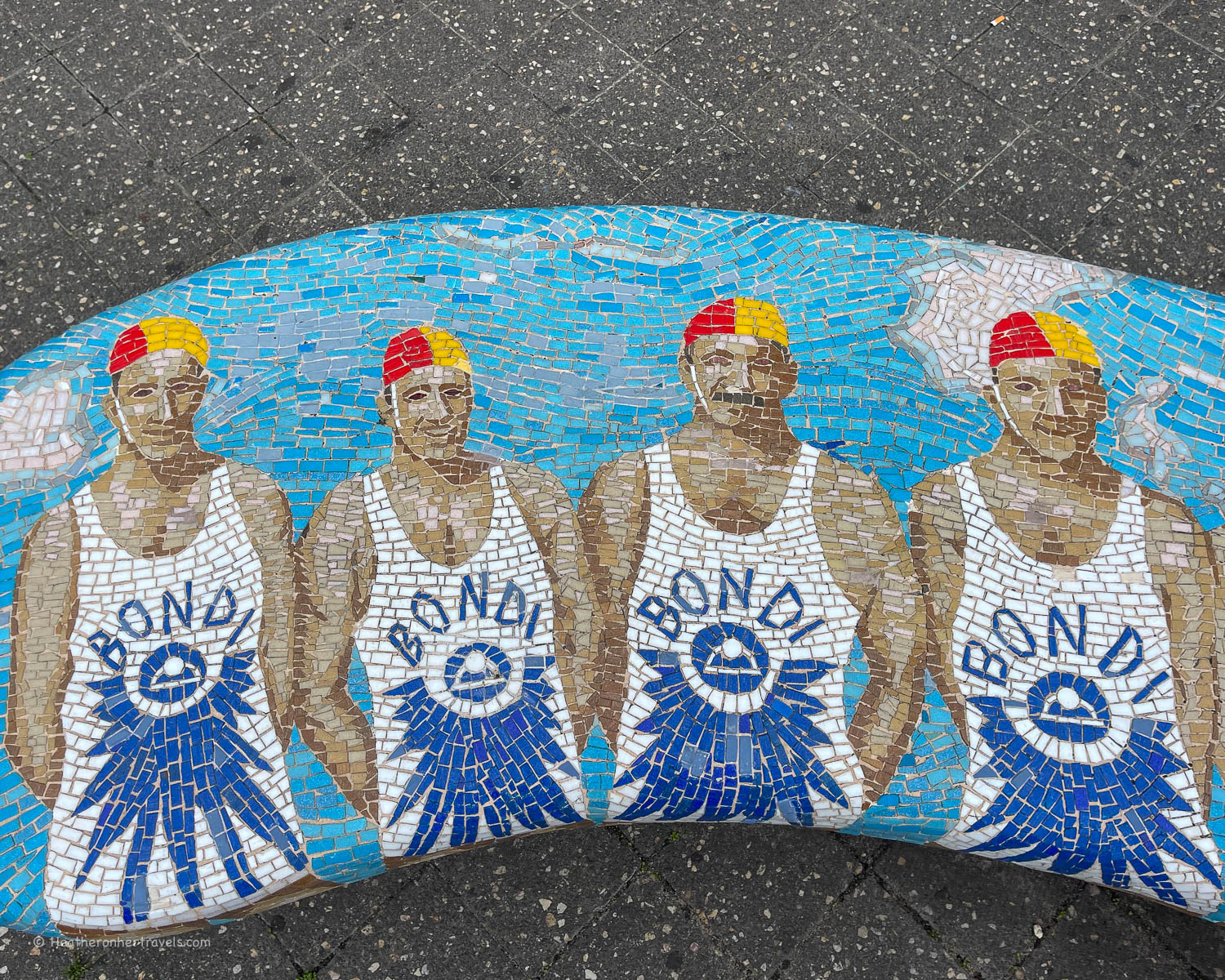
- Hang out at the Bondi weekend market – it’s held at Bondi Beach Public School on Campbell Parade on Saturday and Sunday. Saturday is for food stalls and farmer’s market, Sunday for crafts and vintage.
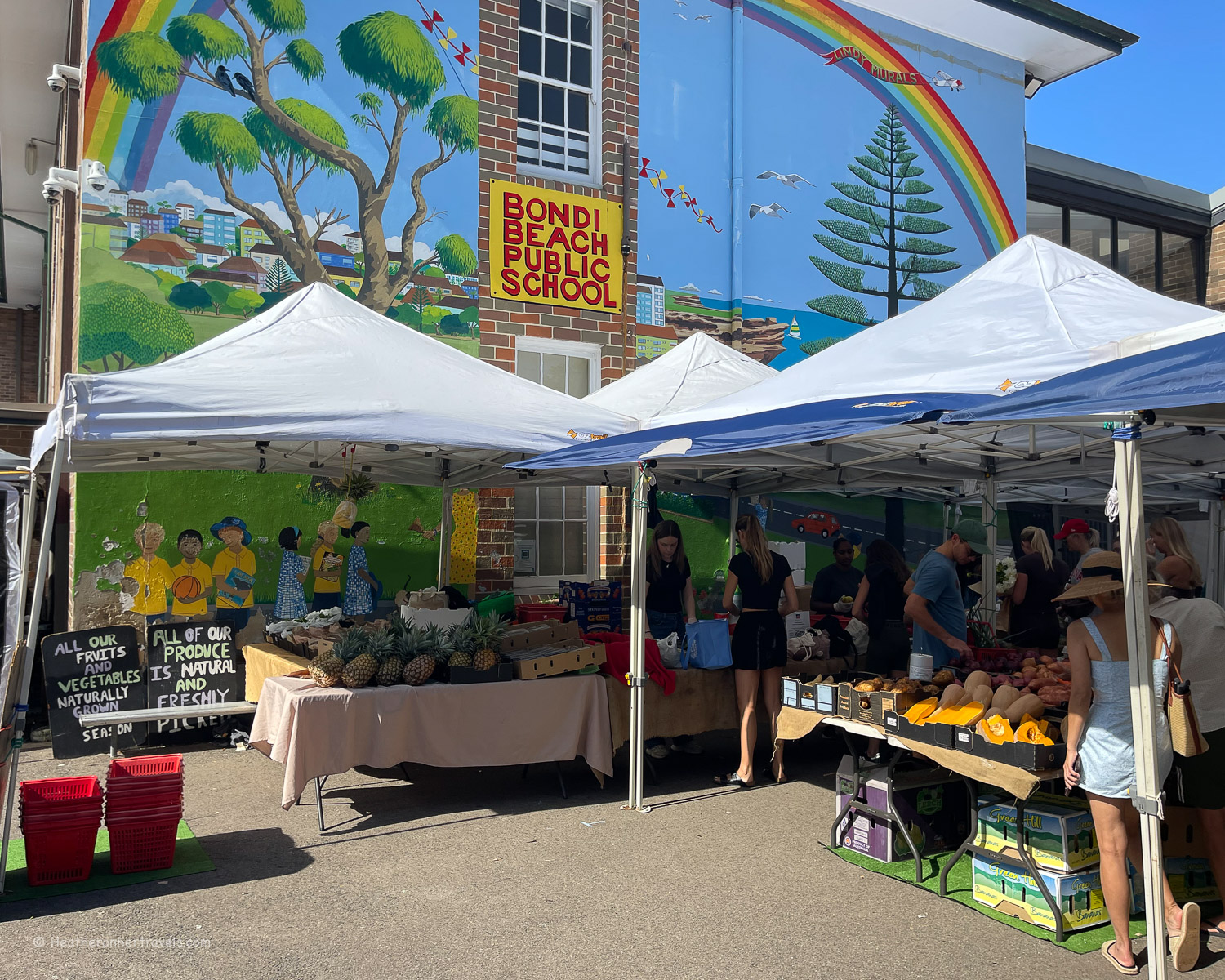
- Walk some of the Bondi to Coogee coastal trail – Even if you only have an hour or two to spare, you could make it as far as Tamarama beach or Bronte beach where there’s a lovely ocean pool.
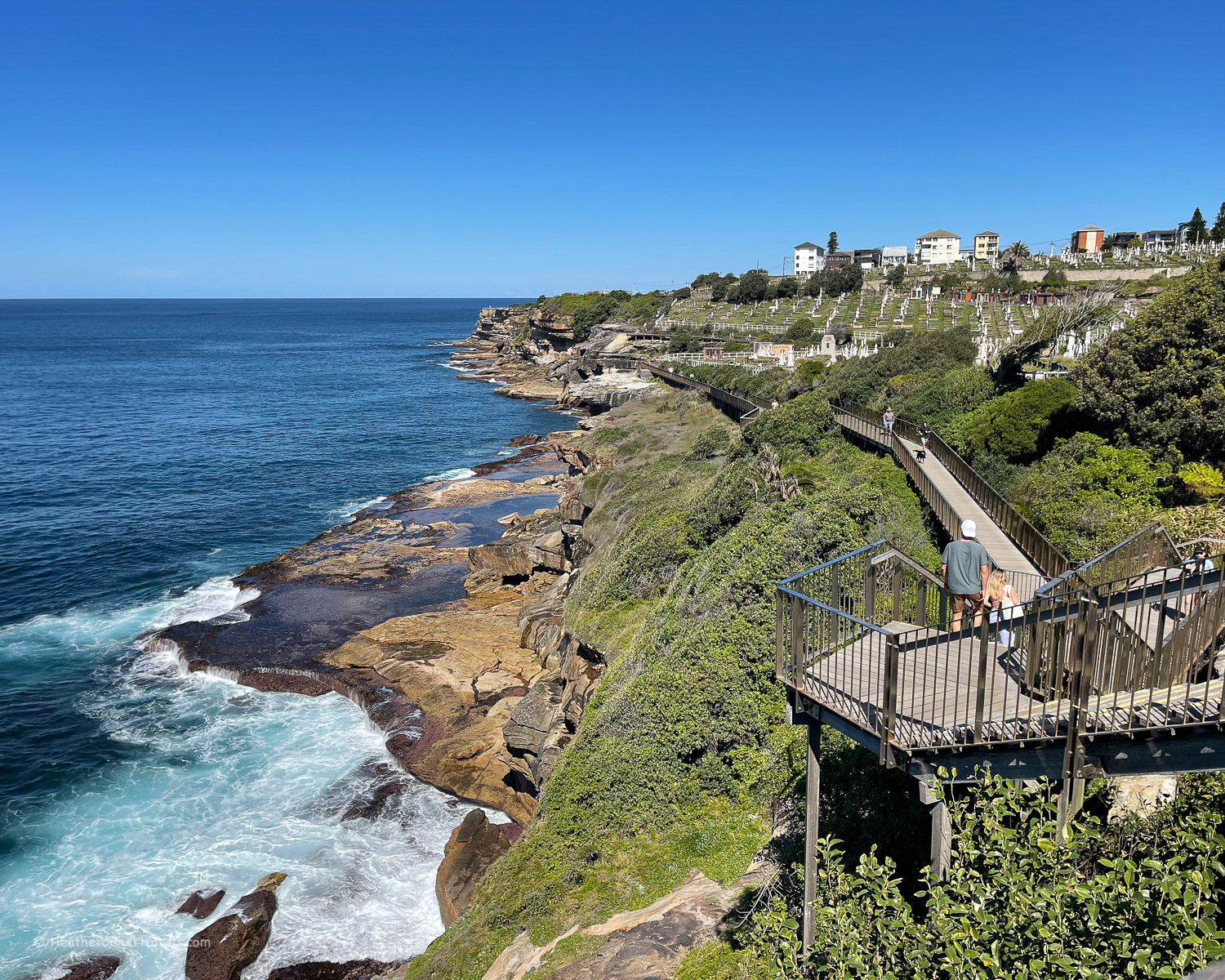
Getting to Bondi Beach
Bus: From Circular Quay or Martin Place take the 333 bus all the way to Bondi Beach. Journey time around 40 mins.
Train + Bus: From the centre take the train to Bondi Junction. From Bondi Junction bus station (right above the rail station) take the 333 or 380 bus to Bondi Beach. Journey time 45-60 mins.
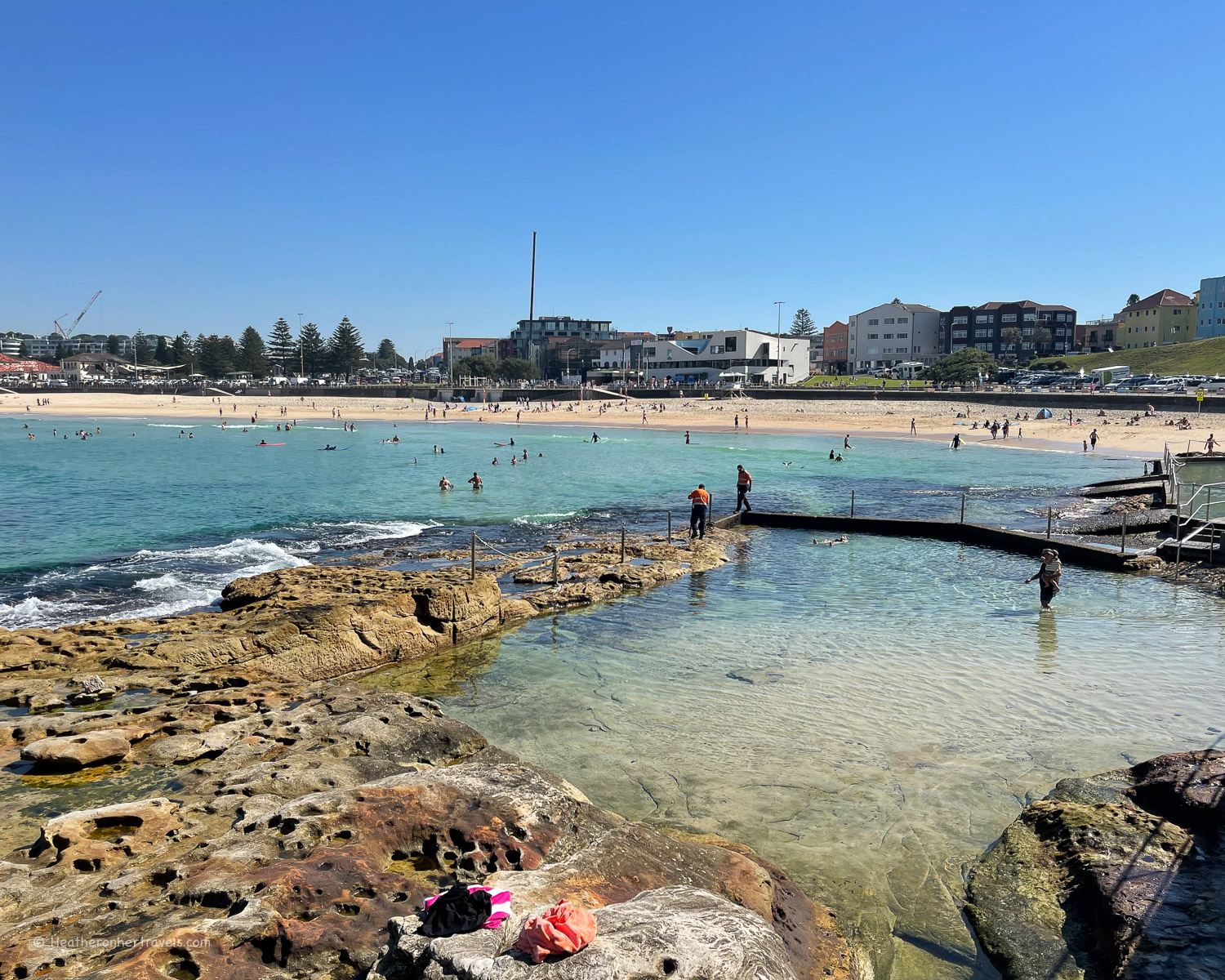
Refreshment stops in Bondi Beach
There are numerous good options – these were our favourites.
Drinks on the beach – Surfish or Glory Days
Brunch – Speedos or The Depot
Dinner – Promenade, North Bondi Fish or Rocker
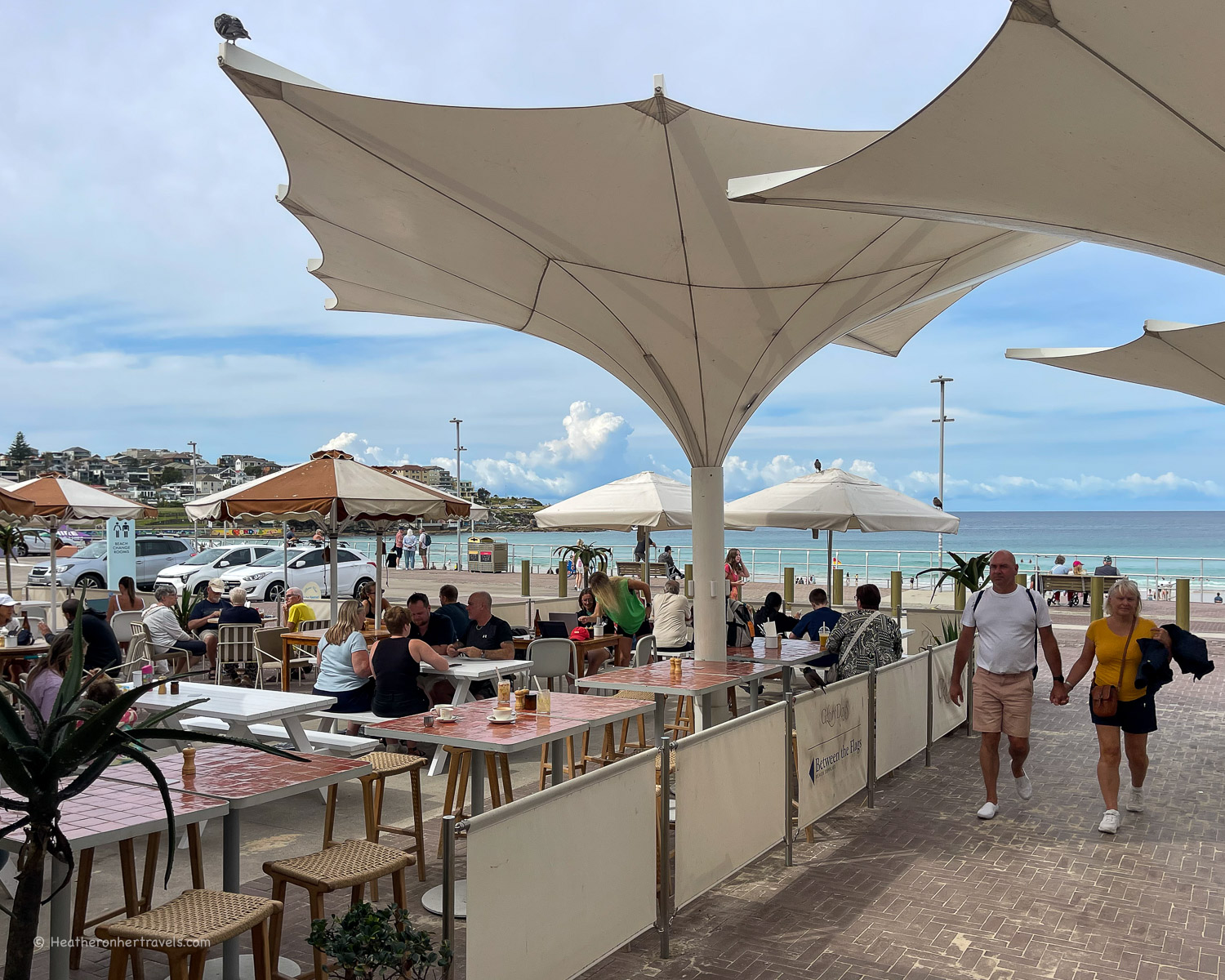
A day in Manly
Manly is another popular surf beach and you get the bonus of a ferry ride to get there, seeing Sydney Harbour from the water on the way.
Things to do around Manly
- From Manly wharf where the ferry stops, follow the crowds along The Corso, a pedestrianised boulevard, to reach Manly’s main surfing beach.
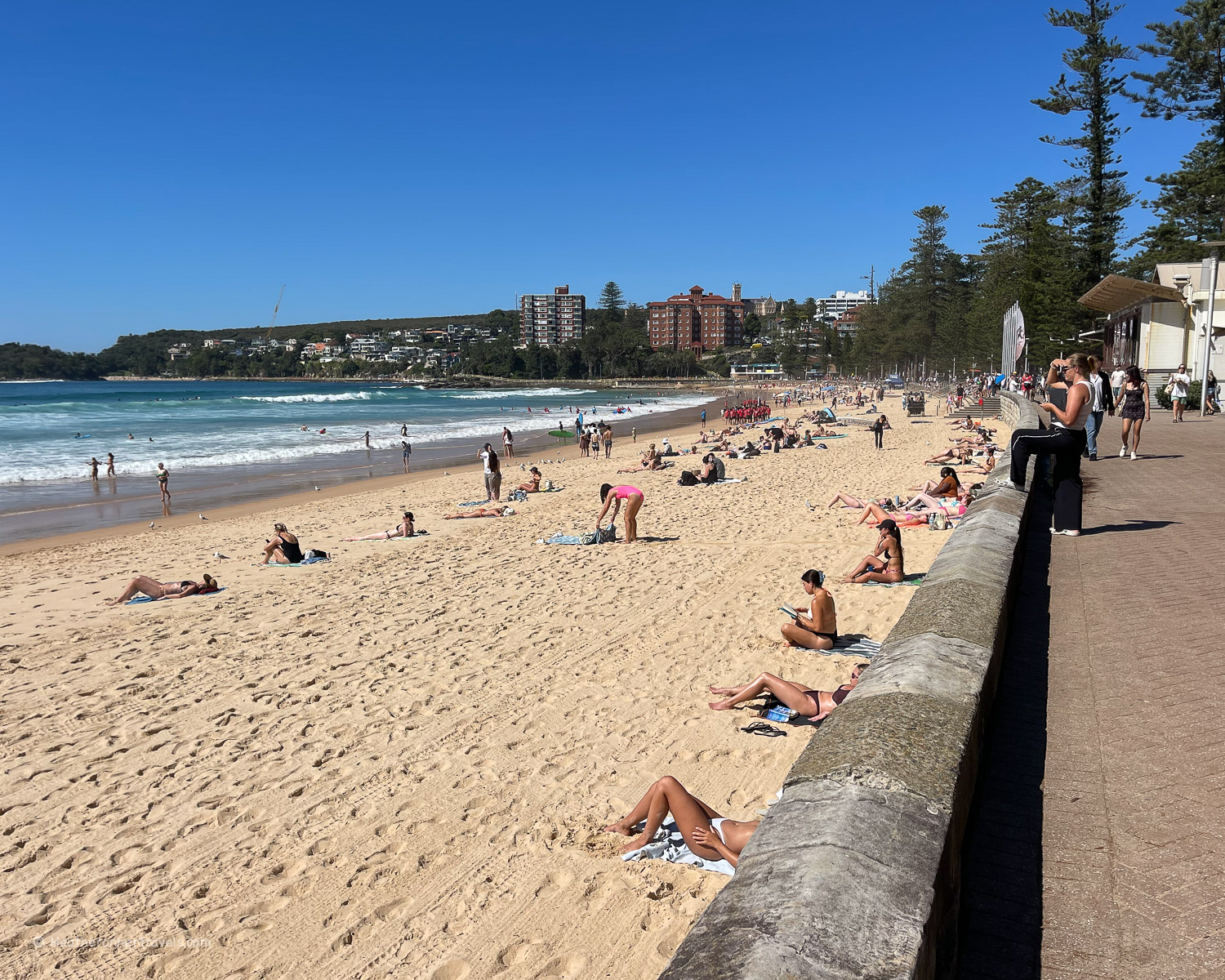
- Manly beach is known for its rolling surf and you can book a lesson with Manly surf school. Due to the strong waves and rip currents, you should only swim between the red and yellow flags which are patrolled by lifeguards.
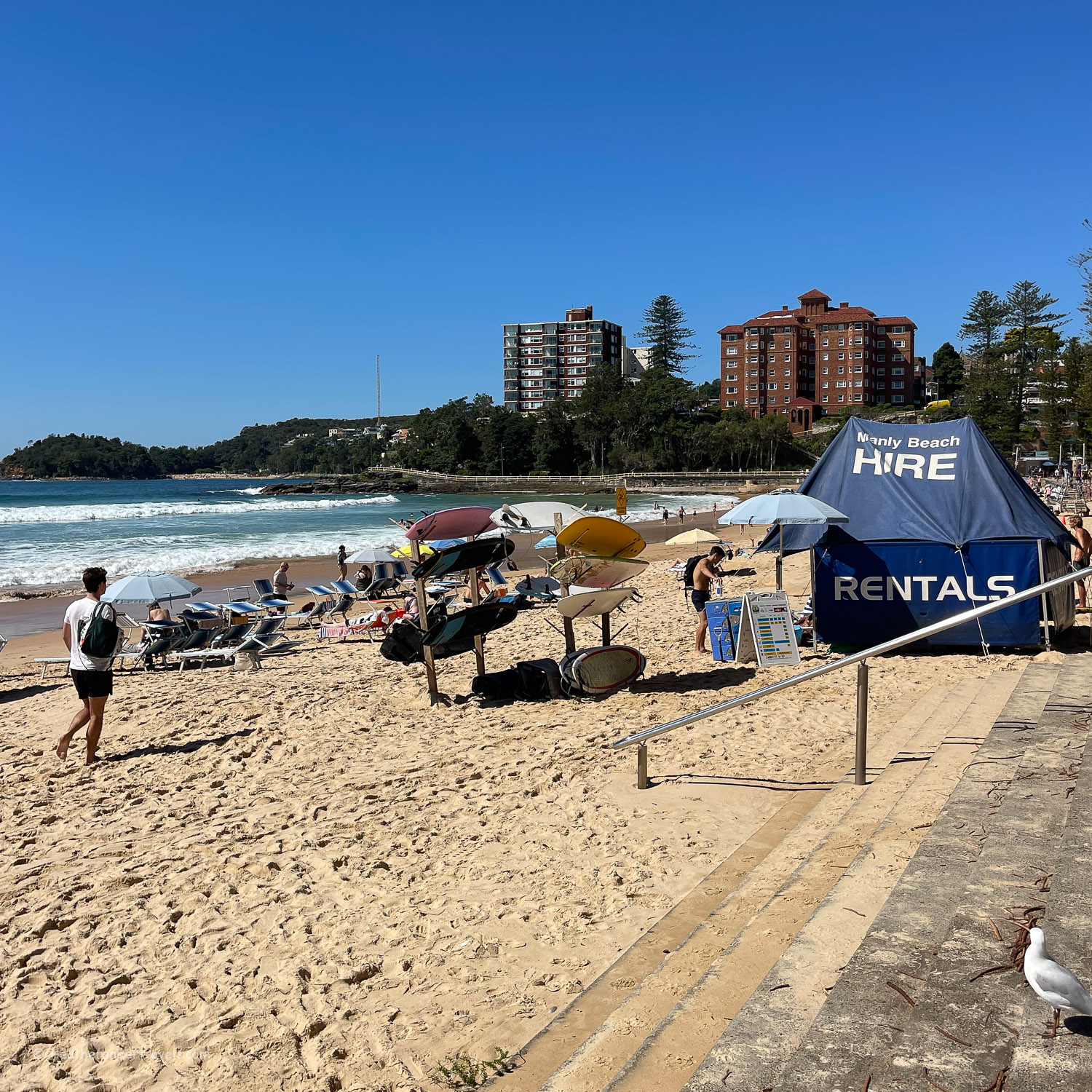
- To find calmer waters, walk along Marine Parade at the south of the beach, past the Cabbage Tree Bay Aquatic reserve which is a good spot for snorkelling. A little further is the Fairy Bower sea pool where you could take a dip, then continue to Shelly Beach, which is a more sheltered beach for swimming.
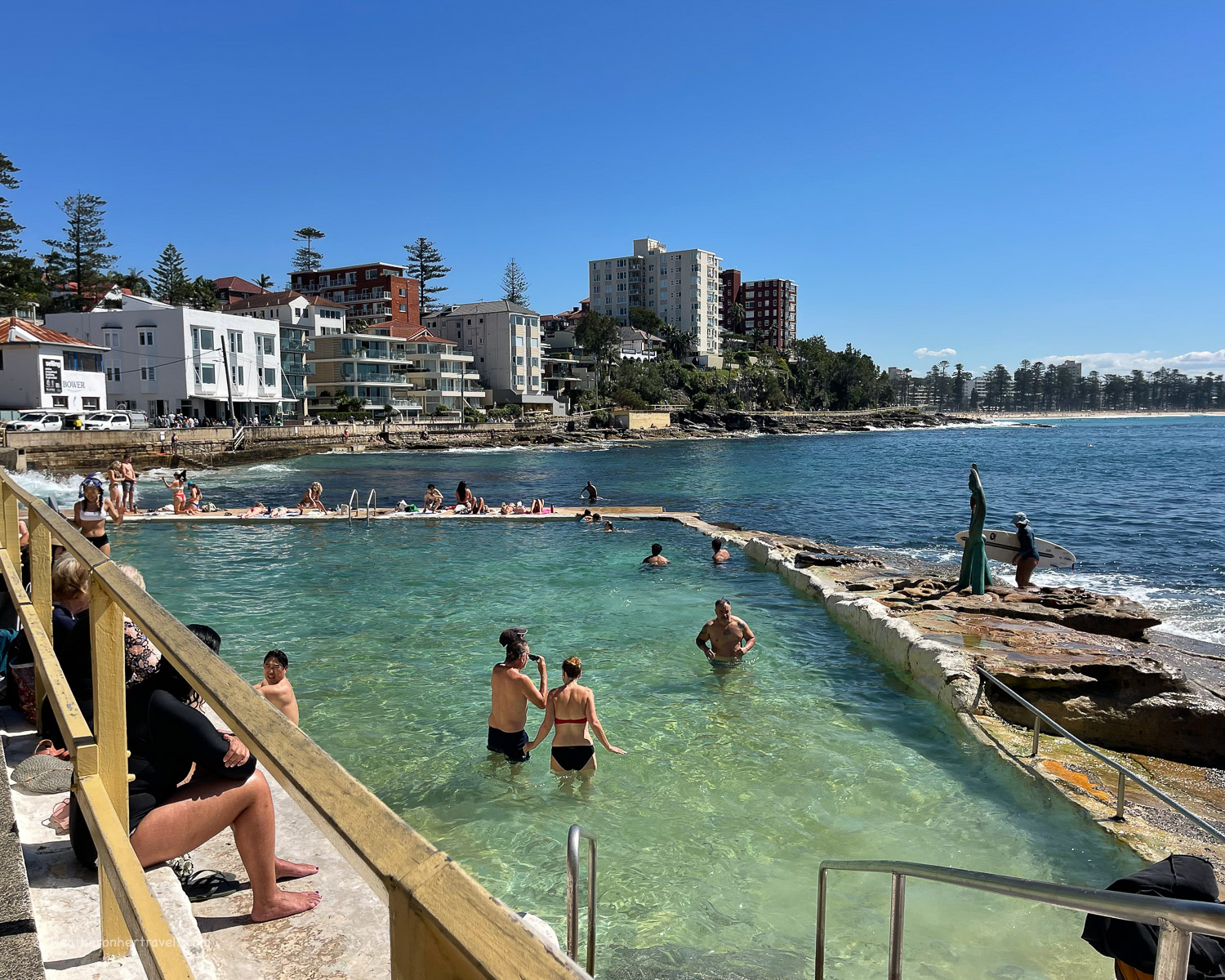
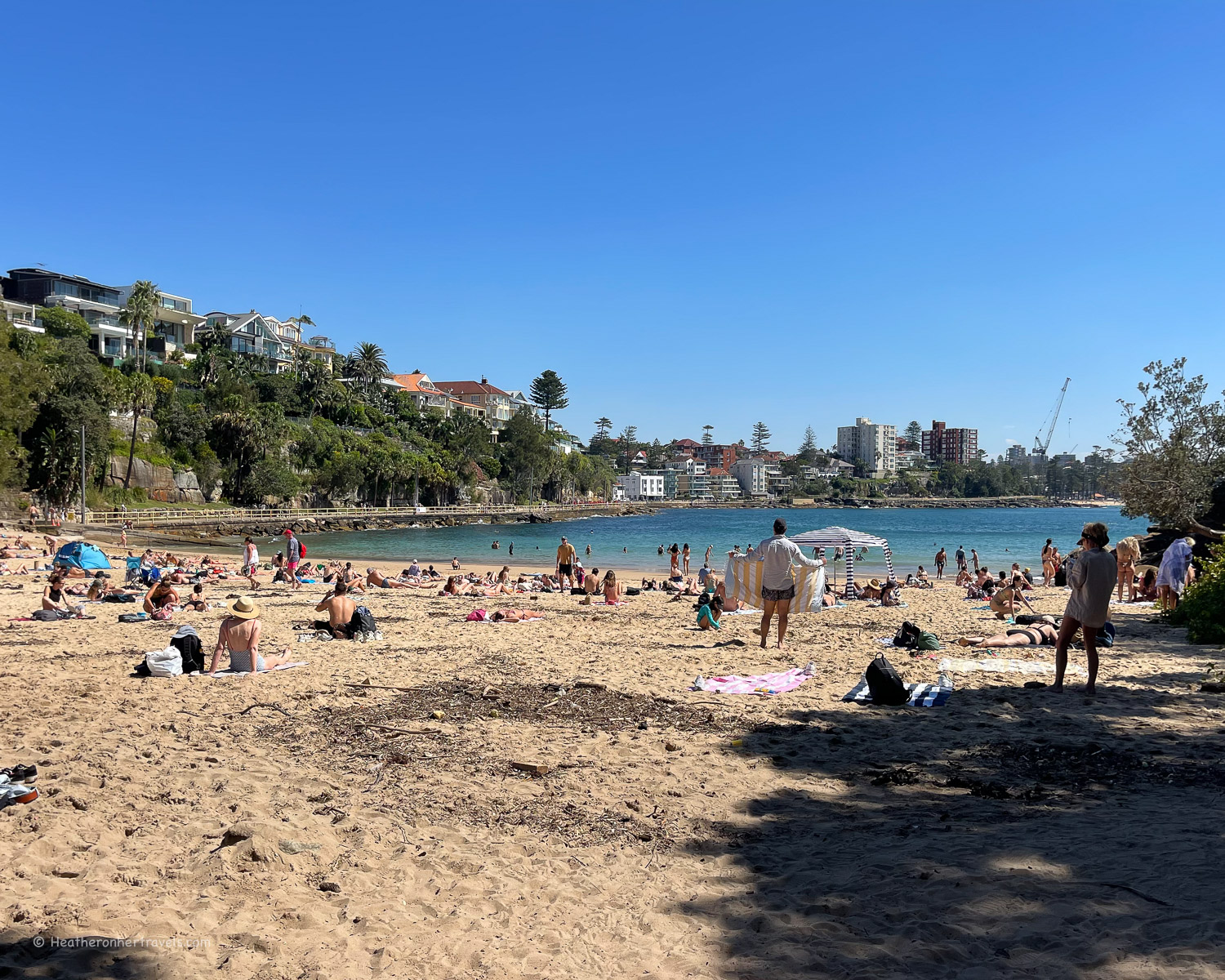
- Walk up onto the headland above Shelly beach, for a bird’s eye view of the surfers hanging offshore ready to catch the waves.
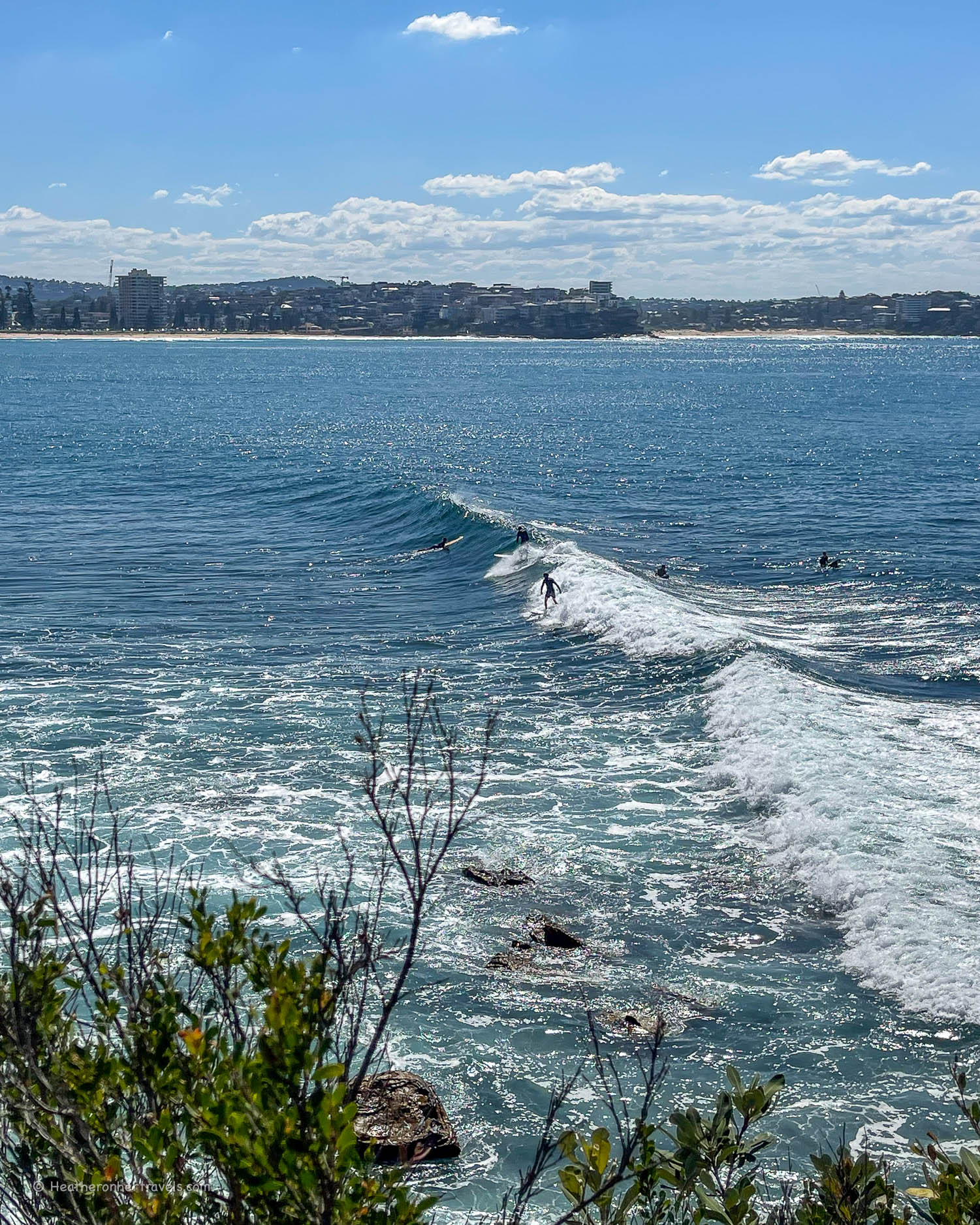
- For a longer circular walk continue from the Shelly beach car park on the Shelly Beach to Barrack Precinct walk. The trail takes you over the headland, past Old Quarry Swamp and we ended up at Collin’s beach. From here, follow the coast path around to Little Manly beach and return to the Manly ferry wharf. This walk takes 2-3 hours.
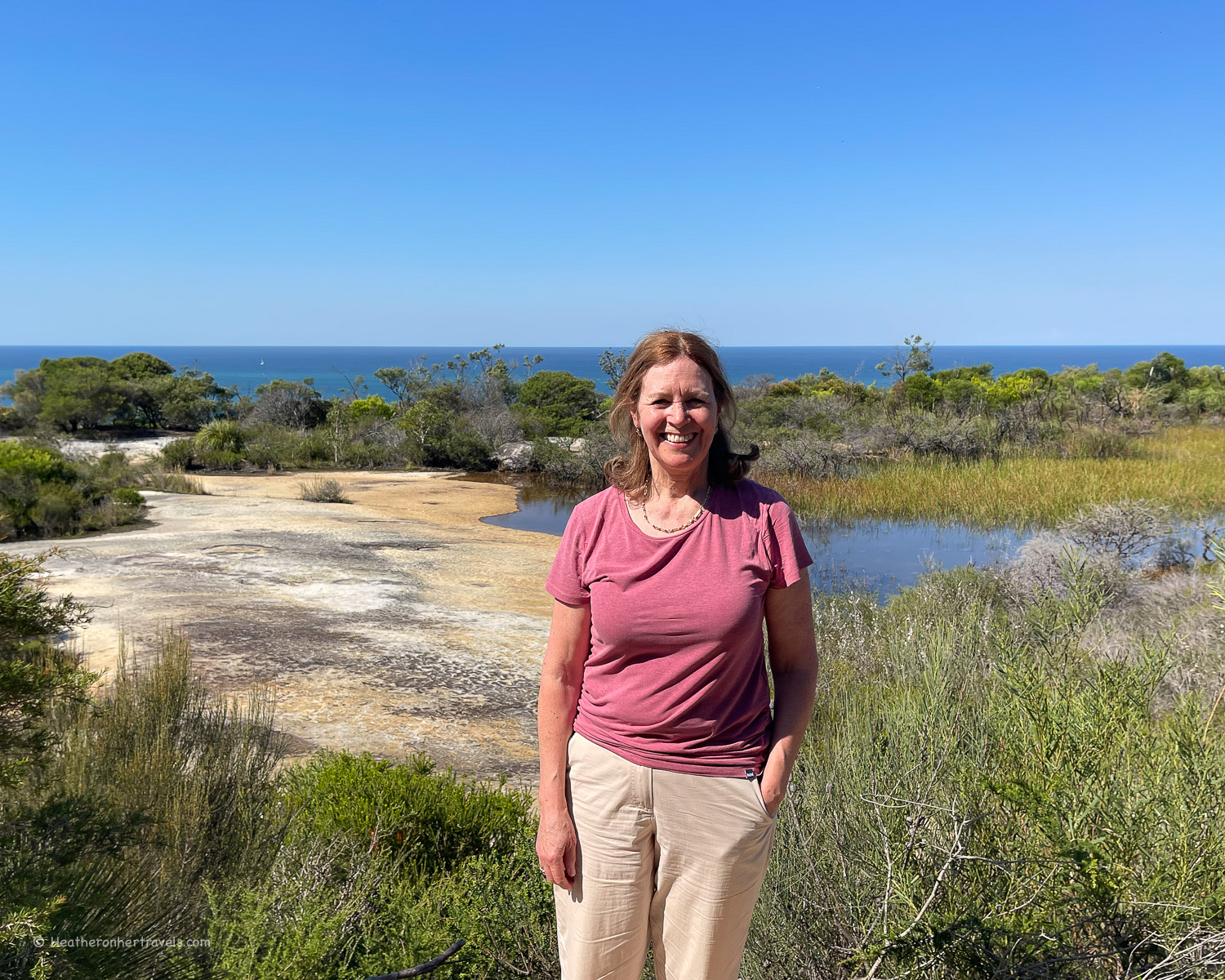
- With a whole day to spend, you could make the Manly Cove to Spit Bridge coastal walk, passing numerous small beaches and rocky swimming places. From Spit bridge, return by bus to Manly, or catch an Uber back to central Sydney.
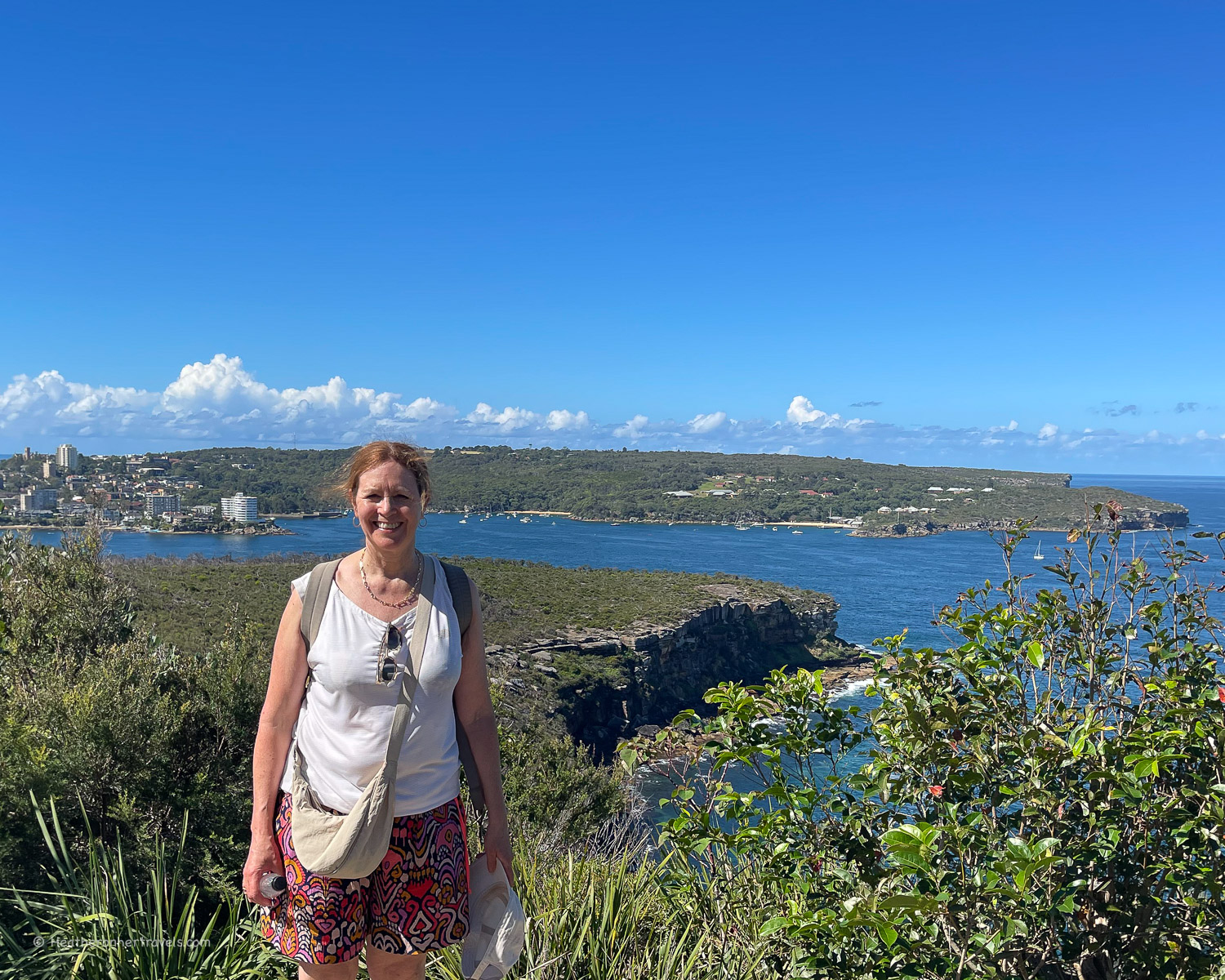
- If you just have an hour to spare you could walk from Manly ferry wharf and Manly Cove to the next bays of Delwood beach and Fairwood beach for some swimming off the rocks. Being on the Sydney Bay side, you don’t get the crashing surf of the main Manly beach.
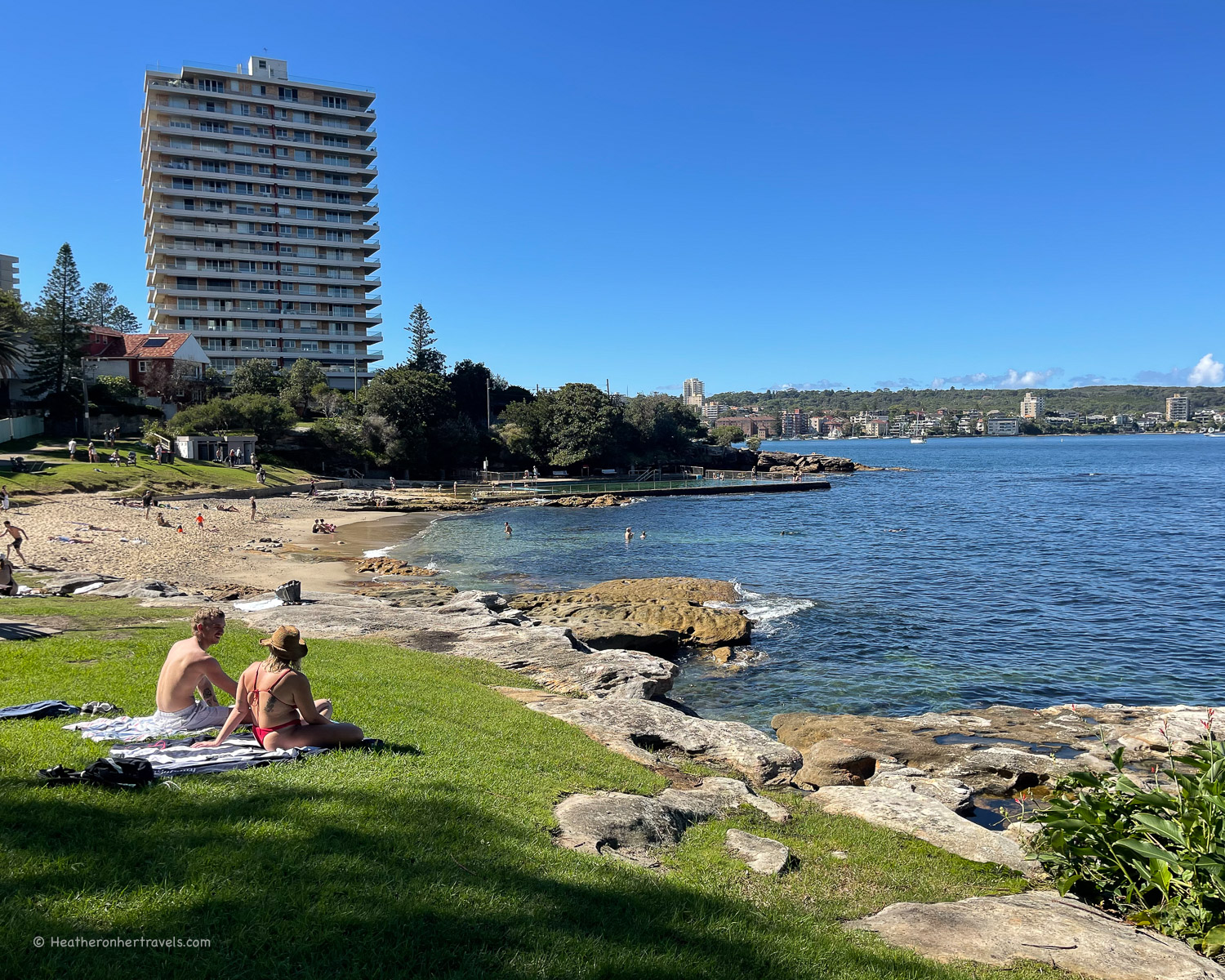
Getting to Manly
From Circular Quay take the ferry to Manly. Ferries normally run at least 3 times an hour. Journey time 25 mins
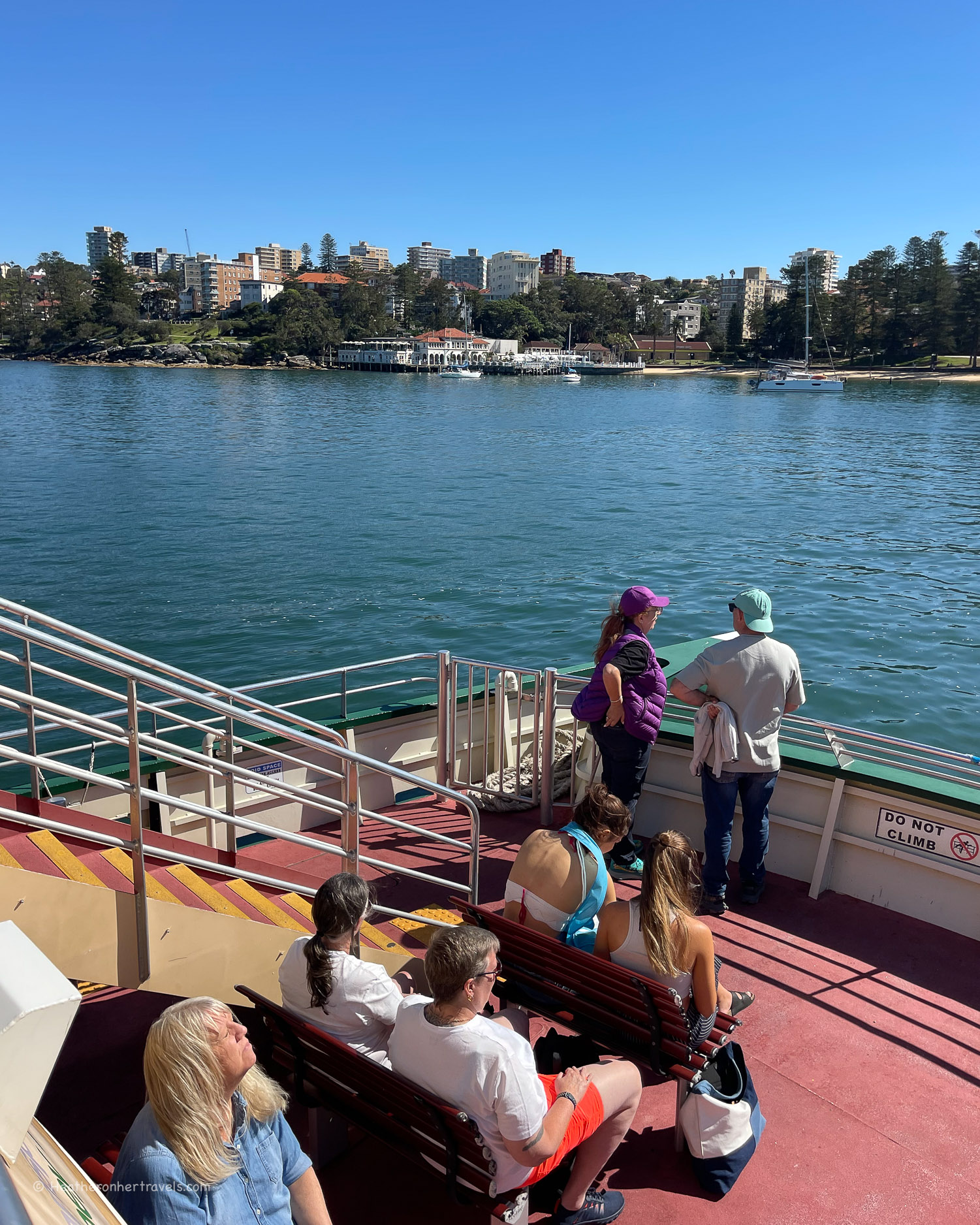
Refreshment stops in Manly

The Bower near Shelly beach – coffee and brunch with a view of the ocean
The Boathouse on Shelly Beach – brunch and lunch on the beach

A day at Watsons Bay
Watsons Bay has some nice beach areas, but it’s mainly known as a relaxing place to eat fish and chips and take some short walks up onto the headland at the mouth of Sydney Bay.
Things to do around Watsons Bay
- Eat fish & chips at Doyles. They have a busy sit down restaurant, but we preferred to order from the takeaway counter next to the ferry pier and use the seating area behind it, which offers the same view over the water. Tip: If you don’t like too much fried food, they have plenty of healthier seafood options.
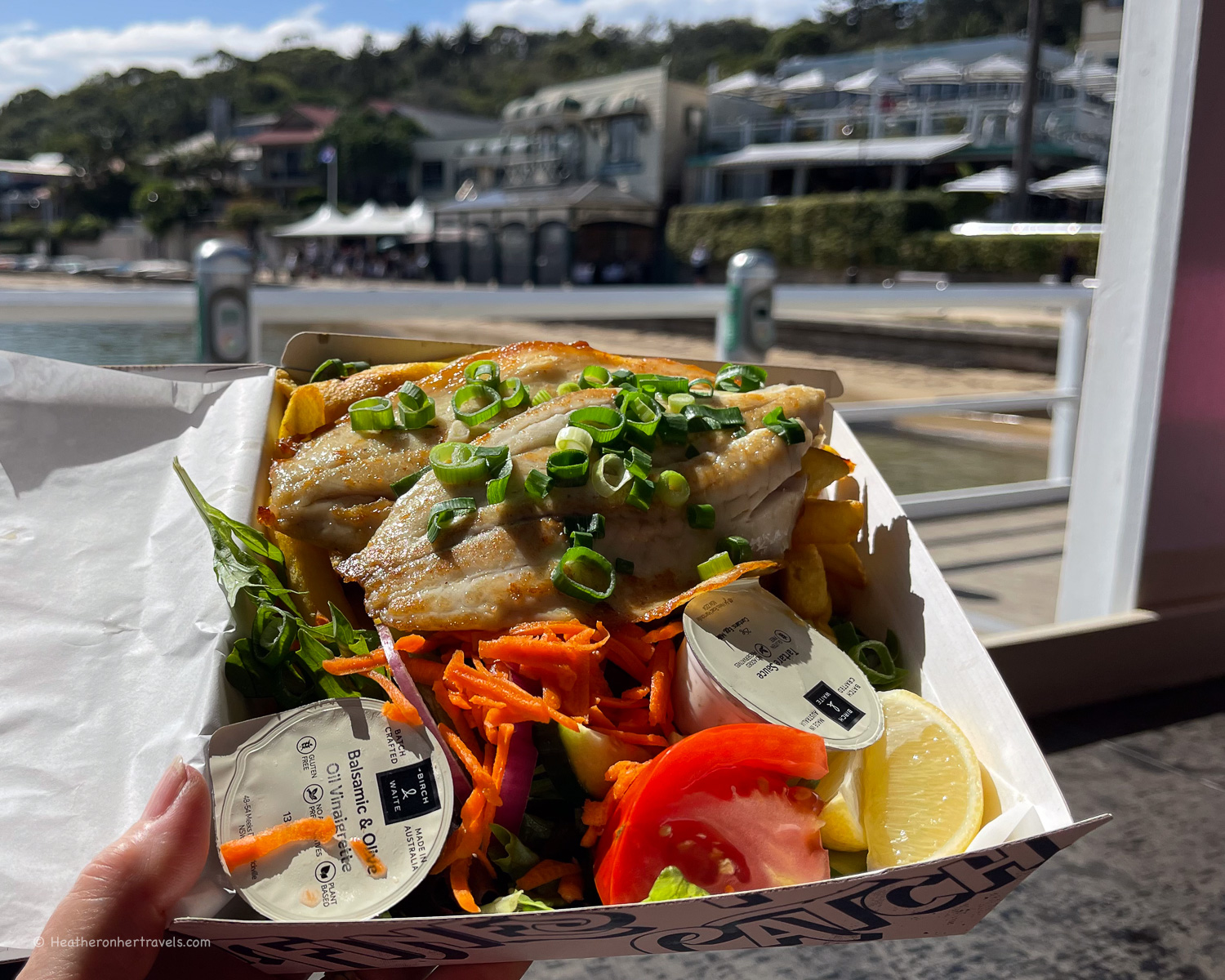
- At the end of Marine Parade, walk past all the pretty cottages in Cove Street, to arrive at Camp Cove Beach, with its cute beach kiosk cafe (try their fresh orange juice). The beach is sheltered, with calm water for swimming.
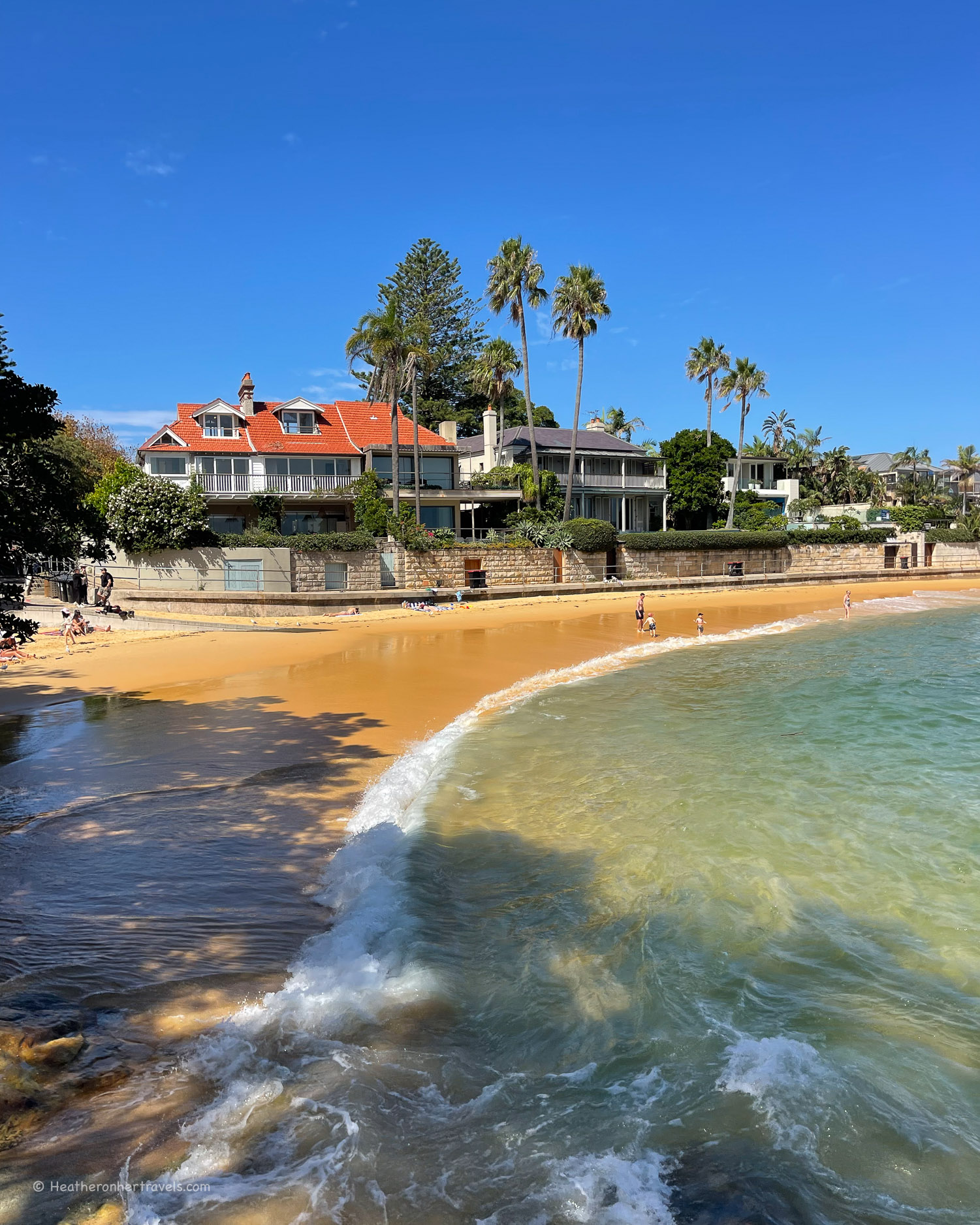
- From Camp Cove Beach, walk up onto the headland past the canons, to the Hornby Lighthouse.

- From the Watsons Bay ferry wharf, walk across Robertson Park and up onto the walking trail at Gap Bluff. Here you’ll see the contrast between the calm waters on the harbour side and the crashing waves on the ocean side, where the tragic wreck of the Dunbar in 1857 is marked by its salvaged anchor.
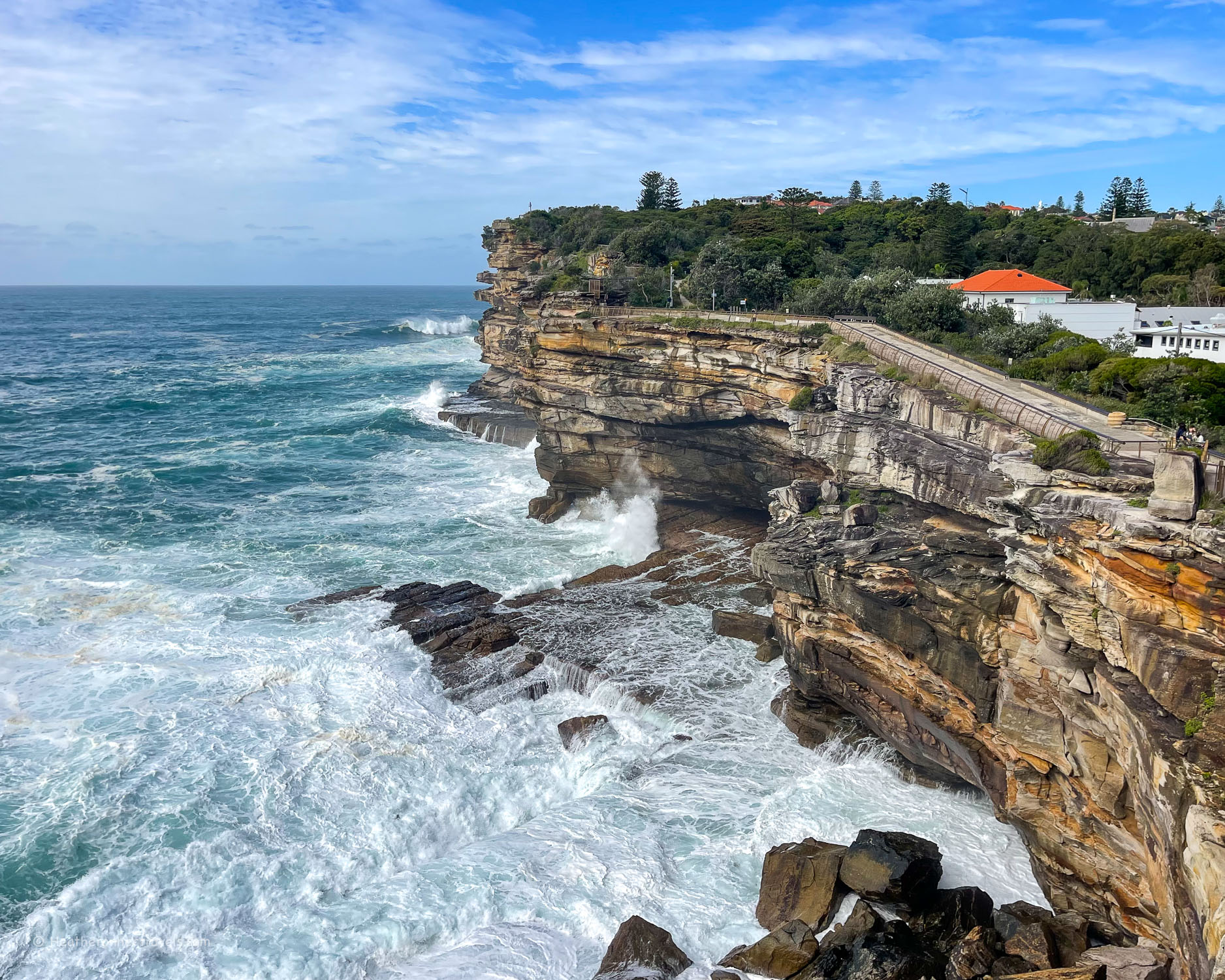
- If you have a whole day to spend, you might like to hike the coastal path in the direction of Rose Bay, past a succession of lovely coves and beaches. Even if you only have half a day, you could fit in swims at Kutti Beach, the Parsley Bay wharf and arrive at Shark Beach, before retracing your steps.
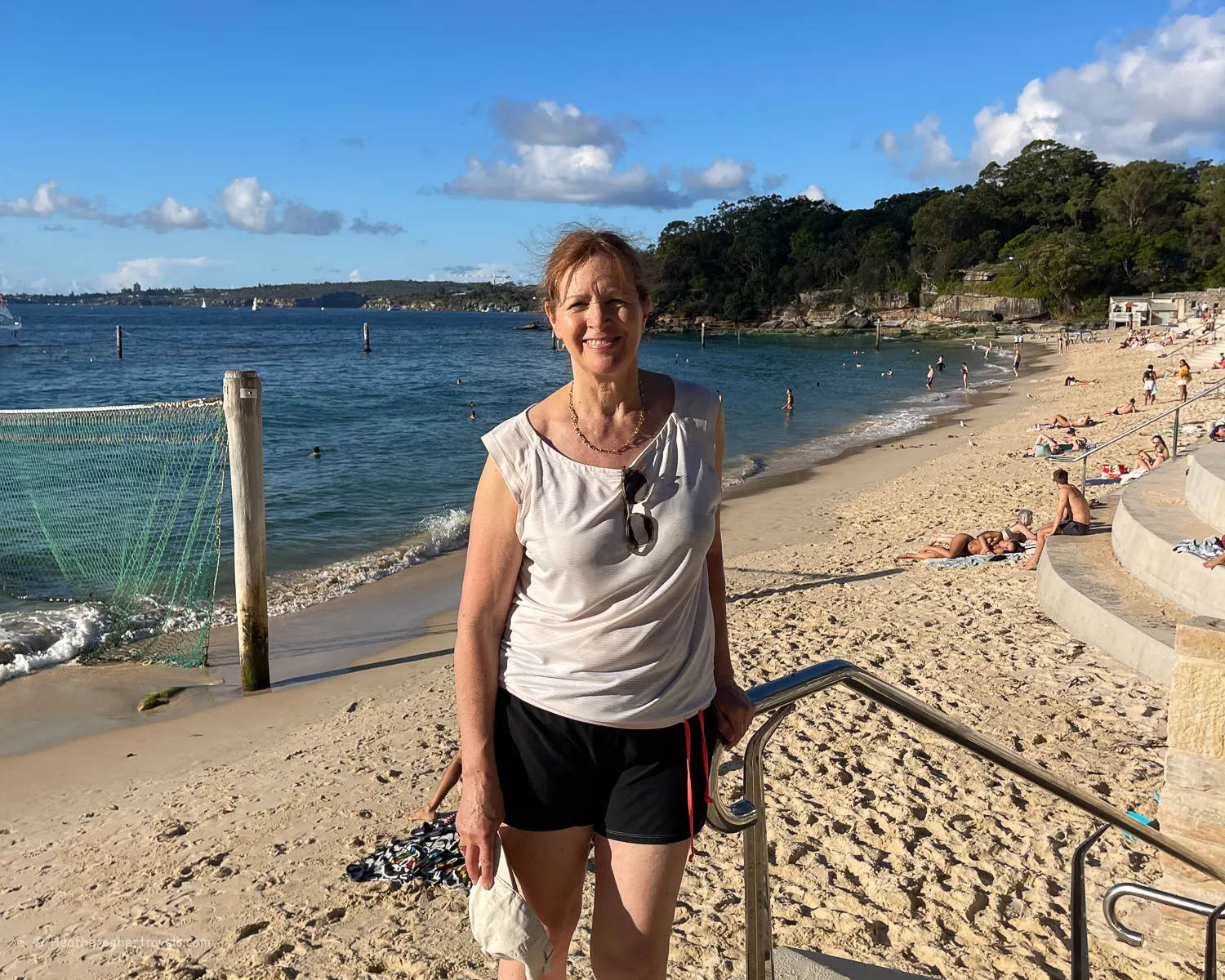
Getting to Watsons Bay
From Circular Quay take the ferry to Watsons Bay. Normally runs 2 times an hour. Journey time 30 mins. Tip: As the ferries are not as frequent later in the day, be sure to check the afternoon ferry times for your return trip.
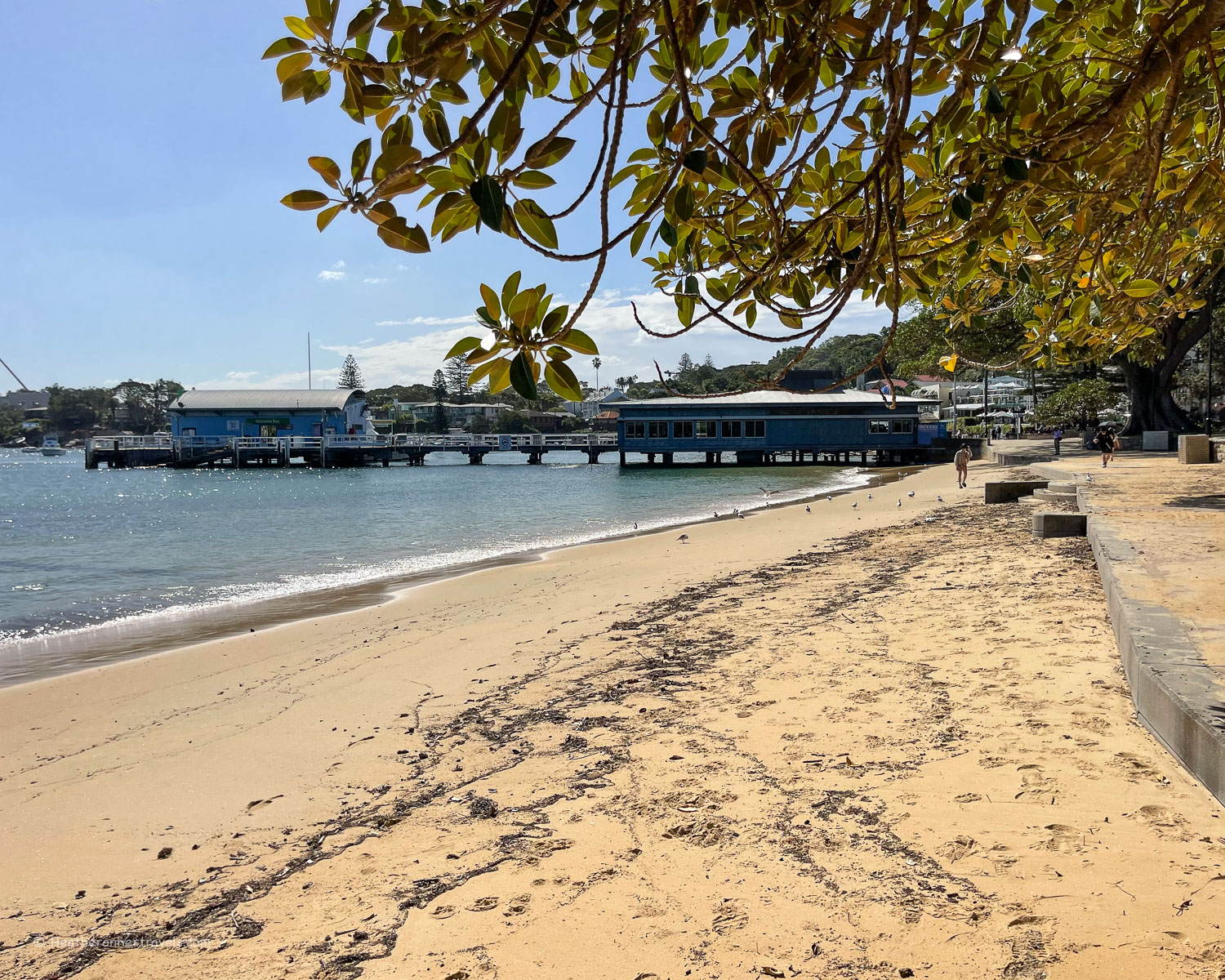
Refreshment stops in Watsons Bay
Doyles – restaurant or takeaway for fish & chips or seafood
Watsons Bay Boutique Hotel – for sunset drinks
Camp Cove Kiosk – for coffee, orange juice and snacks
Watsons Bay Tea Rooms – for drinks and light meals
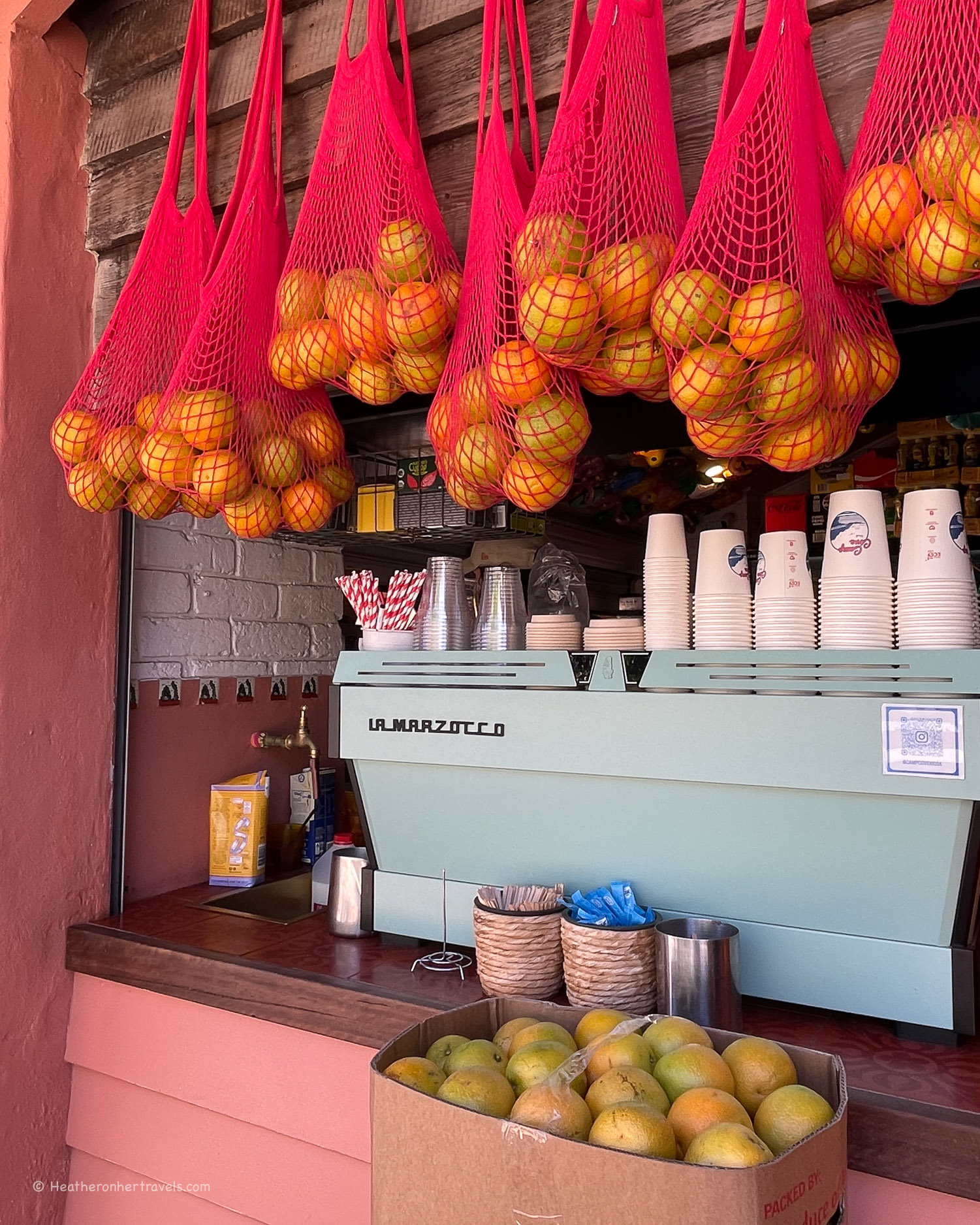
Read Next
An irresistible New Zealand North Island Itinerary
Pin It!
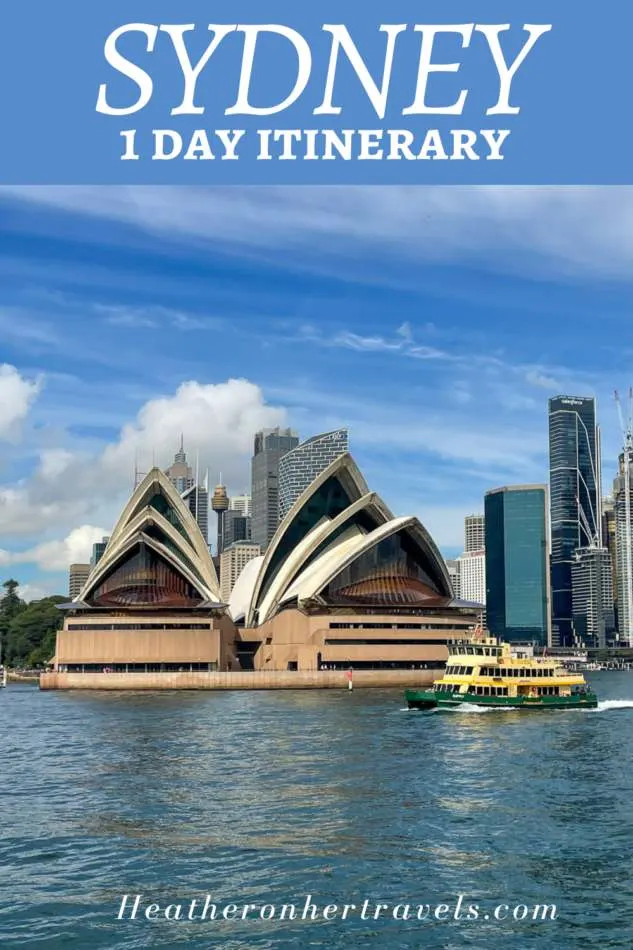
This article is originally published at Heatheronhertravels.com


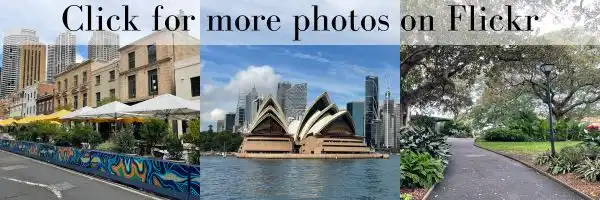

Hels
Tuesday 20th of May 2025
My beloved lived in Bondi and didn't leave Sydney until Dec 1970, to get married. But it is still as attractive as ever, to lie on the sand, swim and surf along the vast length of beach. I am glad you mentioned swimming ONLY between the red and yellow flags where the water is carefully protected by lifeguards. For people who have never been there, see the great tv programme: Bondi Rescue.
Heather Cowper
Wednesday 21st of May 2025
@Hels my son is currently living in Bondi so that's where I was based - truly a fun spot to live or visit